Healthcare 2030: Are We Consumers, CEOs, Health Citizens, or Castaways? 4 Scenarios On the Future of Health Care and Who We Are – Part 2
This post follows up Part 1 of a two-part series I’ve prepared in advance of the AHIP 2024 conference where I’ll be brainstorming these scenarios with a panel of folks who know their stuff in technology, health care and hospital systems, retail health, and pharmacy, among other key issues. Now, let’s dive into the four alternative futures built off of our two driving forces we discussed in Part 1. The stories: 4 future health care worlds for 2030 My goal for this post and for the AHIP panel is to brainstorm what the person’s
Healthcare 2030: Are We Consumers, CEOs, Health Citizens, or Castaways? 4 Scenarios On the Future of Health Care and Who We Are – Part 1
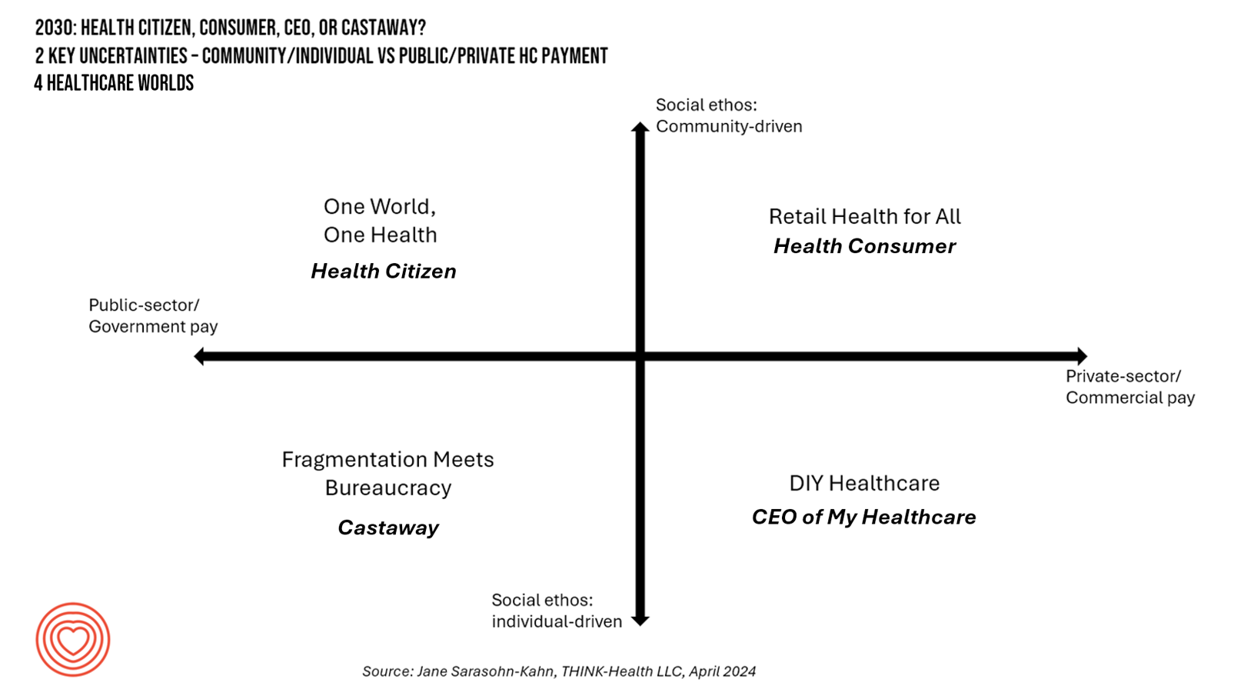
In the past few years, what event or innovation has had the metaphorical impact of hitting you upside the head and disrupted your best-laid plans in health care? A few such forces for me have been the COVID-19 pandemic, the emergence of Chat-GPT, and Russia’s invasion of Ukraine. That’s just three, and to be sure, there are several others that have compelled me to shift my mind-set about what I thought I knew-I-knew for my work with organizations spanning the health care ecosystem. I’m a long-time practitioner of scenario planning, thanks to the early education at the side of Ian
A Vote for Telehealth is a Vote for American Patients’ and Doctors’ Well-Being
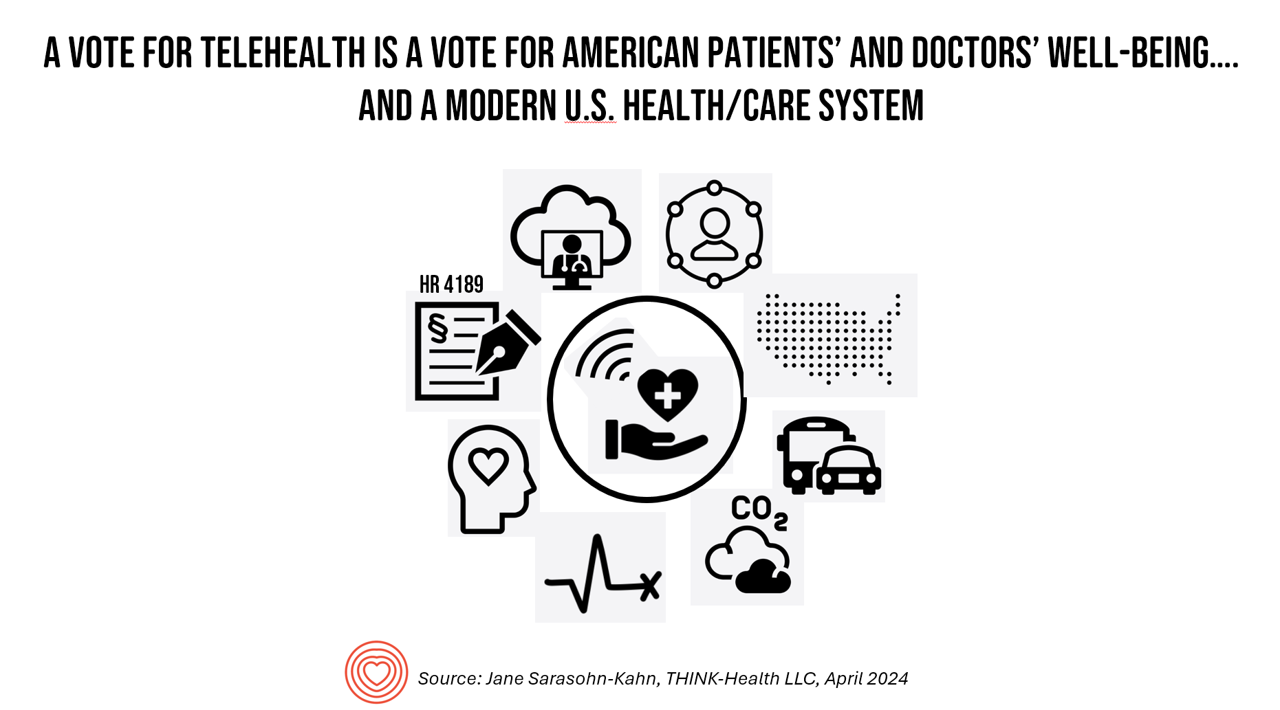
Whether you’re a patient or a physician in the U.S., you’re burned out, tapped out, stressed out, timed out. While the 118th U.S. Congress can’t agree on much before the 2024 summer recess, there’s one bipartisan stroke of political pens in Washington, DC, that could provide some satisfaction for both patients and doctors: bring telehealth back to patients and providers permanently. Those pens would do two things to modernize American health care for both patients and doctors: first, Congress would pass the CONNECT for Health Act (HR 4189. S 2016) and second, re-introduce and sign the Telehealth Modernization Act.
Peering Into the Hidden Lives of Patients: a Manifesto from Paytient and Nonfiction
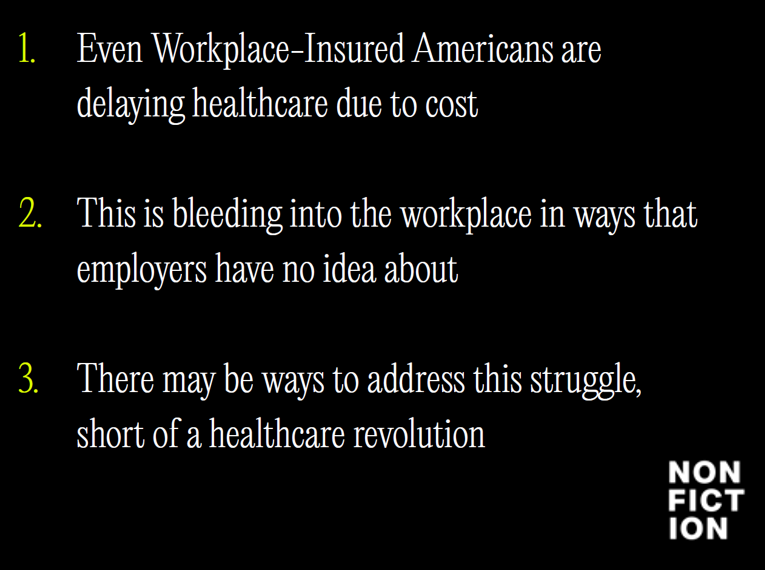
Having health insurance in America is no guarantee of actually receiving health care. It’s a case of having health insurance as “necessary but not sufficient,” as the cost of deductibles, out-of-pocket coinsurance sharing, and delaying care paint the picture of The Hidden Lives of Workplace-Insured Americans. That’s the title of a new report that captures the results of a survey conducted in January 2024 among 1,516 employed Americans who received employer-sponsored health insurance. The study was commissioned by Paytient, a health care financial services company, engaging the research firm Nonfiction to conduct the study
AI: Patients Included
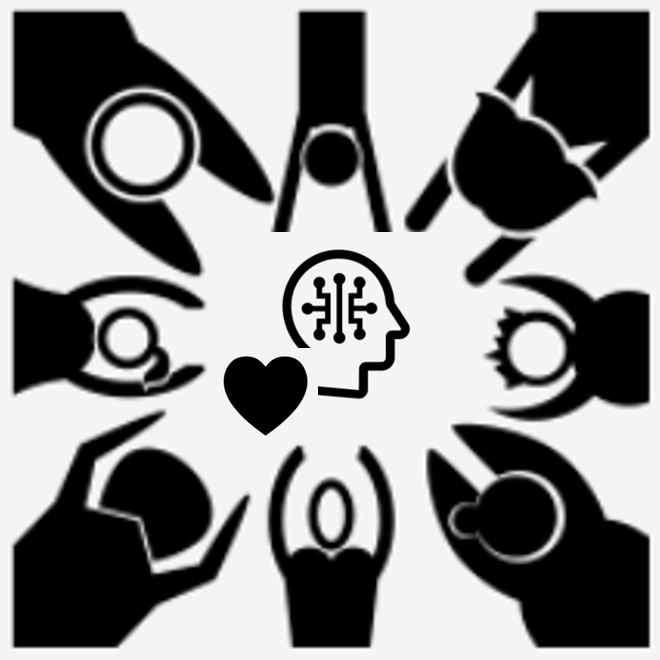
“Clinical transformation with AI is easier without patients.” When Dr. Grace Cordovano heard this statement on a panel of physicians convening to share perspectives on the future of AI in health care held in early March 2024, the board-certified patient advocate felt, in her words, “insulted on behalf of the patient communities I know that are working tirelessly to advance AI that works for them.” “The healthcare ecosystem and policy landscape must formally recognize patients as end-users and co-creators of AI,” Cordovano wrote to me in an e-mail exchange. “Patients, their care partners, caregivers, and advocates are already utilizing AI
The Women’s Health Gap Is Especially Wide During Her Working Years – Learning from McKinsey, the World Economic Forum, and AARP in Women’s History Month
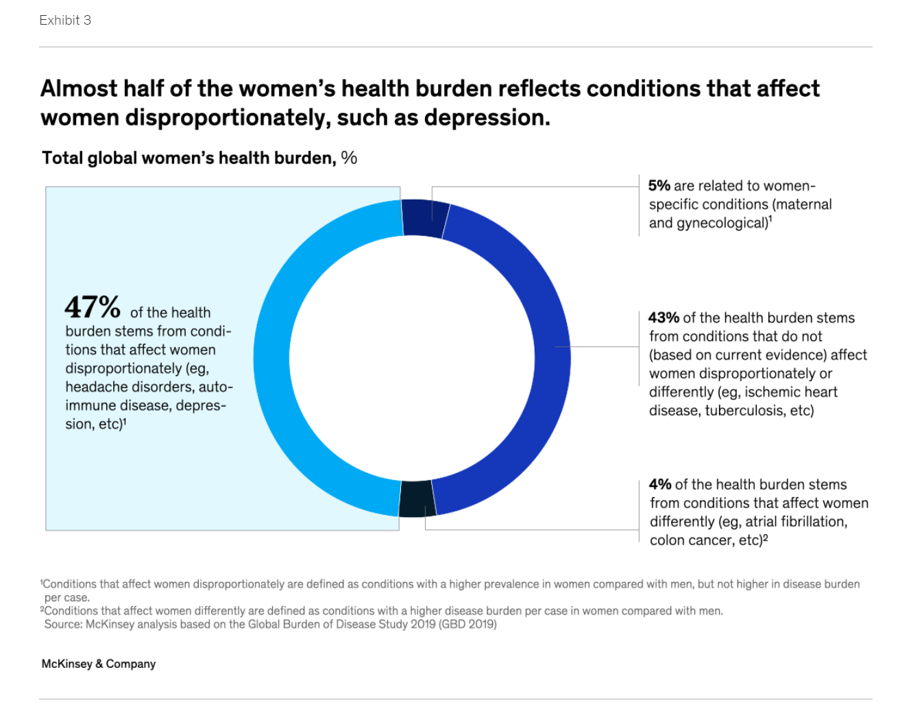
There’s a gender-health gap that hits women particularly hard when she is of working age — negatively impacting her own physical and financial health, along with that of the community and nation in which she lives. March being Women’s History Month, we’ve got a treasure-trove of reports to review — including several focusing on health. I’ll dive into two for this post, to focus in on the women’s health gap that’s especially wide during her working years. The reports cover research from the McKinsey Health Institute collaborating with the World Economic Forum on
A Health Consumer Bill of Rights: Assuring Affordability, Access, Autonomy, and Equity
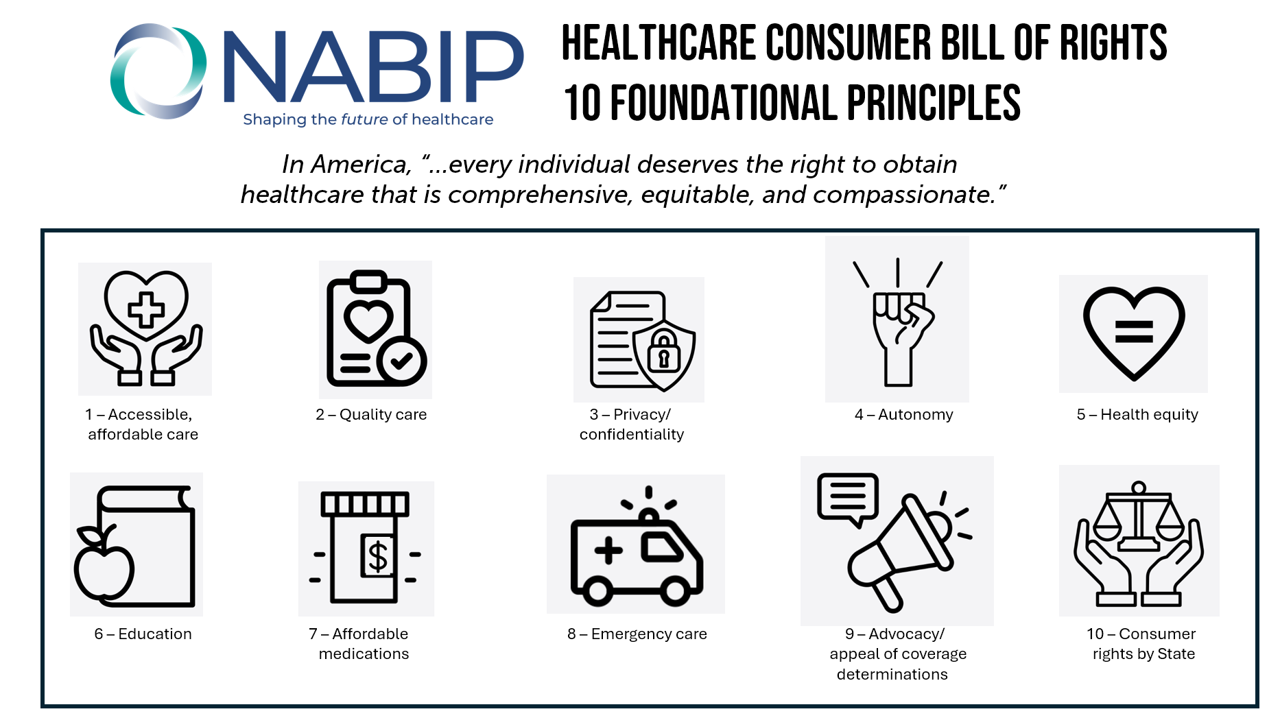
Let’s put “health” back into the U.S. health care system. That’s the mantra coming out of this week’s annual Capitol Conference convened by the National Association of Benefits and Insurance Professionals (NABIP). (FYI you might know of NABIP by its former acronym, NAHU, the National Association of Health Underwriters). NABIP, whose members represent professionals in the health insurance benefits industry, drafted and adopted a new American Healthcare Consumer Bill of Rights launched at the meeting. While the digital health stakeholder community is convening this week at VIVE in Los Angeles to share innovations in health tech, NABIP
As Food-As-Medicine Gains Momentum, Watch for Dietitians and Pharmacists to Sit at The FaM Table – And A Lesson from George Washington Carver
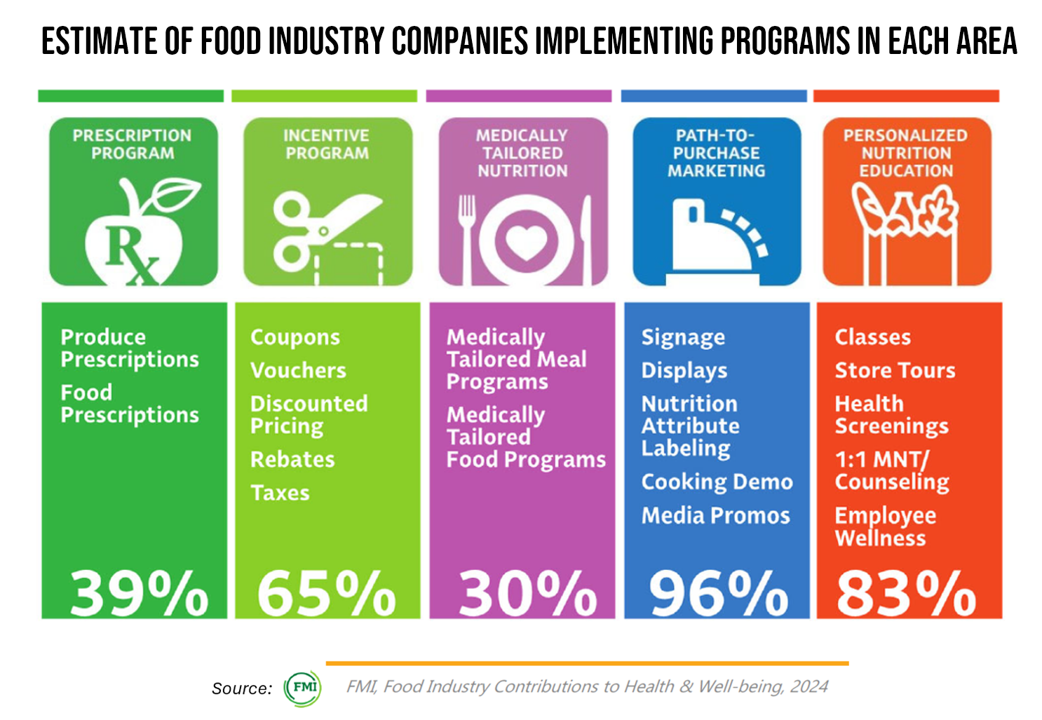
The food industry, both retail food chains and food suppliers, has found health and nutrition are having a positive impact on their businesses both for margins and for missions, we learn in the latest annual survey on Food Industry Contributions to Health & Well-being, 2024, from FMI. Most retail food channels operate pharmacies, three in five operate clinics in stores, and 2 in 5 of the clinics are health system-owned and operated. FMI, the Food Industry Association, conducted this industry poll in October 2023 among food retail and supplier members, totaling 36 organizations representing over
Rebel Health: The Personal and Professional Passion of Susannah Fox
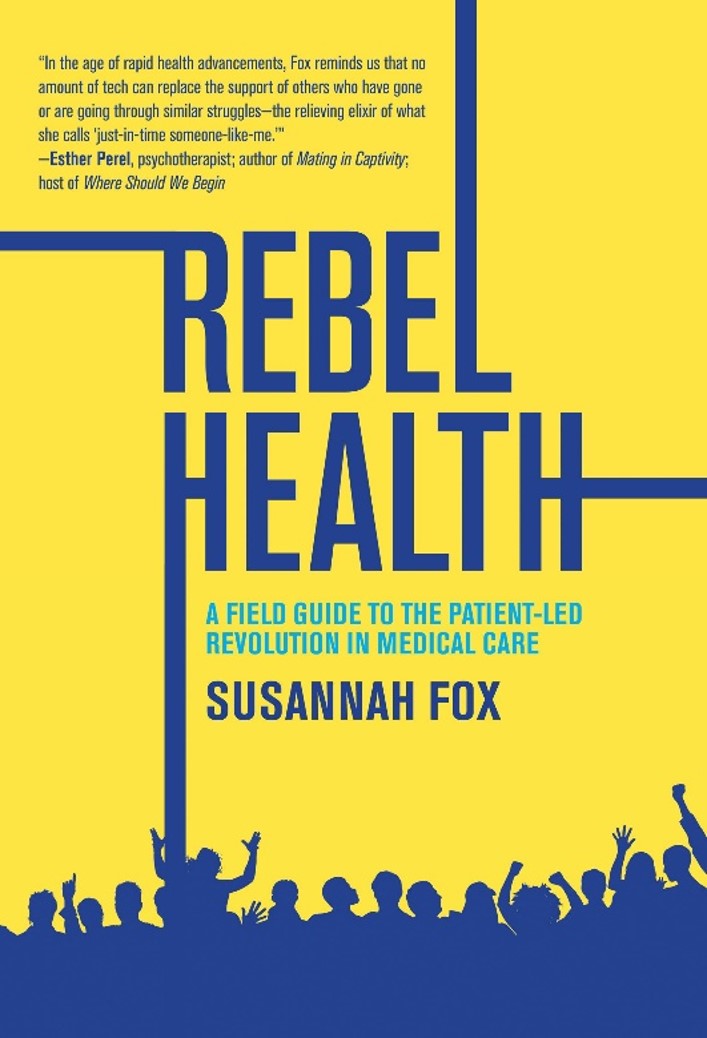
A “rebel” is both a noun and a verb. As a noun, Merriam-Webster tells us that a rebel is a person who opposes or takes up arms against a government or a ruler. As a verb, “to rebel” is to oppose or disobey one in authority or control, or otherwise renounce and resist by force the authority of one’s government.” An additional definition of the verb is, “to feel or exhibit anger or revulsion.” If you’ve been a patient facing a diagnosis of an illness, whether rare or common, you may well have felt these various feelings stirring inside your self.
Ethics for AI in Health – A View From The World Health Organization
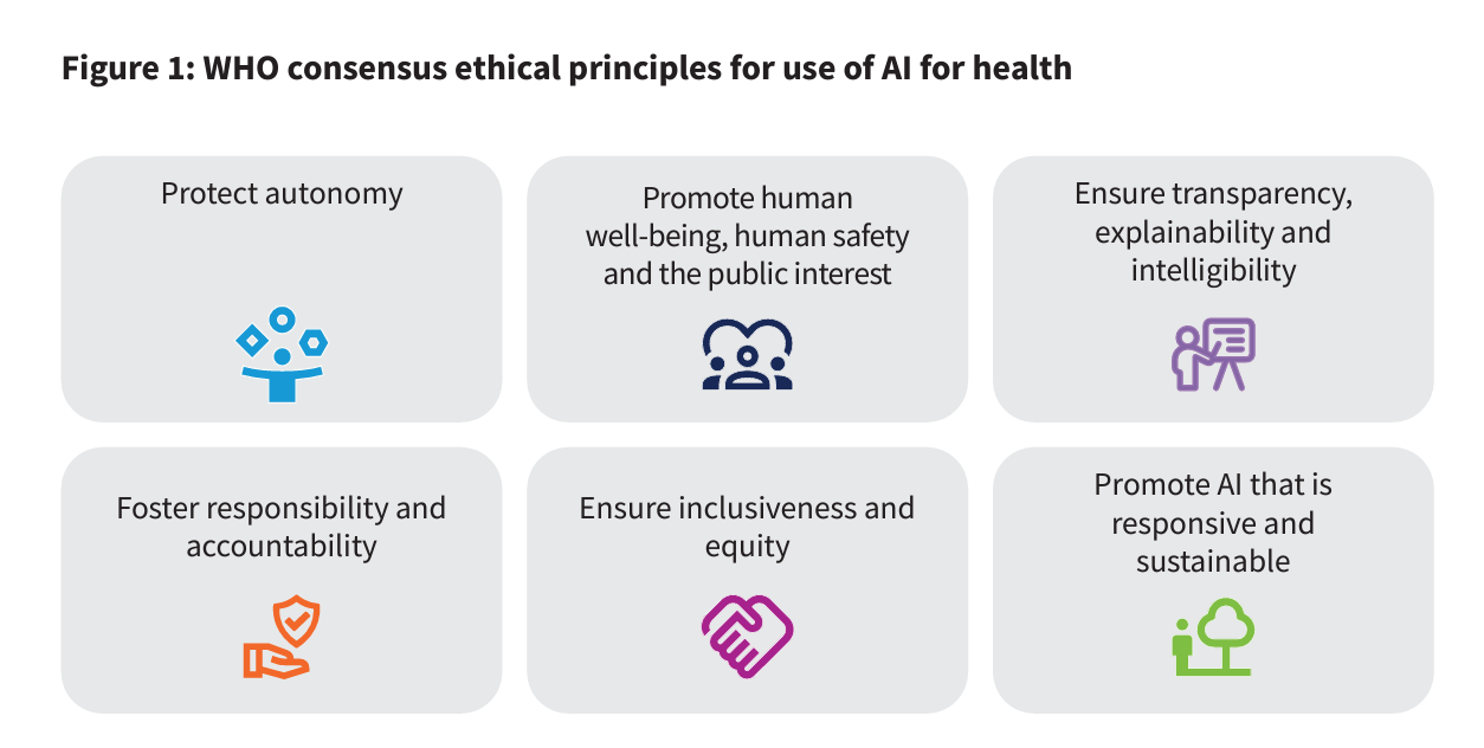
For health care, AI can benefit diagnosis and clinical care, address paperwork and bureaucratic duplication and waste, accelerate scientific research, and personalize health care direct-to-patients and -caregivers. On the downside, risks of AI in health care can involve incomplete or false diagnoses, inaccuracies and errors in cleaning up paperwork, exacerbate differential access to scientific knowledge, and exacerbate health disparities, explained in the World Health Organization’s (WHO) report, Ethics and governance of artificial intelligence for health. WHO has released guidance on the use of large multi-modal models (LMMs) in health care which detail 40+ recommendations for
Why Elevance Health is “Prescribing” Phones for Members
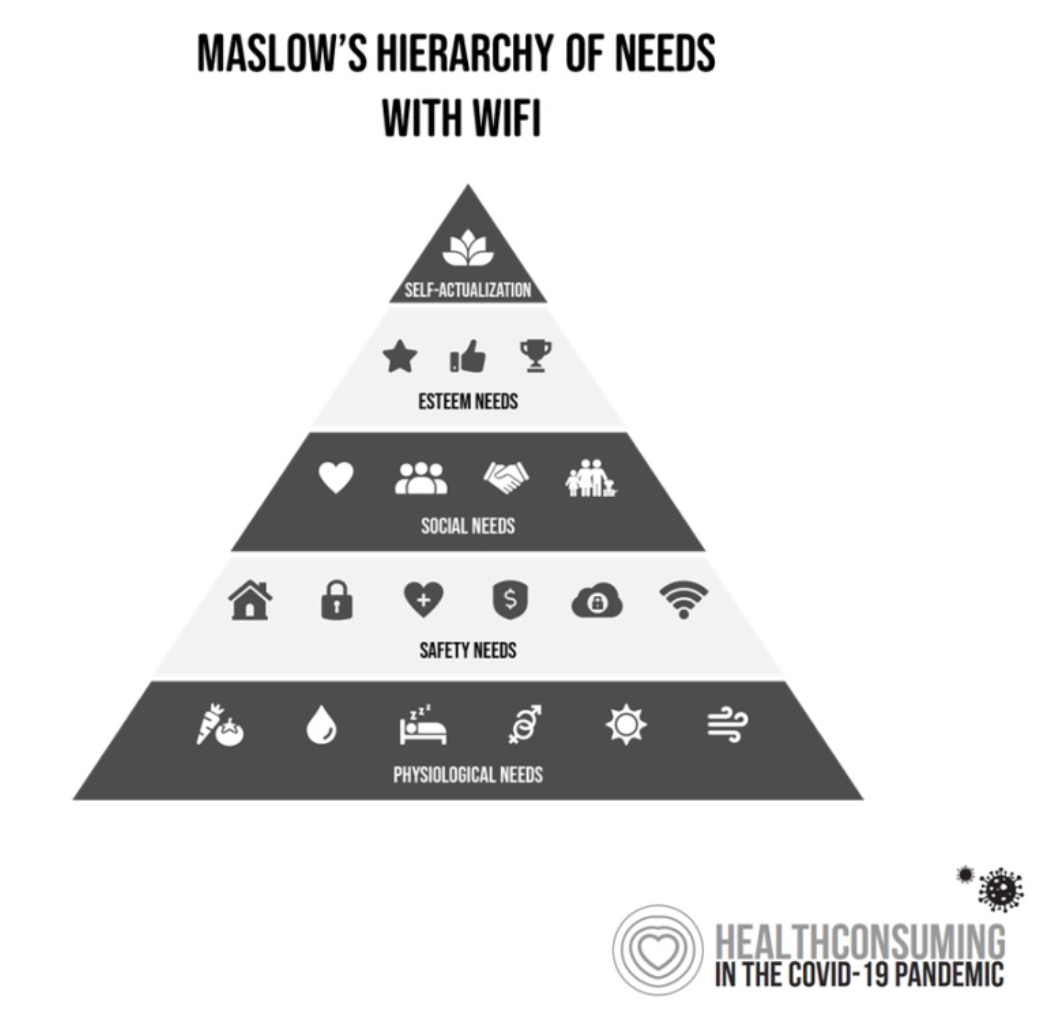
You’ve heard of food-as-medicine and exercise-as-medicine. Now we see the emergence of telecomms-as-medicine — or more specifically, a driver of health, access, and empowerment. Elevance Health, the health plan organization serving 117 million members, launched a program to channel mobile phones and data plans into the hands of some Medicaid plan enrollees, explained in the organization’s press release on the program. To implement this program and get connectivity into consumers’ hands and homes, Elevance Health is collaborating with several telecomms companies including Verizon, AT&T, Samsung, and T-Mobile. Funding is supported by the FCC’s Affordable Connectivity Program.
Access to Technology Is the New Pillar for Well-Being: CES & the UN Partner for Human Security for All
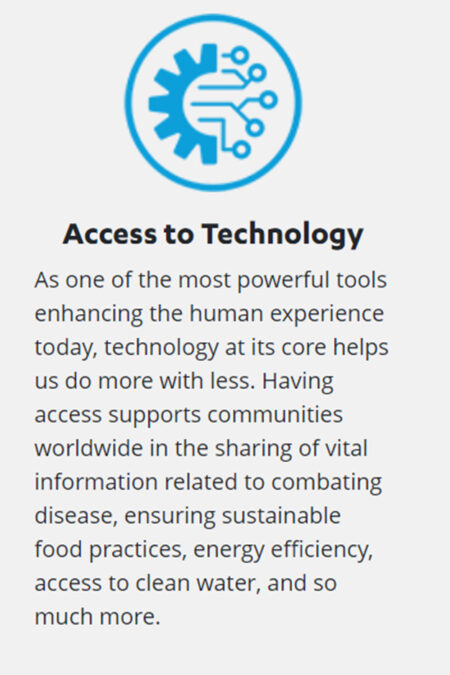
In kicking off #CES2024, CTA’s researchers noted the acceleration of global connectivity, with gaps in peoples’ ability to connect depending where they live: by region, the percent of people connected to the internet today are, according to CTA’s data, 92% in the U.S. 87% in the E.U. 76% in Latin America 73% in China 55% in Nigeria 46% in India. Such gaps in connectivity threaten peoples’ individual well-being, but also social and political stability that impacts the entire world’s security. And not to overlook, as well, the promise of AI to do good at scale at the enterprise-level, globally.
Inflation and the cost of health care top U.S. voters’ issues for 2024 elections
The cost of living ranks top in U.S. voters’ minds among many issues Americans are feeling and following in late 2023. A close second in line is affordability of health care, as consumers’ household budgets must make room for paying medical bills — with prescription drug costs also very important as a discussion topic for 2024 Presidential candidates, we learn from the latest KFF Health Tracking Poll published 1 December. The monthly study focused on U.S. voters’ top issues and perspectives on the health system and care approaching the new year of 2024. KFF fielded the study among 1,301 U.S.
Workforce Shortages and Health Care Cost Pressures Inspire RSNA 2023 (and yes, AI’s in the mix, too)

Radiology and radiologists play starring roles in our health care, with he core work flow of diagnostic imaging supporting prevention, disease detection, diagnosis, delivering and monitoring therapy, linking specialists to other providers in telehealth, and as a medium for teaching clinicians, patients and caregivers. As health care delivery continues to change and adapt to technological innovations, demographic shifts, and economic-social-political forces, so, too, are the roles of radiology and radiologists in motion. Every year when American Thanksgiving weekend comes along, you’ll find folks involved in digital imaging flocking to chilly Chicago to convene at McCormick Place for
Everybody is Stressed in America, and It’s Not Good for Our Health: the 2023 Update from the American Psychological Association
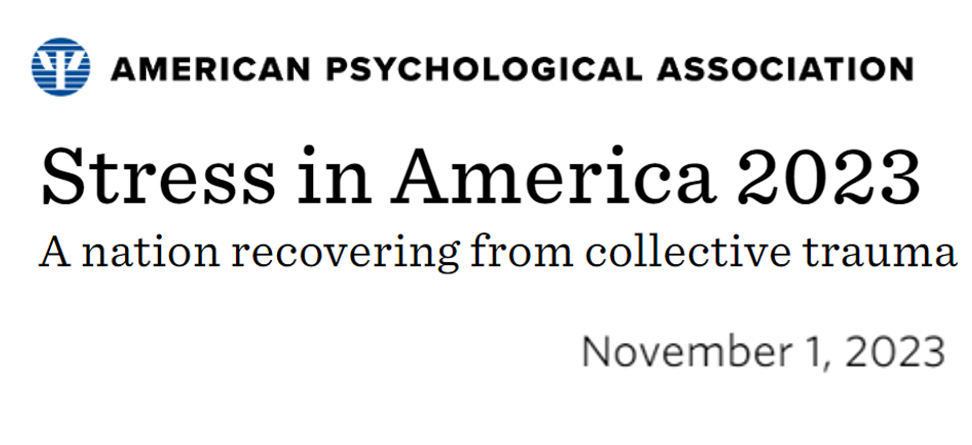
The U.S. is “a nation recovering from collective trauma,” the according to the latest survey on Stress in America 2023 from the American Psychological Association (APA). The APA has been quantifying Stress in America since 2007; for context, at the end of that year The Great Recession kicked in, and in response President Obama’s team put together assistance to bolster the national economy, jobs, and health technology (codified in the American Recovery and Reinvestment Act). American health citizens are experiencing a deja vu in 2023 akin to their financial stress experienced in the APA 2008 Stress
How Ahold-Delhaize Connects the Grocery, Climate Change, ESG and Consumers’ Health

In the food sector, “the opportunity for us and the role that we play is to connect climate and health,” Daniella Vega of Ahold Delhaize told Valerio Baselli during the Morningstar Sustainable Investing Summit 2023. In a conversation discussing the importance of non-financial metrics in companies’ ESG efforts, Vega connected the dots between climate change, retail grocery, and consumers’ health and well-being. Vega is the Global Senior Vice President, Health & Sustainability, with Ahold Delhaize— one of the largest food retail companies in the world. Based in the Netherlands, the company operates mainly in
#BeBurnsAware – What To Know on National Burn Awareness Day
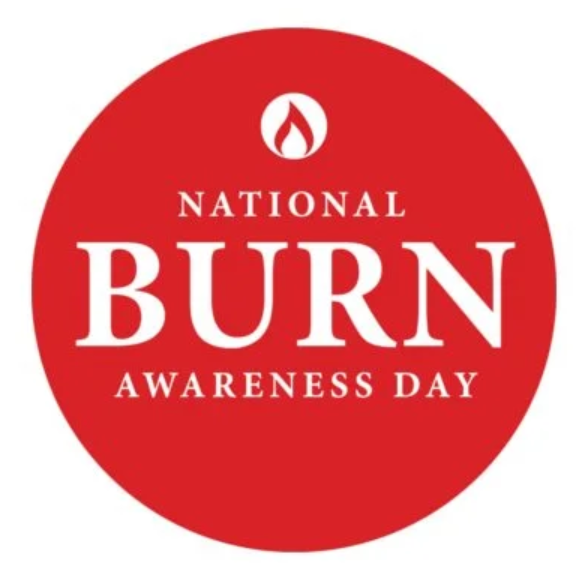
Today 11th October is National Burn Awareness Day 2023, and I’m supporting the effort for all of us to #BeBurnsAware. I have become more bullish on Burn Awareness as I’ve come to learn more about the impact burns have on public, family, and children’s health globally. My teacher for better understanding burns and public health has been Krissie Stiles, a long-time burns nurse specialist and Ambassador to the Children’s Burns Trust in the UK. Meet Krissie. Burns are a global public health challenge, which I detailed here in Health Populi earlier this year. Today
Food-As-Medicine Grows Its Cred Across the Health/Care and Retail Ecosystem
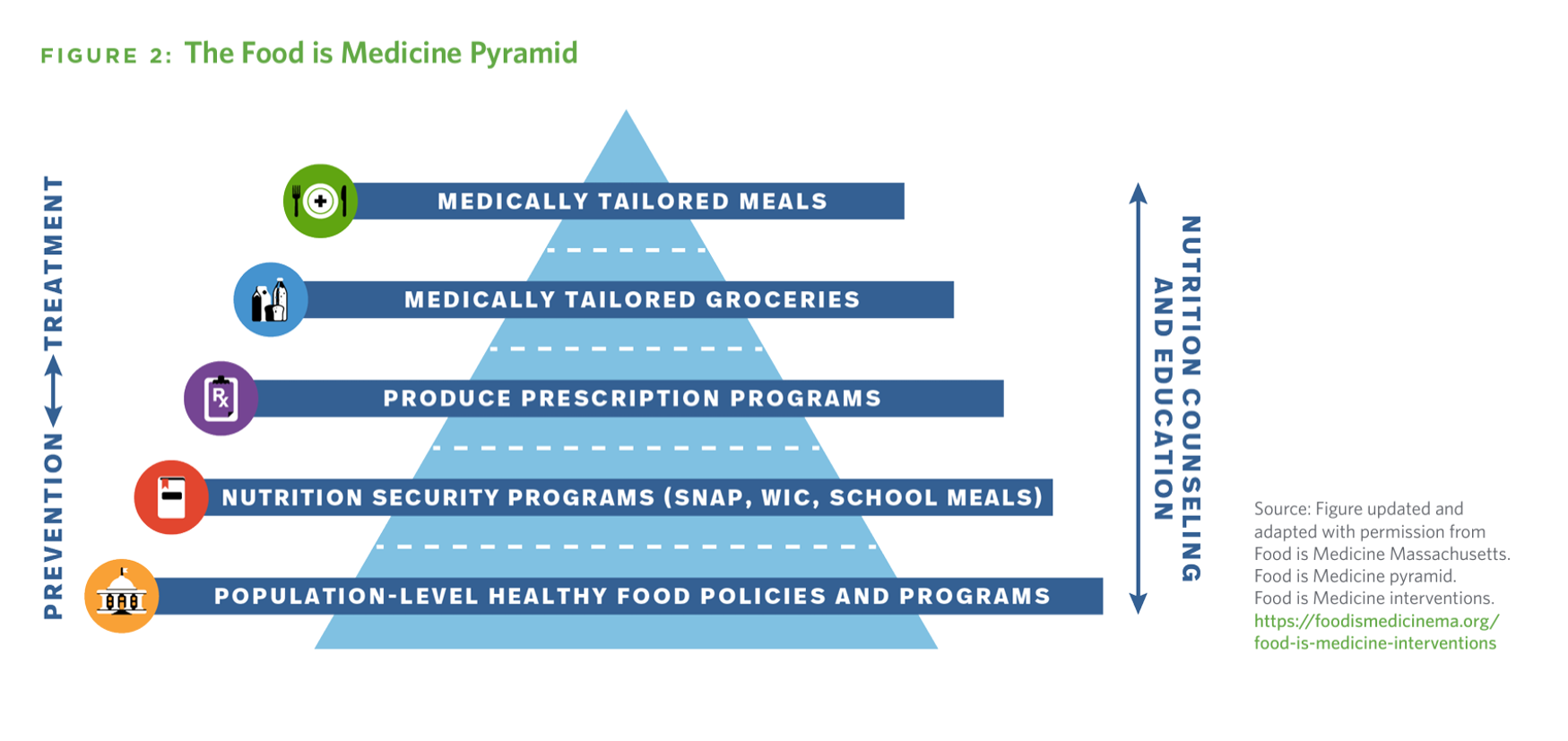
In the nation’s search for spending smarter on health care, the U.S. could save at least $13 billion a year through deploying medically-tailored meals for people enrolled in Medicare, Medicaid, and private insurance programs, according to the True Cost of Food, research published by the Tufts School of Nutrition Science and Policy collaborating with The Rockefeller Foundation. It’s been one year since the White House convened the Conference on Hunger, Nutrition, and Health, kicking off the Biden Administration’s national strategy to improve health citizens’ access to healthy food as a matter of public health and economic security.
The Elevator, Trust and the Data Commons: Bart de Witte Makes the Case for Open AI for Health at WHO/Europe
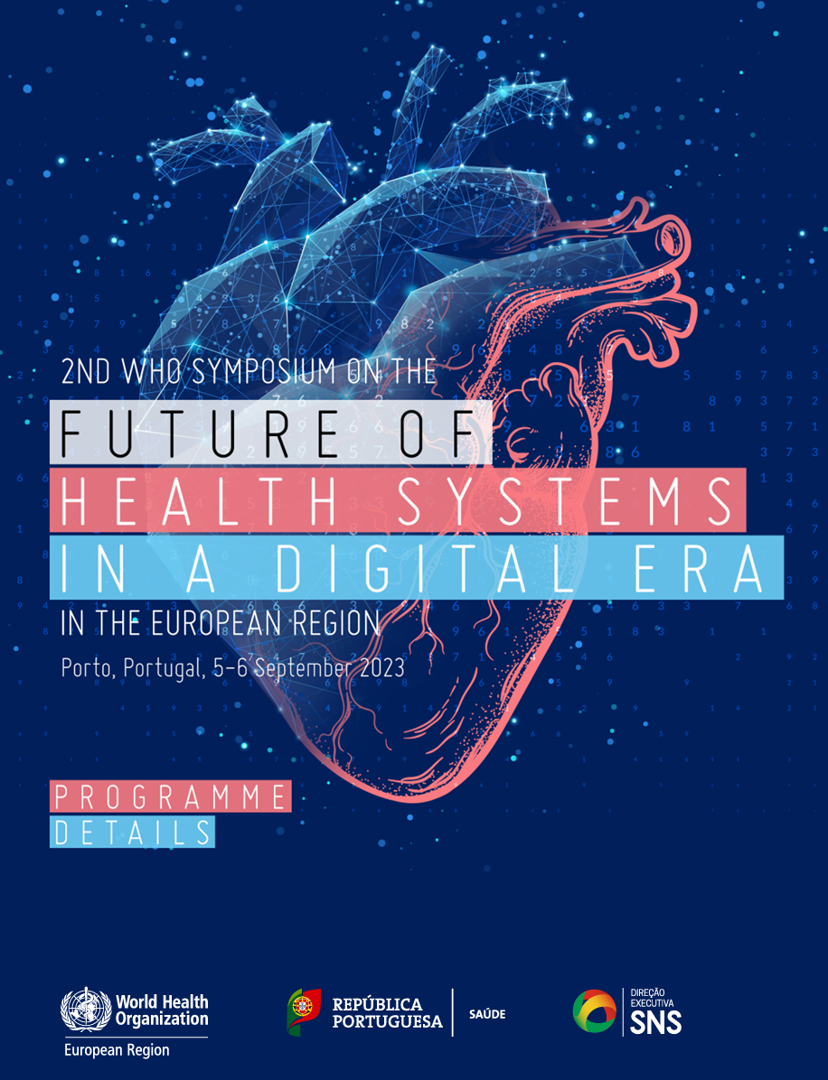
“I’m in Berlin, and we don’t like walls,” Bart De Witte responded in a concluding Q&A session yesterday at the 2nd Symposium on the Future of Health Systems, convened by the World Health Organization (WHO) in Porto on 5th September. Over two days, this meeting convened stakeholders focused on WHO’s European Region to support the Organization’s digital health action plan for 2023-2030 – which fosters cross-nation health planning covering the EU space. AI’s promise in health care to automate and streamline administration, and augment diagnosis and treatment, comes with accompanying risks that can
How Misinformation in Health Care Can Lead to Being “Dead Wrong” — KFF and Dr. G Connect the Dots
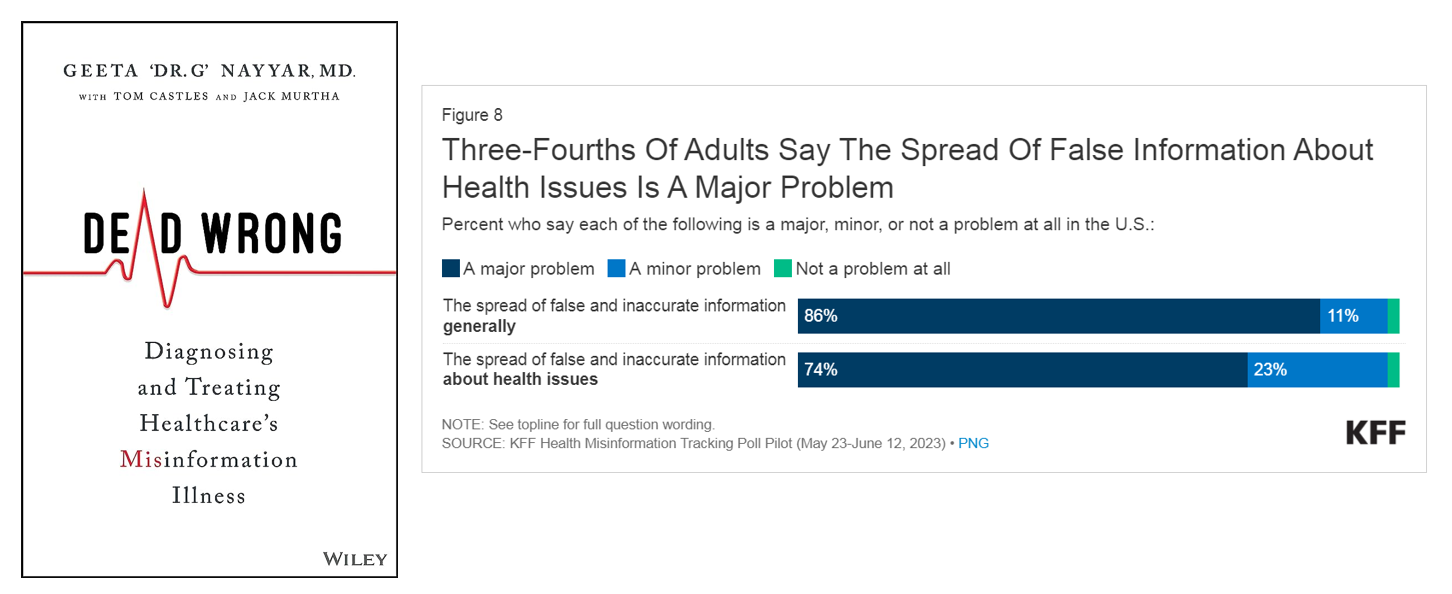
Three in four U.S. health citizens say the spread of false information about health issues is a major problem, found in Kaiser Family Foundation’s Health Misinformation Tracking Poll Pilot published earlier this month. KFF’s press release on the study summarized the top-line with, “Most Americans Encounter Health Misinformation, and Most Aren’t Sure Whether It’s True or False.” Explaining the implications of the broad reach of health misinformation in the U.S., Dr. Geeta Nayyar has written the book Dead Wrong: Diagnosing and Treating Healthcare’s Misinformation Illness, due out on October 17th and available now for pre-purchase
Channeling Tip O’Neill: “All Public Health (Love) is Local,” U.S. Health Citizens Tell the de Beaumont Foundation
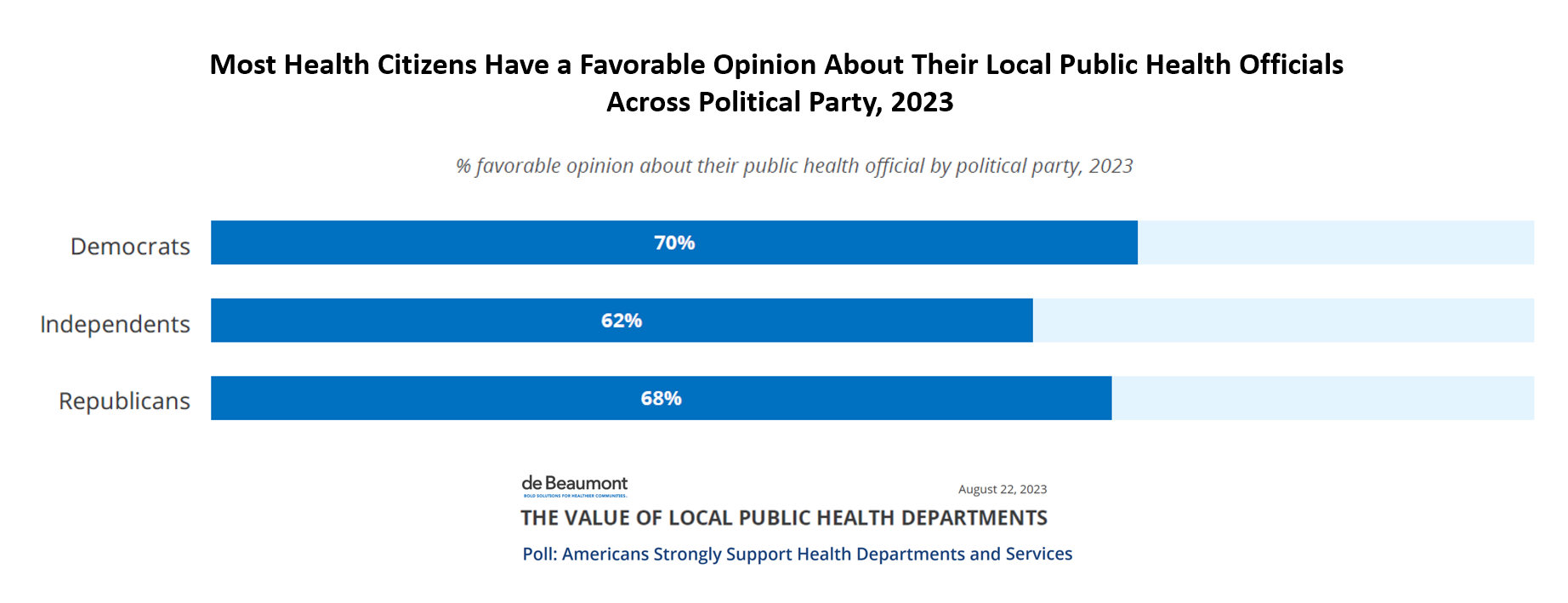
Appreciation for public health in America tends to be a local-love thing, according to research from the de Beaumont Foundation. The COVID-19 pandemic raised health citizens’ awareness of the role and importance of public health — and for 7 in 10 people in the U.S., inspired a favorable opinion of their local public health officials, de Beaumont found. the Foundation’s President and CEO, Briant Castrucci, DrPH, observed, “The shared pandemic experience seems to have driven deeper familiarity with and support of public health departments and officials, along with a stronger understanding of the important
For Public Health, U.S. Consumers See Opioids, Obesity, and Guns Top 3 Public Health Threats – But Lowering Healthcare & Drug Costs is Job 1 for Government
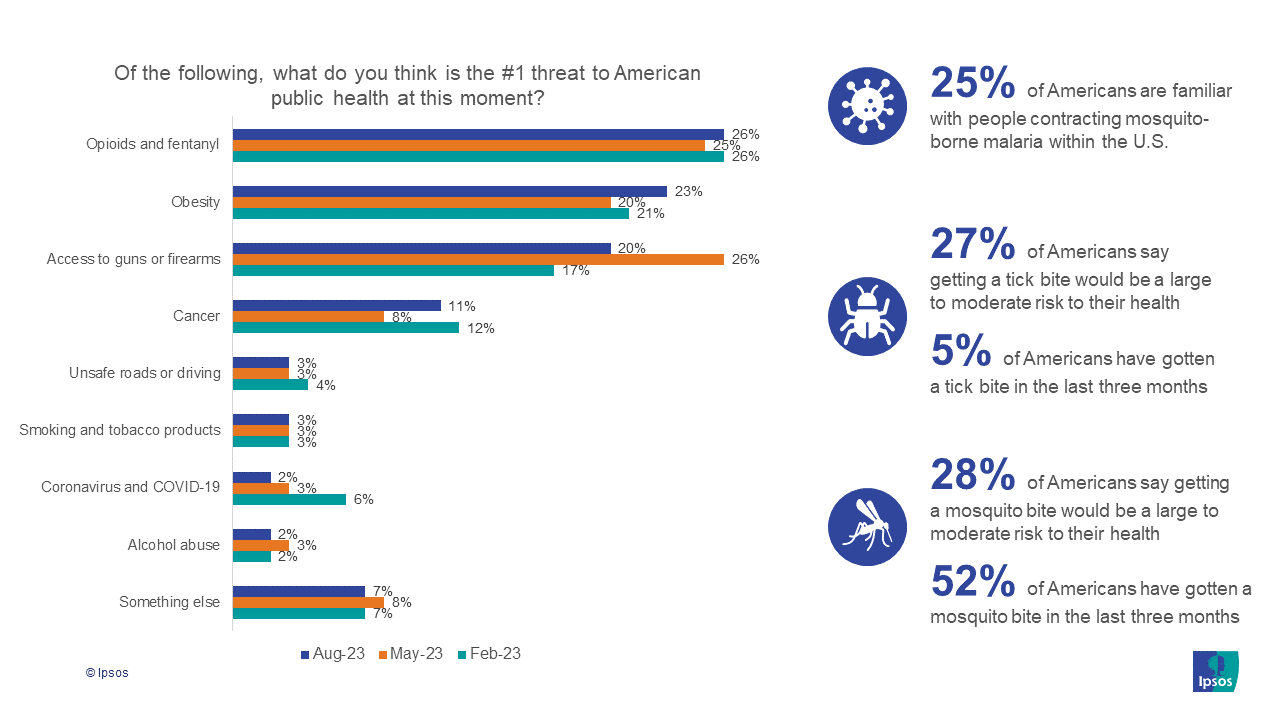
Americans cite opioids and fentanyl, obesity, and access to guns and firearms as the top three public health challenges this summer of 2023, according to the new Axios/Ipsos American Health Index. As for government priorities dealing with public health, though, U.S. health citizens say the top priority should be lowering the costs of health care and prescription drugs. Once again, we see evidence that U.S. consumers bundle their financial wellbeing — in this instance, costs of medical services and medicines — into peoples’ overall sense of health for themselves as individuals and for
A Tale of Barbie, Beyonce and Taylor, the Economy and the Gynecologist
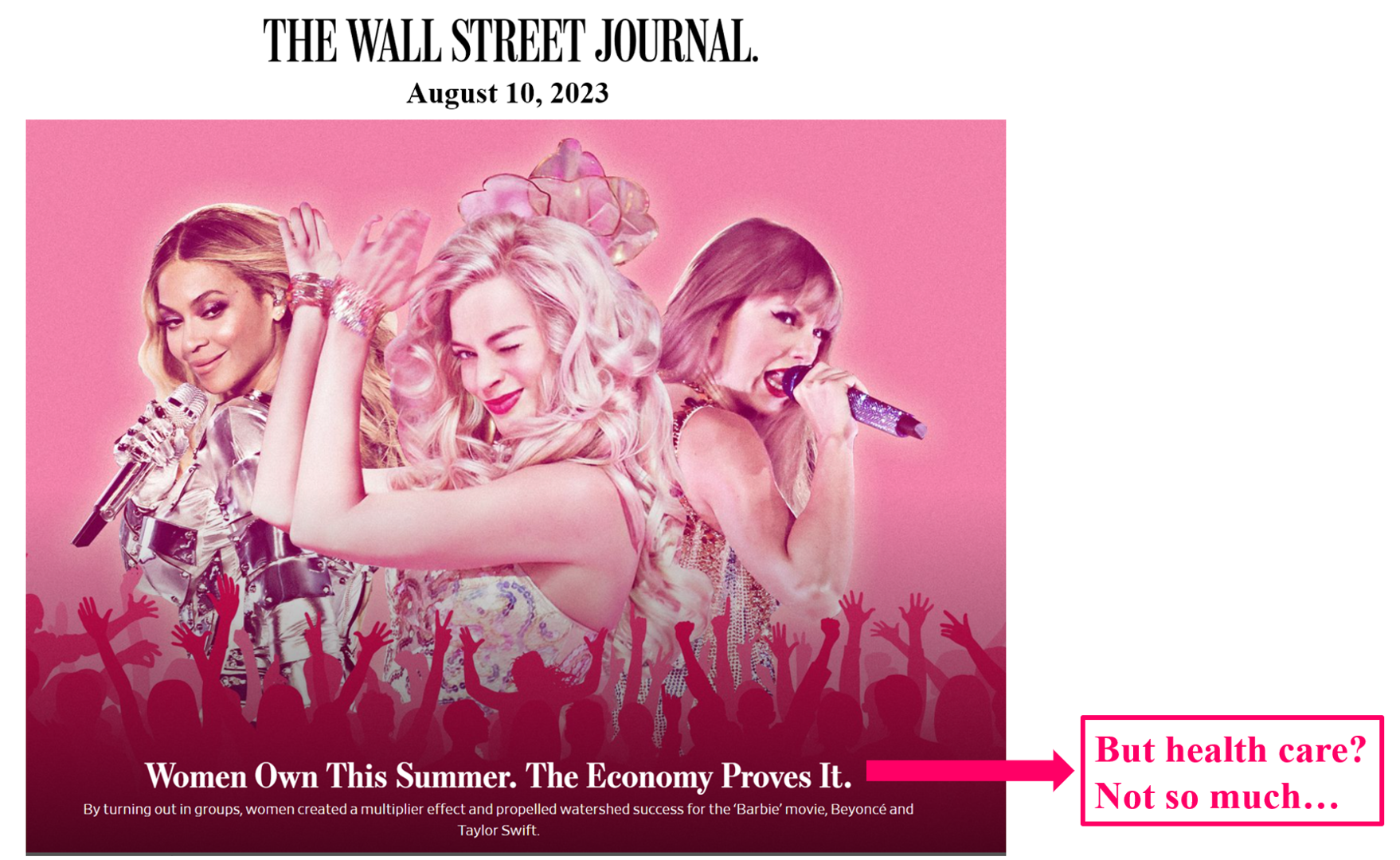
This weekend’s Wall Street Journal Saturday/Sunday edition featured a big story on the economic force of women in the summer of 2023, termed “the women’s multiplier effect” — that women’s spending is a powerful force in the U.S. economy (and as it turns out, in Sweden’s economy as well). The article was titled, “Women Own This Summer. The Economy Proves It,” and featured a Photoshopped image in various shades of pink with Margot Robbie as Barbie in the center, flanked by Beyonce to the left and Taylor Swift to the right. I’m
Cost Trumps Quality of Health Care for Consumers As Their Experience Has Eroded
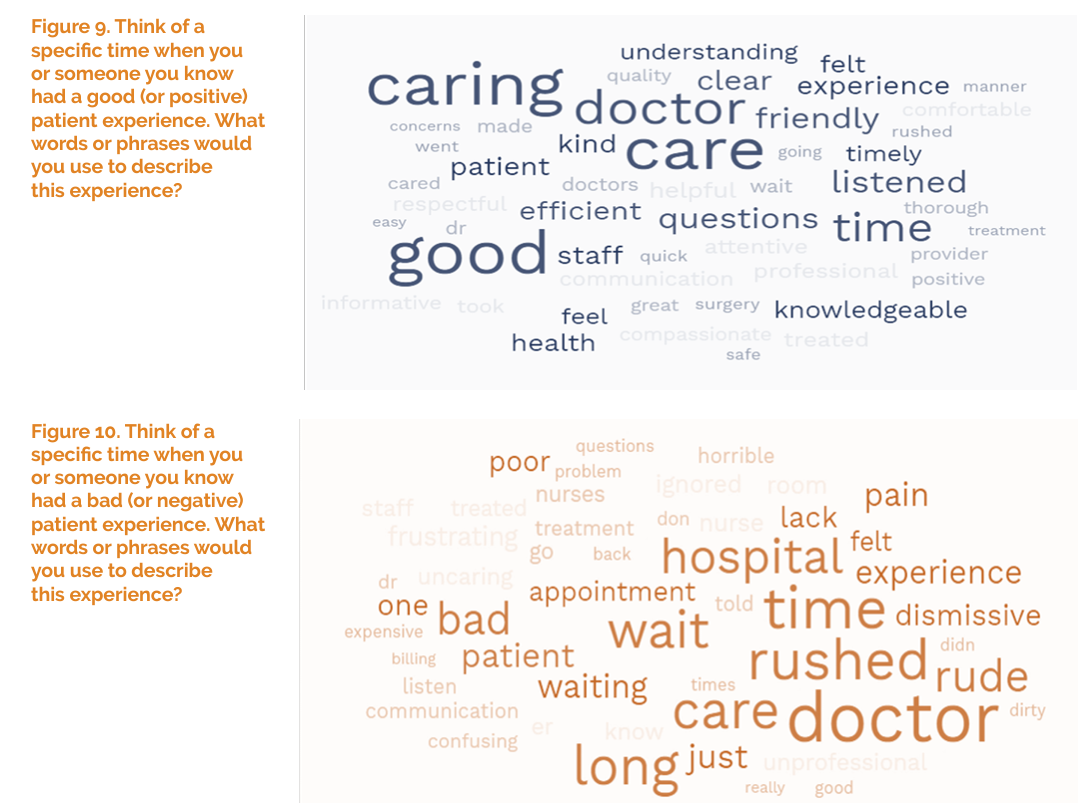
Patients’ perceptions of health care quality and experience have fallen in the three years since 2020, based on a July 2023 update from The Beryl Institute – Ipsos Px Pulse study. Start with health care quality, which 58% of U.S. adult patients ranked as “very good or good” in June 2020. The percent of health consumers evaluating their healthcare quality as very good or good fell to 41% of people in June 2023, an erosion of 17 percentage points, shown in the first chart. Next, consider patients’ ratings on their care experience,
To Avert a GLP-1 Cost Tsunami, Add Lifestyle Interventions: Learning from Virta Health
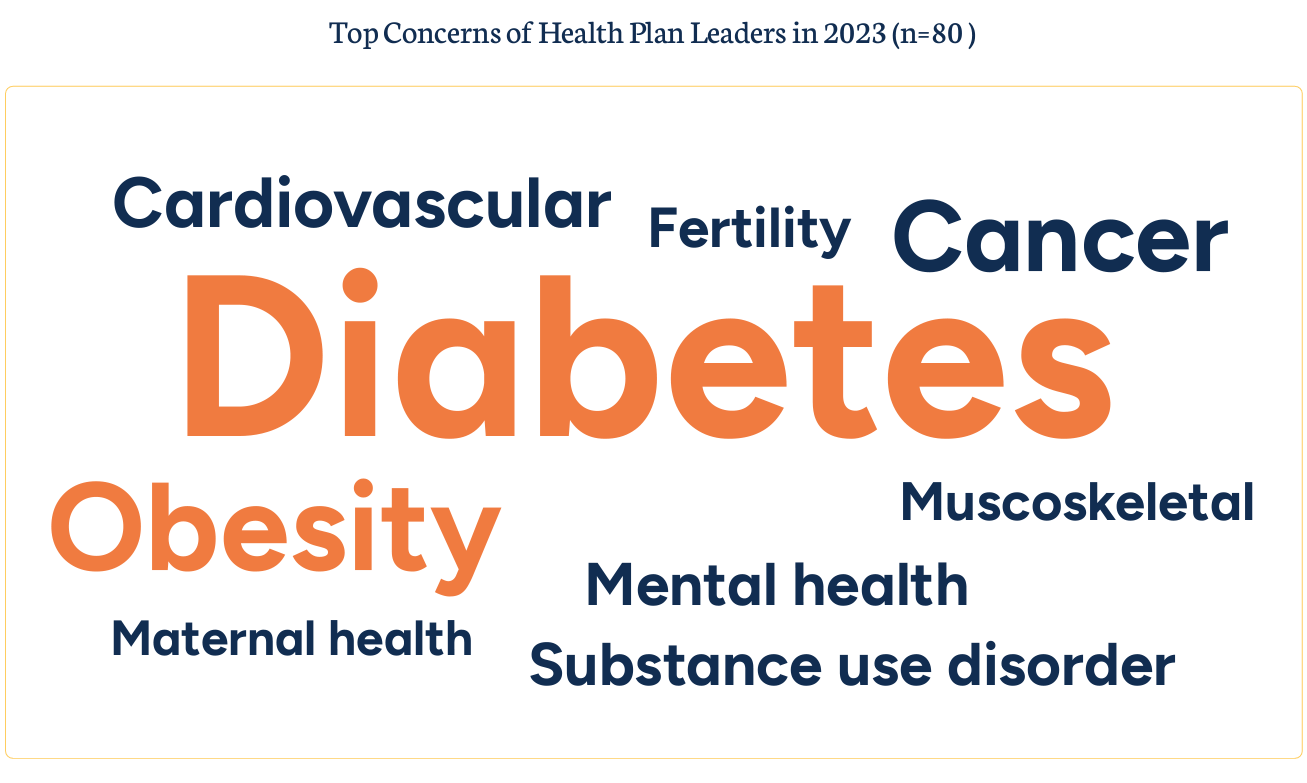
With consumer and prescriber interest in GLP-1 receptor agonist drugs “soaring,” health plan managers have a new source of financial stress and clinical questions on their to-do list. A team of Virta Health leaders held a webinar on 13th July 2023 to explain the results of a study the company just completed assessing health plan execs’ current views on Ozempic and other GLP-1 medicines with a view on both clinical outcomes and cost implications for this growing category of drugs that address diabetes and obesity. Indeed, diabetes and obesity are top health concerns among the
There’s a New “O” in Medicine-Town – Welcome OPill to the Front of the Counter
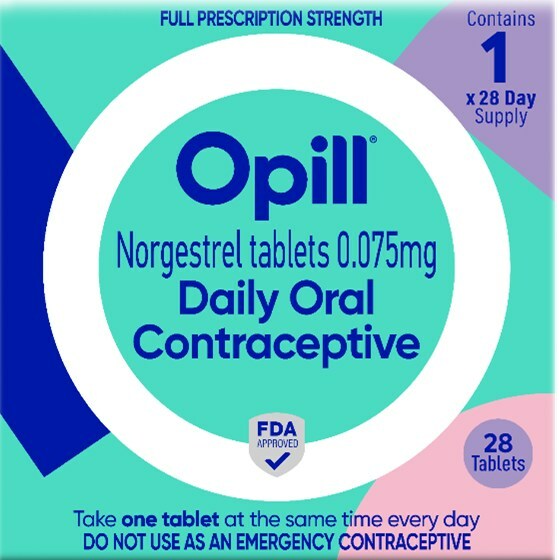
You may not be able to get that ear-worm jingle that goes “O O O Ozempic” out of your musical mind, but I’m happy to tell you there’s a new “O” in town: the Opill. Welcome to the first OTC contraceptive for sale in the USA. I wrote about Perrigo’s Opill here in Health Populi in May 2023 as a “signpost on the road to retail health.” It’s official: “The U.S. Food and Drug Administration (FDA) approved Opill®, a progestin-only daily oral contraceptive, for over-the-counter (OTC) use for all ages.
Can Artists Help to Remake Medicine? A New Book Asks and Answers (Yes!)
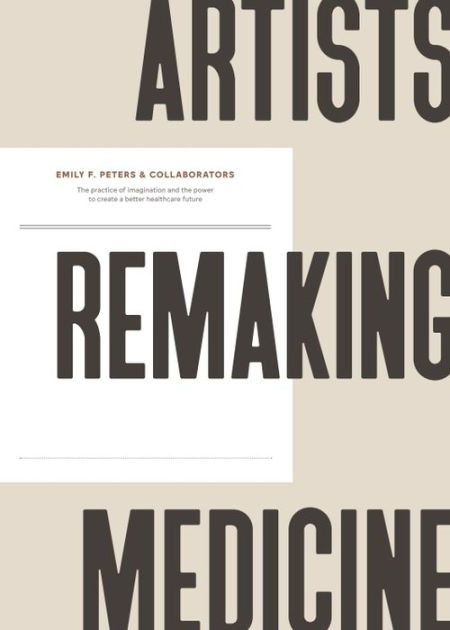
What if we asked an artist to re-imagine what health care could be? How might Van Gogh redesign a patient room akin to his room at Arles, or Michelangelo re-think general surgery? How might Thoreau take us on a nature walk for our mental health, or Basquiat channel his inner Da Vinci for a version of Jean-Michel’s Anatomy? In her new book, Artists Remaking Medicine. Emily Peters confronts health care’s paralyzing complexity (her words in the introduction) to invite a community of artists and artful thinkers to share their visions for remaking health care.
Happy 75th Birthday, NHS – Through A U.S. Health Care Lens
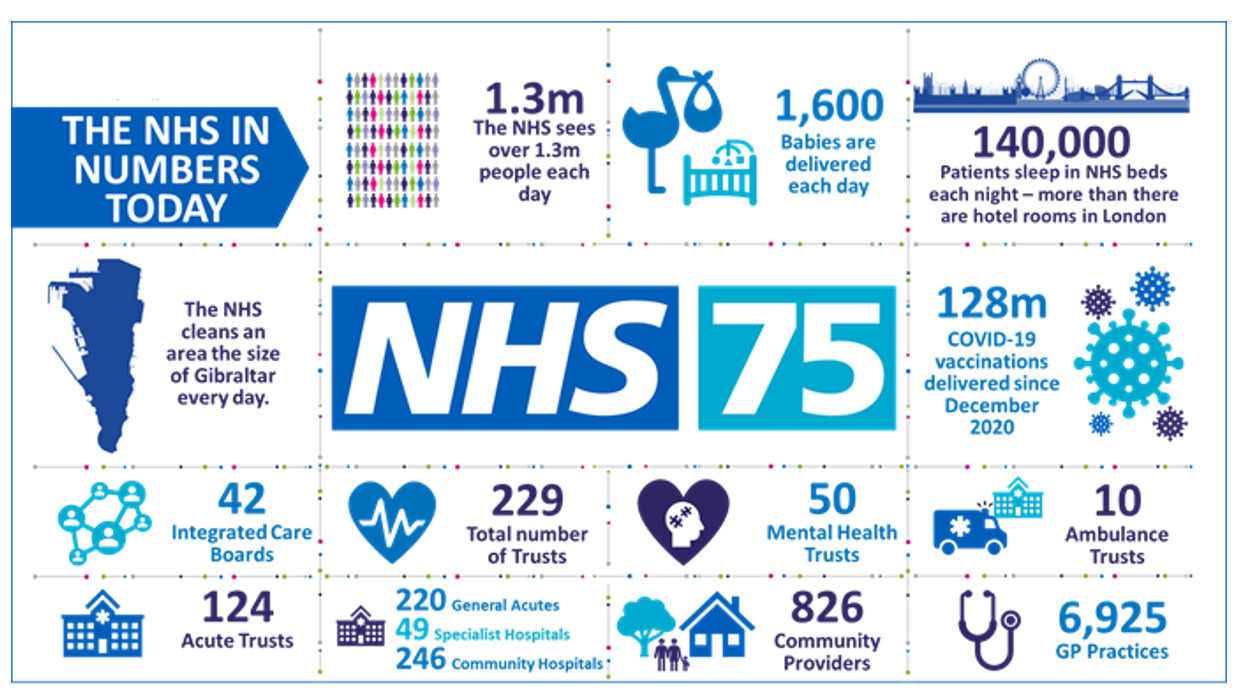
The UK’s National Health Service (NHS) turns 75 today. The NHS was the brainchild of Minister of Health Aneurin Bevan; he wrote in a statement to doctors and nurses in The Lancet on July 3, 1948, “My job is to give you all the facilities, resources, apparatus and help I can, and then to leave you alone as professional men and women to use your skill and judgement without hindrance.” This week in The Lancet, the editors assert, “The founding principles of the NHS put into practice 75 years ago are at risk of
Technologies That Bolster Health Will Be Baked Into the Fourth Industrial Revolution: Listening to the World Economic Forum
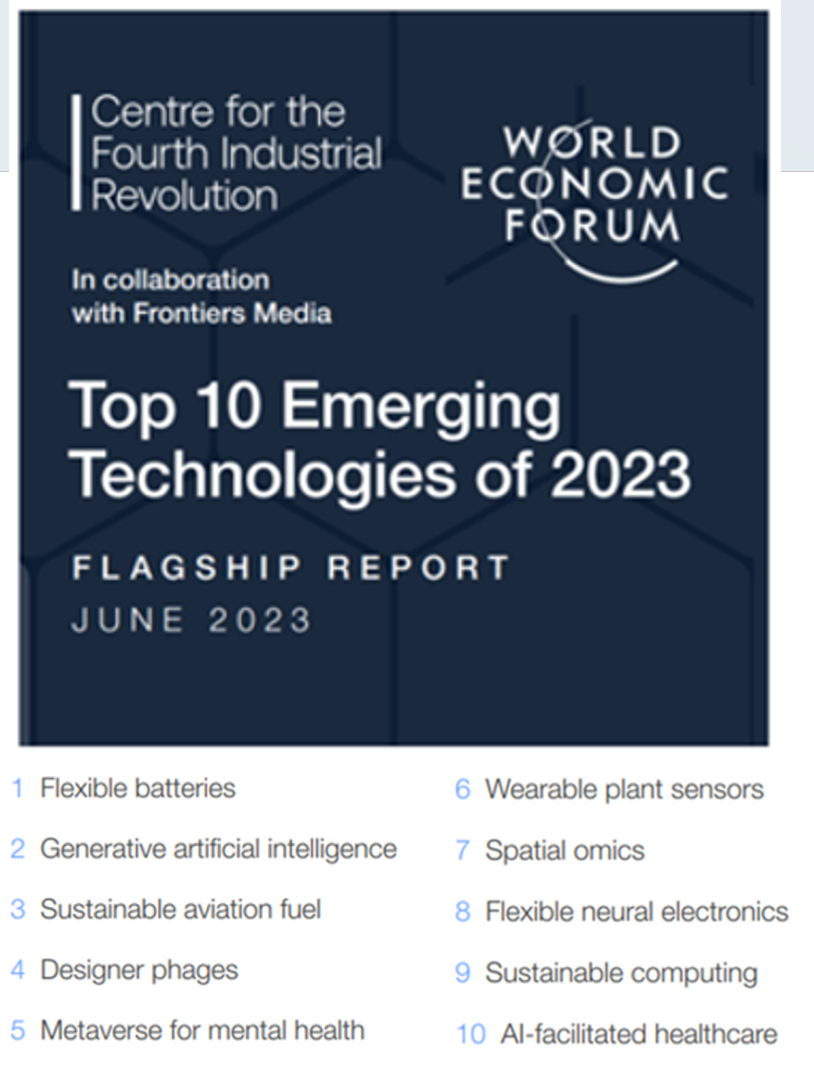
The technologies that will drive the Fourth Industrial Revolution have health baked into most of them, based on the Top 10 Emerging Technologies of 2023, a flagship report from the World Economic Forum, Two of the ten technologies making up this forecast directly speak to health and health care” AI-facilitated healthcare, and The metaverse for mental health. But seven of the remaining eight all address health somewhere in their discussions, and even the tenth non-obvious tech — #3, sustainable aviation fuel — would resonate with many researchers working on the opportunity
Patients-As-Health Care Payers Define What a Digital Front Door Looks Like
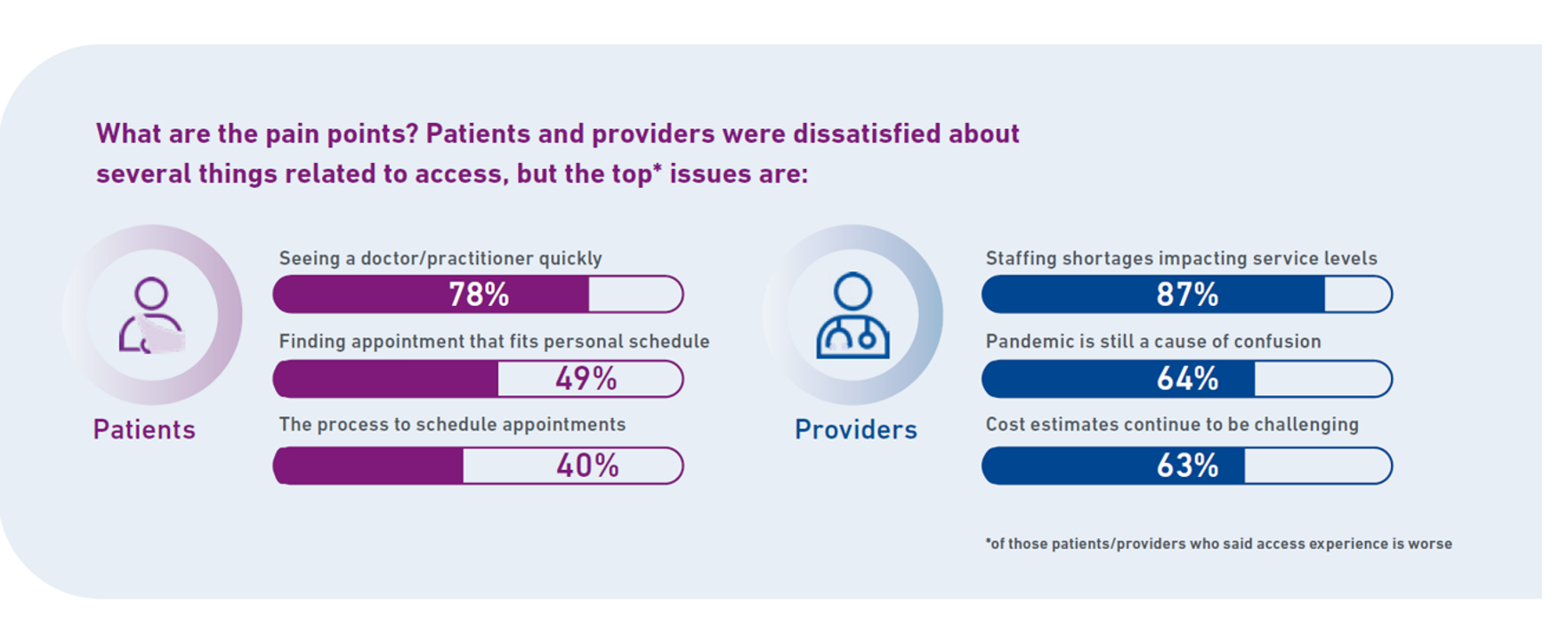
In health care, one of the “gifts” inspired by the coronavirus pandemic was the industry’s fast-pivot and adoption of digital health tools — especially telehealth and more generally the so-called “digital front doors” enabling patients to access medical services and personal work-flows for their care. Two years later, Experian provides a look into The State of Patient Access: 2023. You may know the name Experian as one of the largest credit rating agencies for consumer finance in the U.S. You may not know that the company has a significant footprint
Consumers and Cancer: 3 Patient-Focused Charts From IQVIA on the State of the Oncology in 2023 – and Introducing CancerX
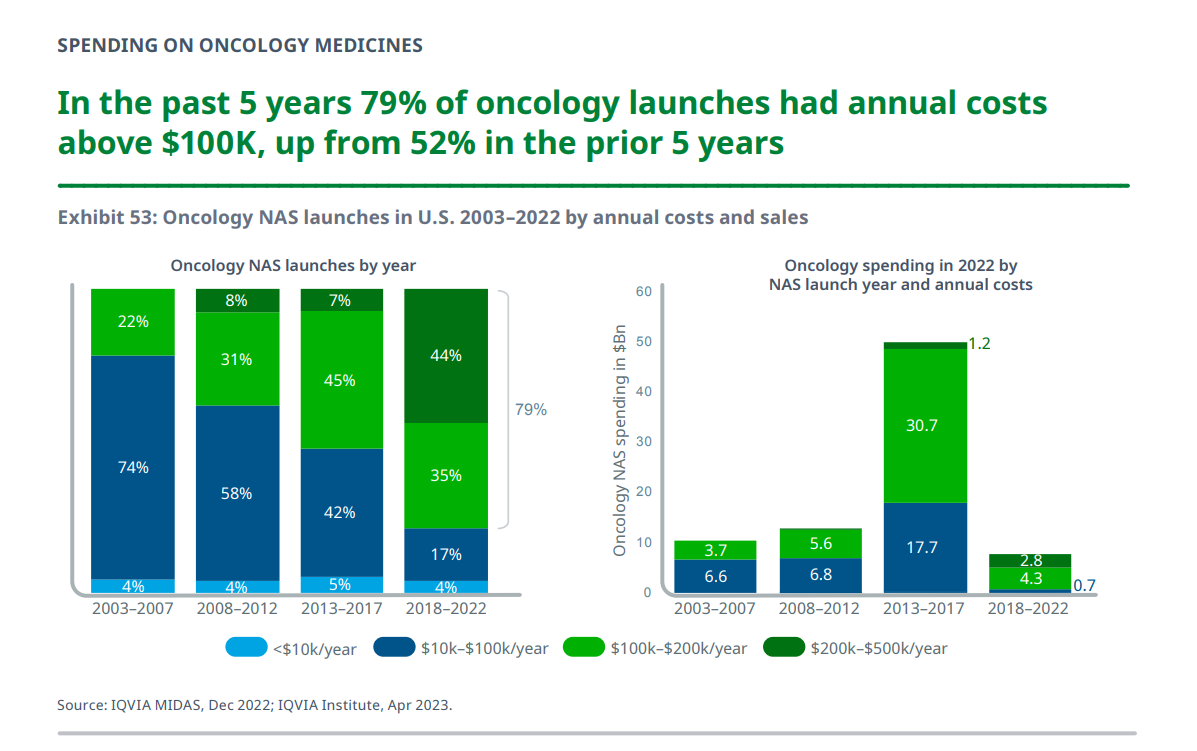
It’s time for the annual ASCO conference, currently convening the American Society for Clinical Oncology in Chicago. Starting 2nd June, there have been dozens of positive announcements updating research and therapies bringing hope to the 2 million new patients who will be diagnosed with cancer in the U.S. in 2023, and millions of more people worldwide. Just in time for #ASCO2023, the IQVIA Institute published their annual report on Global Oncology Trends 2023 – Outlook to 2027, an update featuring pipelines, therapy approvals, research updates, costs of oncology products, and patients.
Our Mental and Emotional Health Are Interwoven With What We Eat and Drink – Chewing On the IFIC 2023 Food and Health Survey
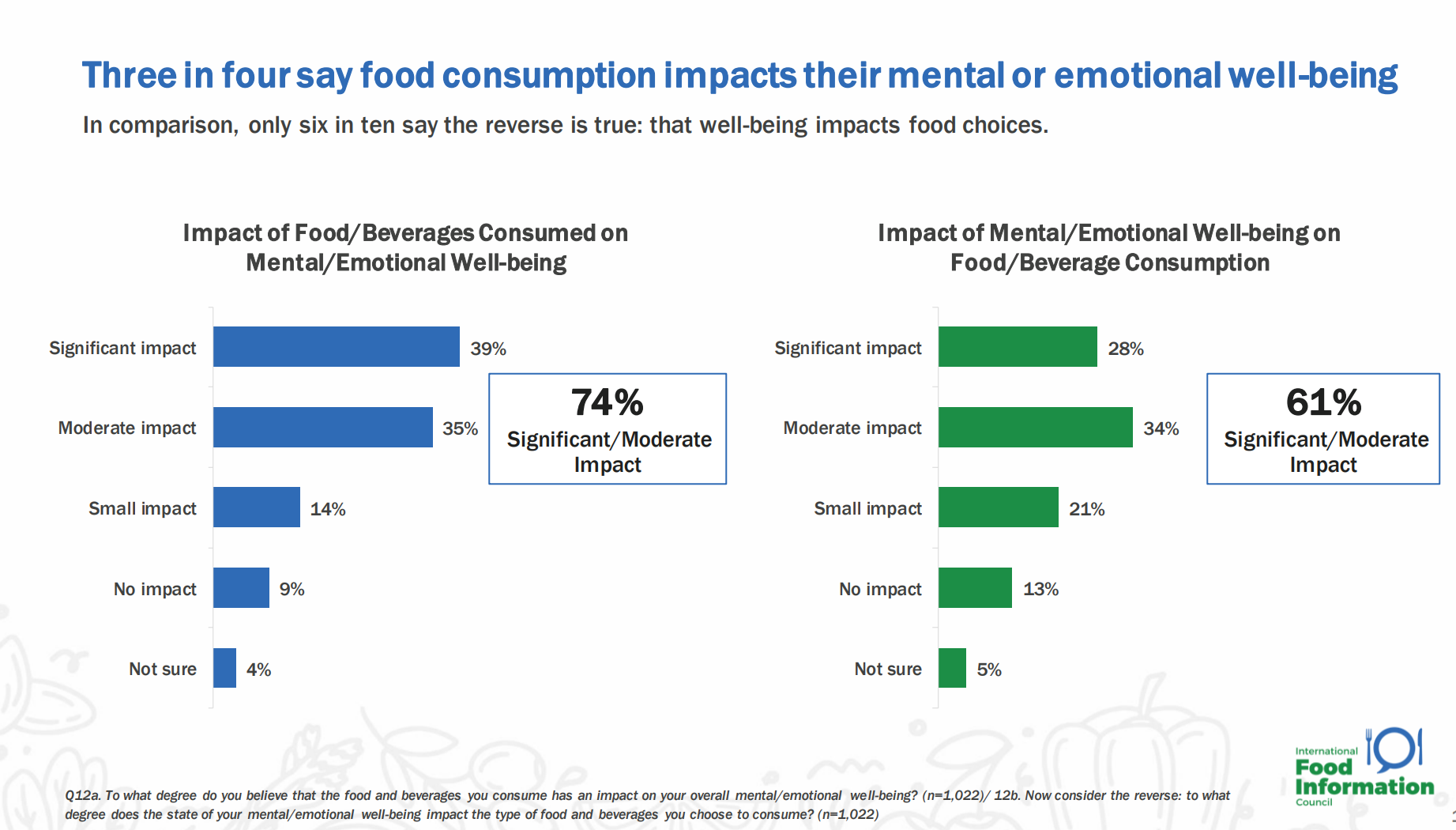
As most Americans confess to feeling stressed over the past six months, peoples’ food and beverage choices have been intimately connected with their mental and emotional well-being, we learn from the 2023 Food & Health Survey from the International Food Information Council (IFIC). For this year’s study, IFIC commissioned Greenwald Research to conduct 1,022 interviews with adults between 18 and 80 years of age in April 2023. The research explored consumers’ perspectives on healthy food, the cost of food, approaches to self-care through food consumption, the growing role of social media in the food system, and the influence of sustainability
A Public Health Wake-Up Call: Reading Between the Lines in IQVIA’s 2023 Use of Medicines Report
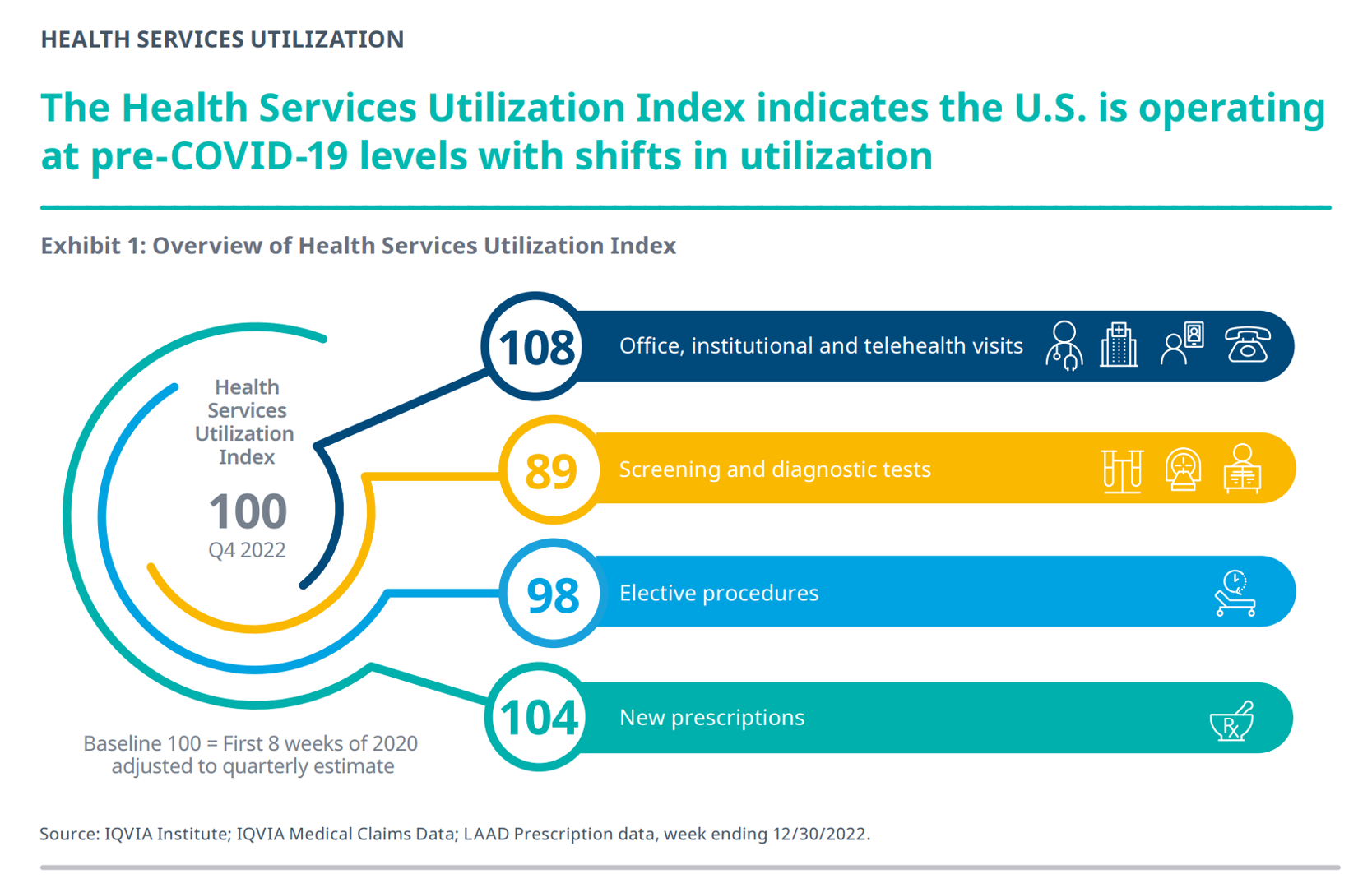
Reviewing the annual 2023 report from the IQVIA Institute for Human Data Science discussing The Use of Medicines in the U.S. is always a detailed, deep, and insightful dive into the state of prescription drugs. It’s a volume speaking volumes on the current picture of prescribed meds, spending and revenues, health care utilization trends, and a forecast looking out to 2027. In my read of this year’s review, I see a flashing light for U.S. health care: “Wake up, public health!” I’ve pulled out a few of the data points that speak to me about population health, prevention and early
Mental Health Services Grow in the Retail Health Ecosystem
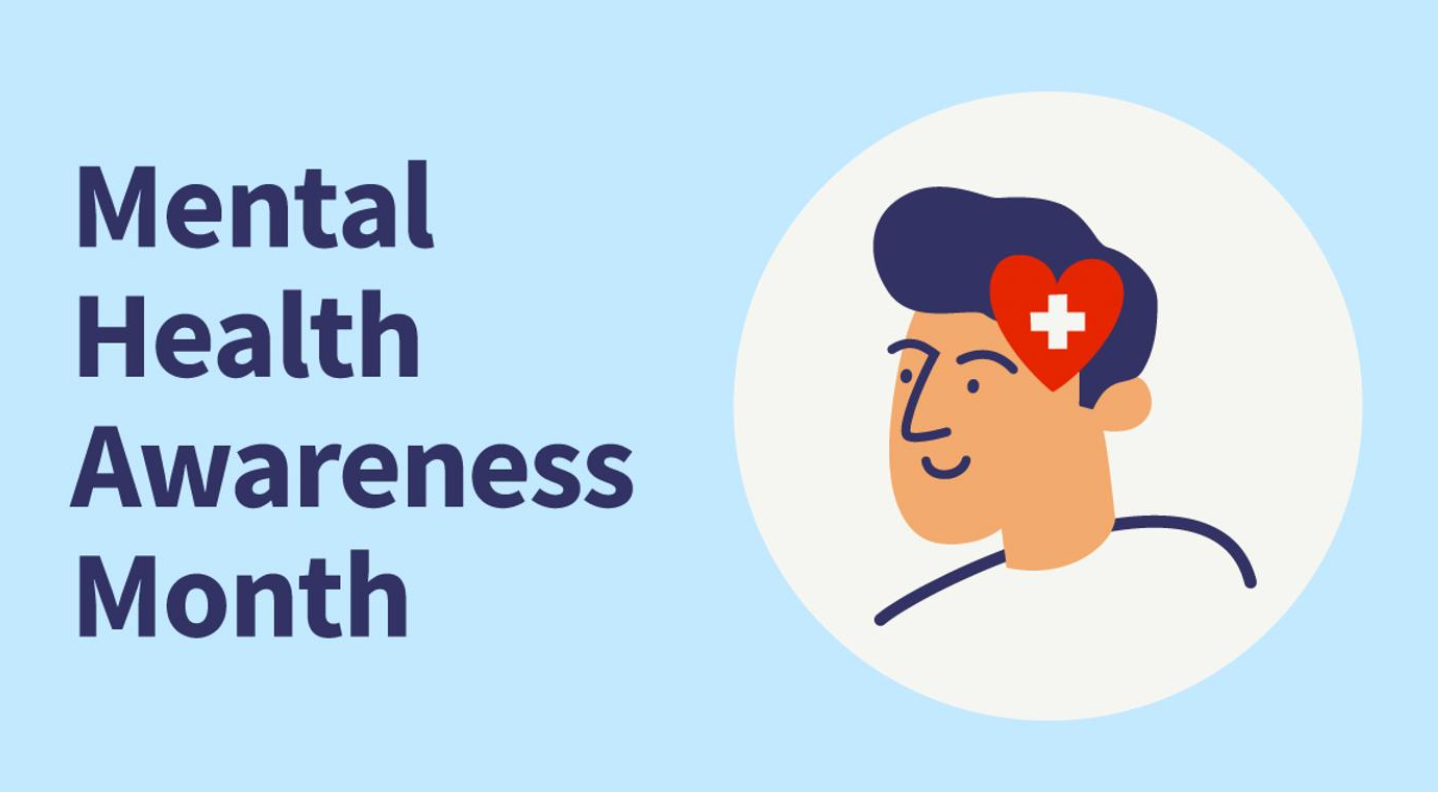
With May being Mental Health Awareness Month, there’s no shortage of press releases promoting a wide range of services and programs emerging from both the public and private sectors. In the wake of the COVID-19 public health crisis, the exposed epidemic-beyond-the-pandemic of mental health has inspired many collaborations between public, private commercial and not-for-profit organizations. These have begun to embed mental health into the larger retail health ecosystem. I’ll point to several examples as signposts for this phenomenon. Walgreens and Mental Health America – This collaboration expands Walgreens’ work with Mental Health America focusing in
Thinking Pharma on a Friday: Europe’s Big Reforms for a Health Union & the U.S. 50-State Fragments
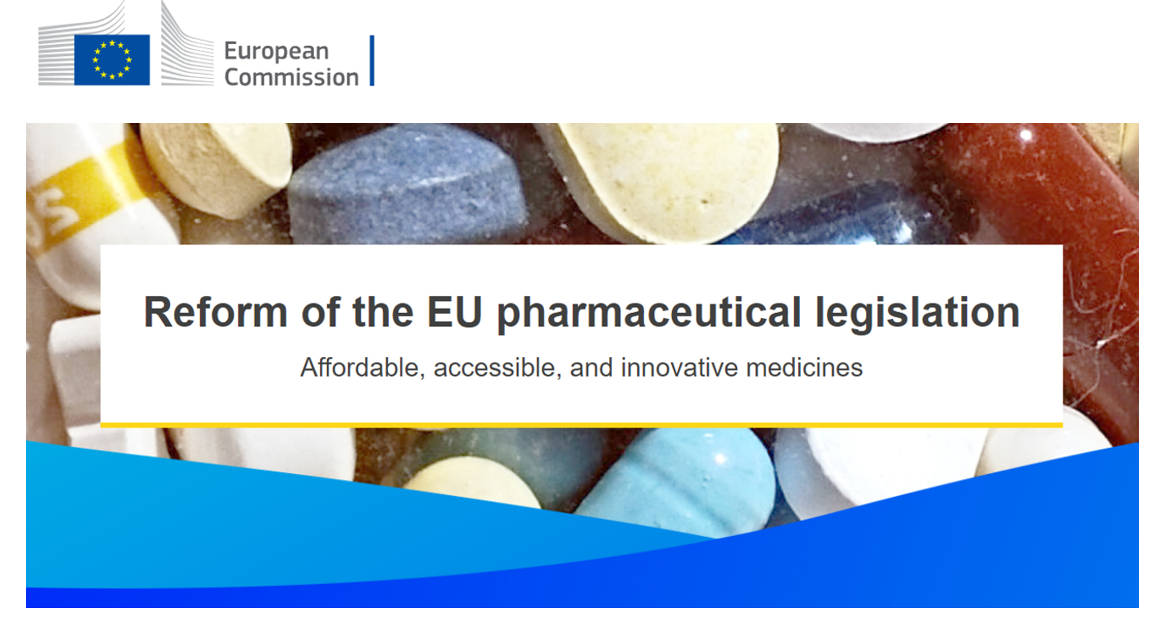
The COVID-19 pandemic re-shaped European Union leaders to reimagine healthcare, public health, and health citizenship in the EU. Welcome to #HealthUnion, the hashtag that the European Commission has adopted with the vision of assuring access to medicines for all people living in the 27-nation EU area — regardless of socioeconomic status. On 26th April 2023, the EC unveiled the most significant reforms for the region’s pharmaceutical industry in twenty years. It’s really a package or “toolkit” in the words of EC Health and Food Safety Commissioner Stella Kyriakides for addressing several strategic health pillars
Bolstering Health Literacy in a Little Book: Burn Prevention and Care With “The Family Oops”

About 180,000 deaths are attributable to burns each year, according to the World Health Organization. Non-fatal burns are a leading cause of morbidity. The good news is that burns are preventable, and we learn several terrific strategies for doing so from The Family Oops and Burns First Aid. This mighty little book, all of 28 pages and measuring 5.5 x 5.5″ square, packs a huge amount of self-care knowledge about burn prevention and treatment for home and workplace — the two sites where most burns happen, WHO attests. The Family Oops is a wonderful example of how a health literacy
Food Is Medicine, Especially When You Are Hungry – The American Heart Association‘s FIM Initiative

Food is a basic need, fundamental to our lives and well-being. And for millions of people around the world, and innumerable health citizens in the U.S., food security is part of daily life in 2023. Furthermore, as the U.S. Congress faces voting on the debt ceiling, the issue of SNAP benefits for nutritional assistance (aka “food stamps”) has been identified as a negotiating line-item by certain Federal budget-cut minded folks. That’s why the Food Is Medicine Initiative, launched collaboratively between the American Heart Association and The Rockefeller Foundation, is so timely and welcome. “The vision for
Consumers Expect Every Company to Play a Meaningful Role in “My Health” – New Insights from the 2023 Edelman Trust Barometer
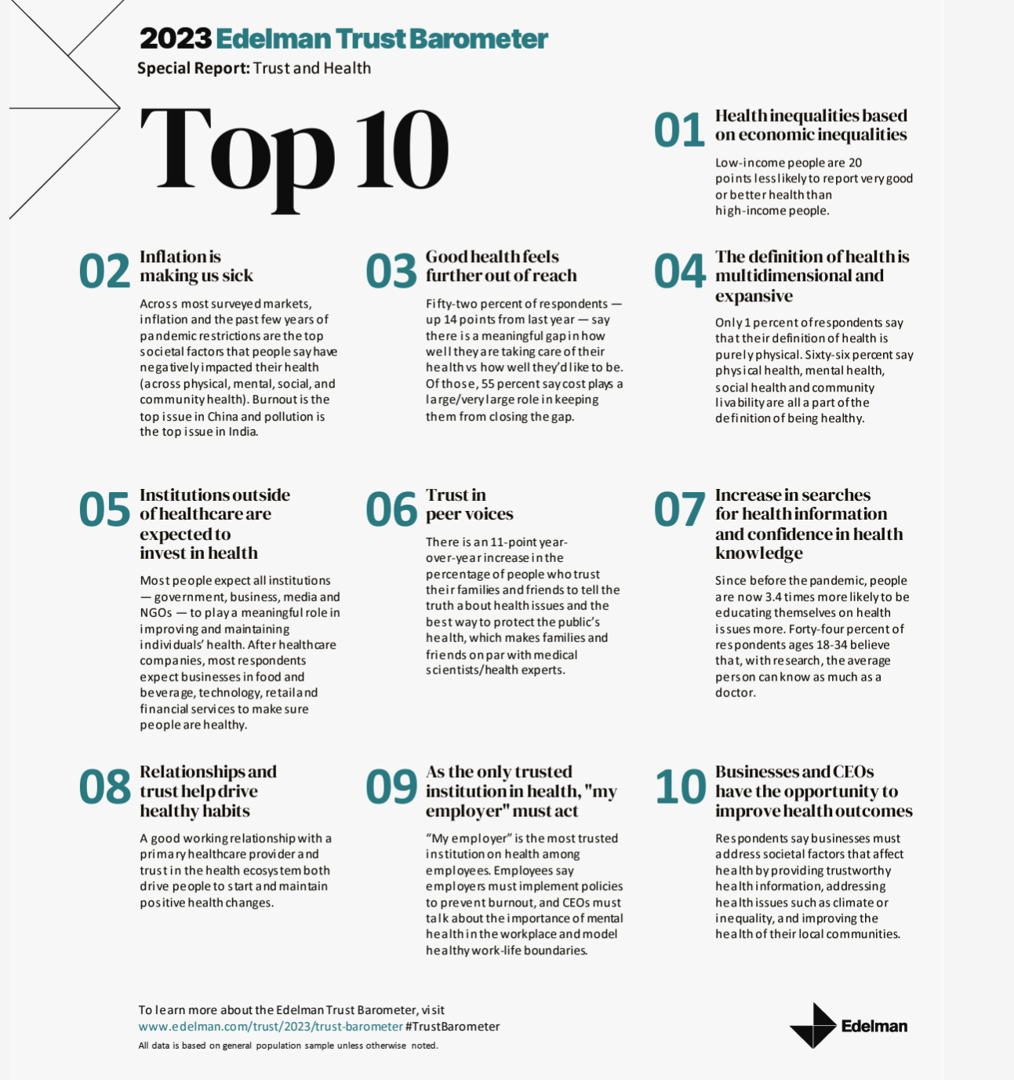
People have expanded their definitions of health in 2023, with mental health supplanting physical health for the top-ranked factor in feeling healthy. Welcome to the Edelman Trust Barometer Special Report: Trust and Health, released this week, with striking findings about how the economic, post-pandemic life, pollution and climate change all feed mis-trust among citizens living in 13 countries — and their eroding trust for health care systems. While these factors vary by country in terms of relative contribution to citizen trust, note that in the U.S., social polarization plays an outsized role in factors that “make us
Appreciating Water as a Driver of Health: Designing for Good, from the UN to Liberia and Flint, Michigan
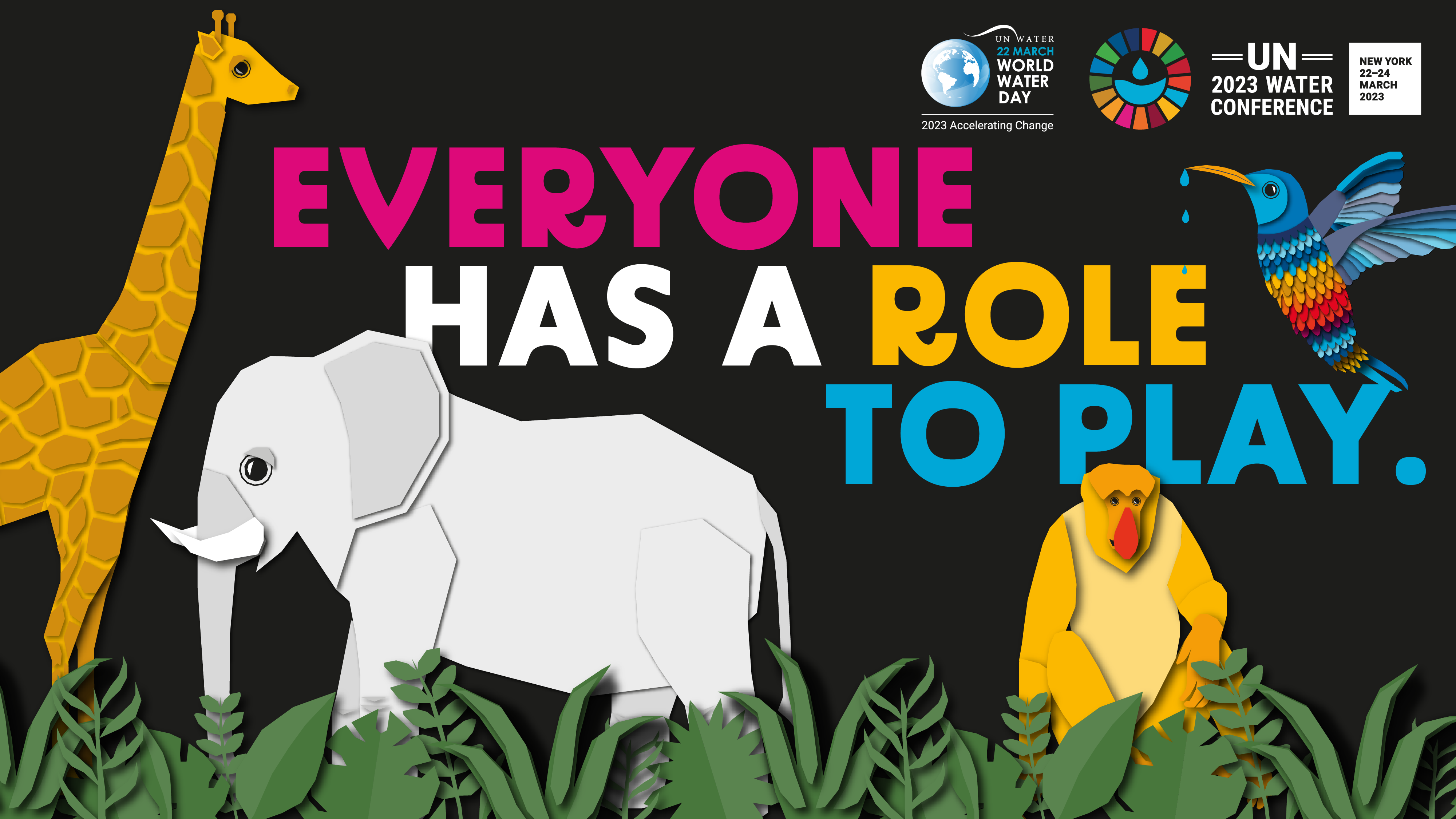
The United Nations (UN) convened the 2023 Water Conference convened March 22-24, 2023, in New York City. The meeting brought together stakeholders from all over the world to brainstorm how to meet UN sustainability development goals (SDGs) for #6 of the 17 SDGs addressing clean water and sanitation. This event was billed in the words of the conveners, a “watershed moment to tackle the global water crisis and ensure a water-secure future.” That water-secure future is a critical factor in the well-being for both people and Planet Earth, quantified in the first
The Commercial Determinants of Health – How the Private Sector Shapes Public and Peoples’ Health
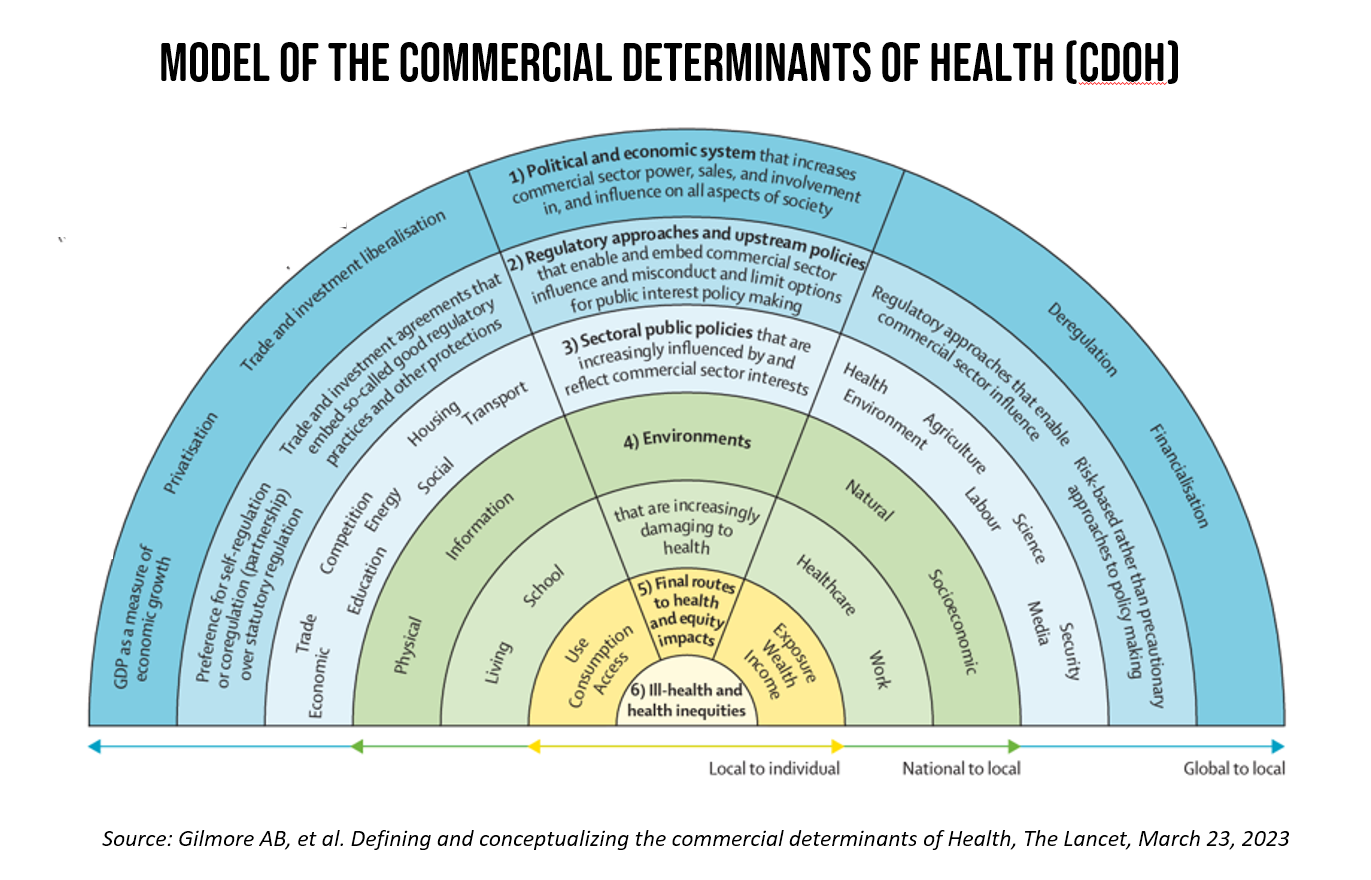
You’ve heard of the social determinants of health (SDoH), the driving factors that shape a person’s health beyond medical care. These include lifestyle behaviors such as smoking and food consumption, education, job security and wage stability, transportation and safe/clean physical environments, among other issues. There’s another lens on drivers of health that impact our well-being, the commercial determinants of health (CDoH). The Lancet‘s collection of research published online on March 23, 2022 explores CDoH’s role in shaping public and individual health, along with potential calls-to-action for addressing these challengres. Start with a definition of
More Consumers Expect Health/Care Companies to Be Purpose-Ful Versus All Other Industries
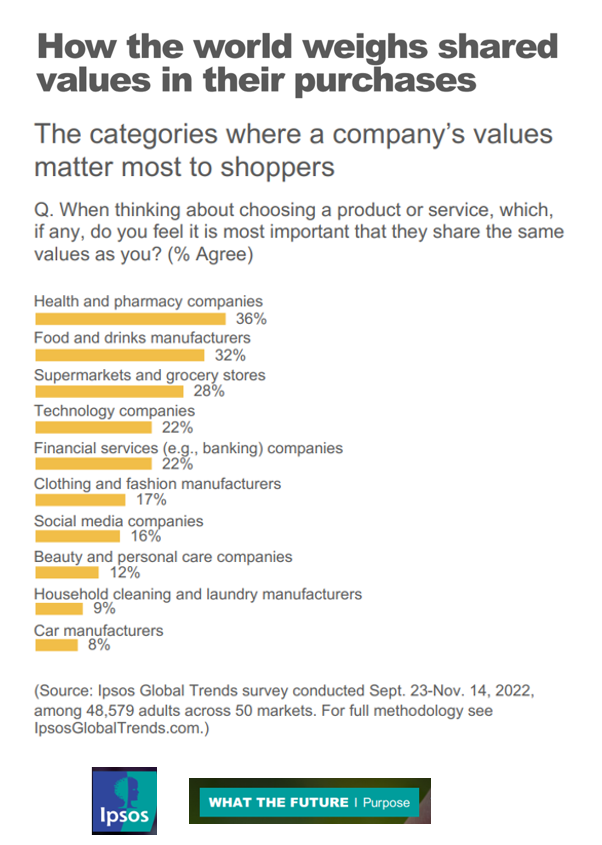
If your organization serves health consumers, patients, and caregivers, and you’re asking them to spend money on your services or products, then you’ll do well to be clear on your values and sense of purpose. In the latest Ipsos look into the future of “Purpose,” we find that consumers look most to health and pharmacy companies for shared values, compared with other industries people patronize such as food and grocery, technology and banks. To understand where Ipsos is coming from on this aspect of ESG, we’ll start with their territory map
Don’t Mess with Medicare and Medicaid, Washington: They Remain Popular with Americans Across Party ID
A majority of the U.S. public does not want politicians to “up-end” government-funded health programs, according to the Kaiser Family Foundation’s March 2023 Health Tracking Poll. Social Security, Medicare, and Medicaid all garner most partisans’ support whether identifying as Democrat, Independent, or Republican, KFF found in their monthly poll of U.S. voters ages 18 and over. The survey was conducted online and by telephone among 1,271 U.S. adults between March 14-23, 2023. Among all the important findings in this well-timed poll, I’ll point to the issue of public
The New Deaths of Despair in America – Among U.S. Children

The phenomenon of Deaths of Despair is the short-hand name for rising mortality among certainly people living in the U.S. due to overdose, accidents, and suicide. Angus Deaton and Anne Case published their first of many research papers on Deaths of Despair in 2015. Their research uncovered the risks of dying a Death of Despair to be higher among men, especially those between the ages of 25 and 64. But mortality isn’t only going in the wrong direction for those people most closely associated with the Deaths of Despair demographic: there’s another life-span line graph moving in the wrong direction,
The Top 10 Patient Safety Concerns for 2023 Are About Social, Mental and Behavioral Health
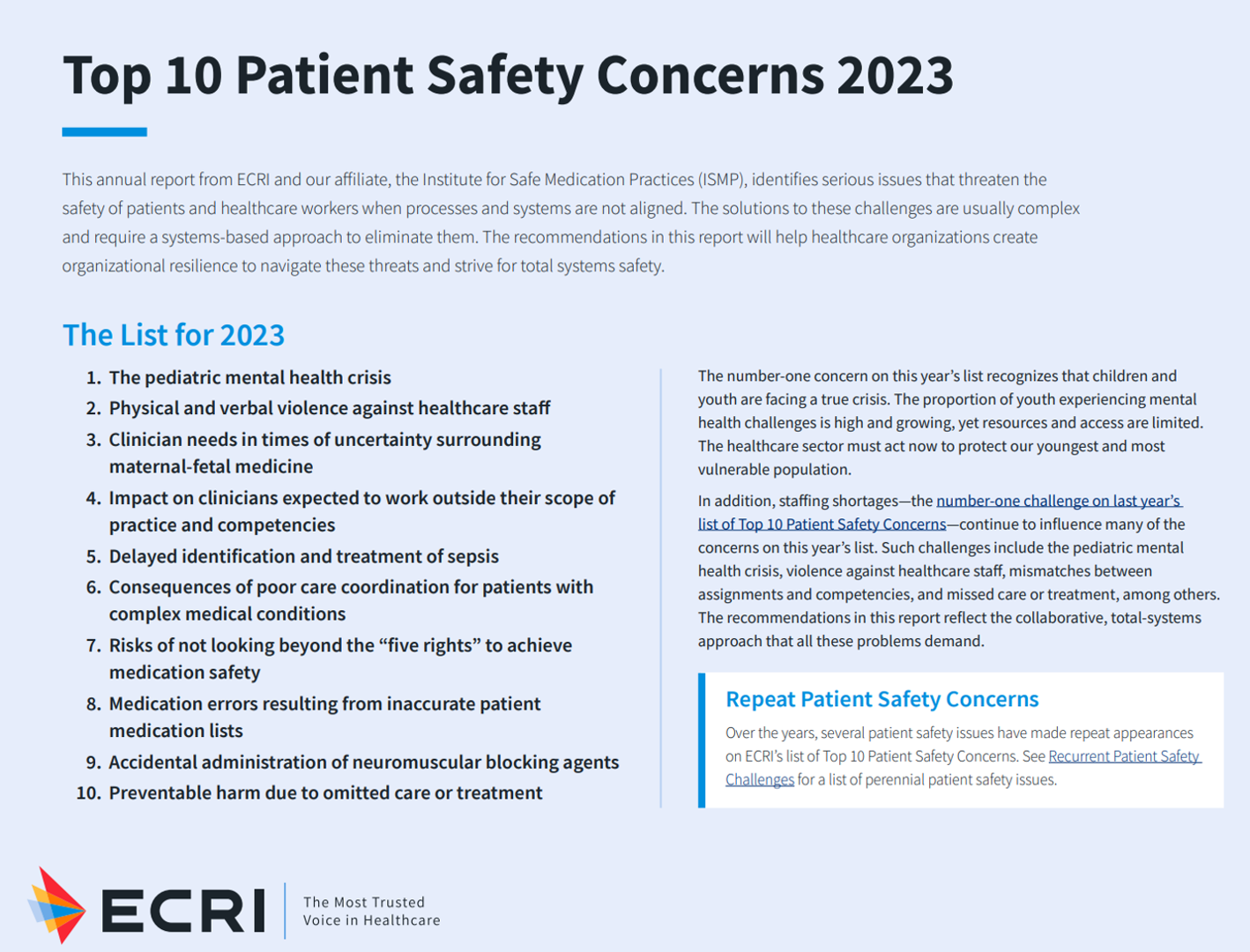
Ten years ago, ECRI named the top 10 health technology hazards for 2013: they were alarm hazards, medication administrative errors using infusion pumps, unnecessary exposure and radiation burns from diagnostic radiology procedures, patient/data mismatches in EHRs and other HIT systems, interoperability failures with medical devices and health IT systems, and five other tech-related hazards. In 2014, ECRI pivoted the title of this annual report to “patient safety concerns,” a nuance away from health technology. Fast forward to 2023 and ECRI’s latest take on the Top 10 Patient Safety Concerns 2023. While technology is embedded in this list, the headlines have more
Enabling better health care, everywhere – my conversation with Microsoft
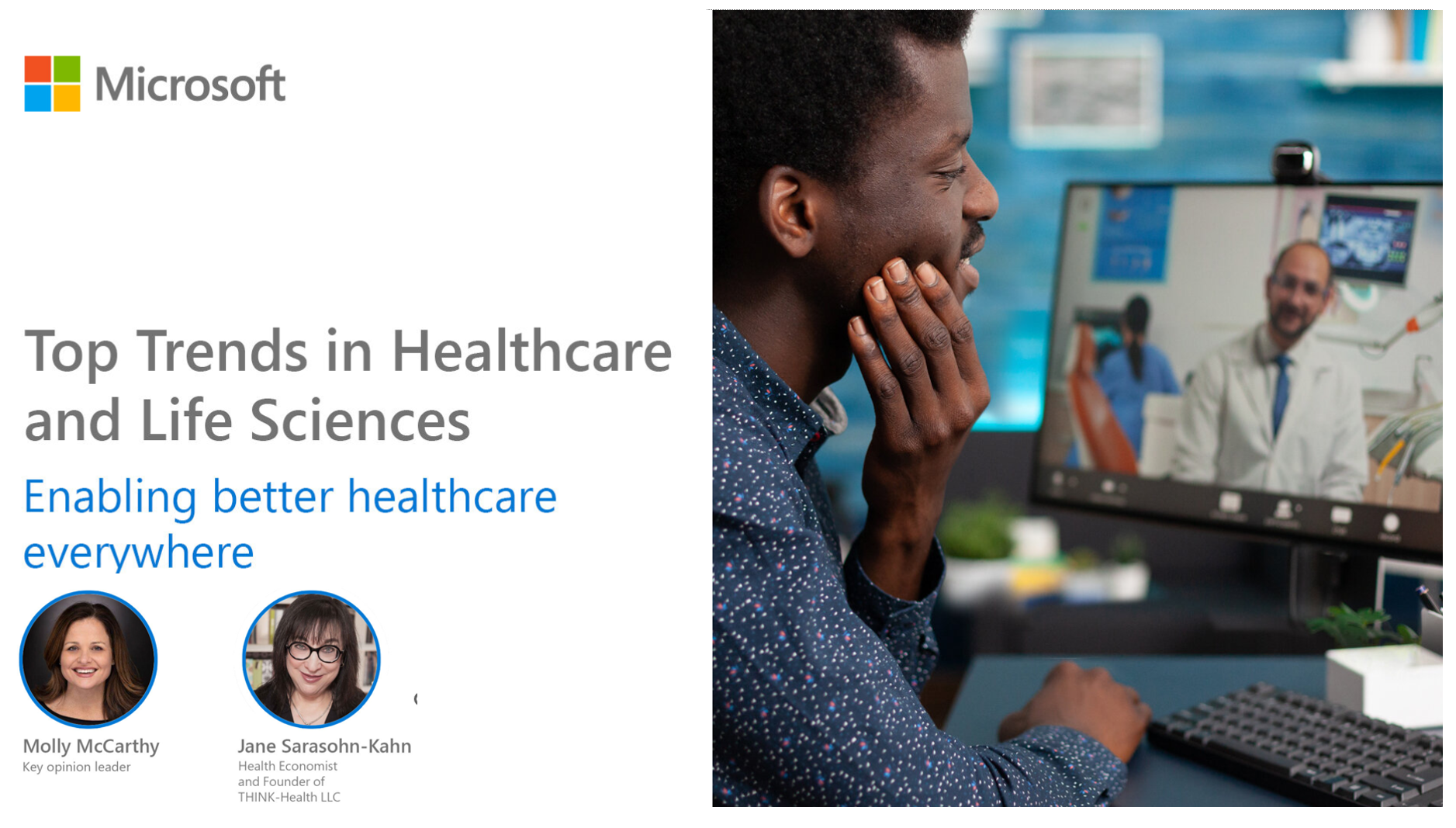
I am grateful to have been given the opportunity to brainstorm omnichannel health care for people to enable better health care for all, anywhere and everywhere, with Team Microsoft. Key opinion leader Molly McCarthy and I covered a lot of ground in this webcast conversation as part of Microsoft’s series of three “Expert perspectives on trends driving change in healthcare.” Molly and I covered a lot of ground here, starting with the key forces shaping and accelerating virtual care across the continuum. While these were in place before the COVID-19 pandemic, the public health
The American Hospital Association Looks at Retail and Tech Health Care Disruptors
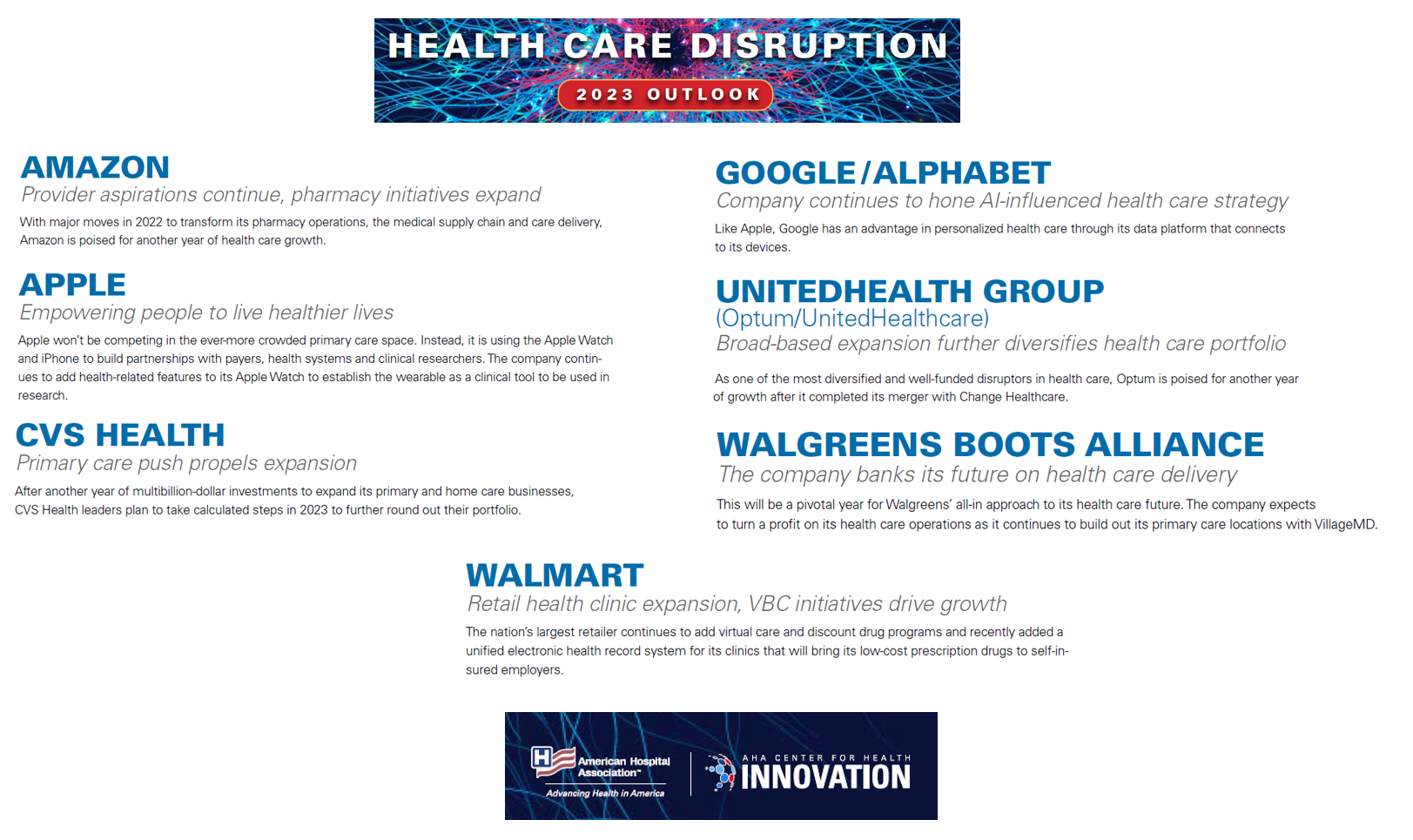
Ever since Clayton Christensen explained the concept of disruptive innovation in 1995, health care became one of the poster children emblematic of an industry ripe for disruption. Nearly 30 years later, disrupting health care continues to be a theme which, in 2023, seems open for those slow-moving tectonic driving forces to finally re-form and re-imagine health care delivery. So in today’s Health Populi we turn to a new report, Health Care Disruption 2023 Outlook, part of AHA’s “The Buzz” market scan initiative. The American Hospital Association is taking disruption seriously right here, right now, as the U.S. hospital sector is
The Future of Love and How It Could Shape Health, Well-Being, and Daily Living

“The future of love is bound to the institutions that have historically shaped and defined it,” Ipsos’s What the Future: Love report begins. Consider: religion, government, financial institutions….and the health care ecosystem, as well. On this Valentine’s Day 14th February 2023, it is a good time to consider this convergence as health politics, financial well-being, and emerging technologies will be re-shaping institutions and consumers in the coming months and near-term. The Ipsos researchers have been assessing the future of many aspects of our lives over the past couple of years, such as the future of wellness,
What Are Patients Looking for in a Doctor? It Depends on Who You Ask…and Their Race
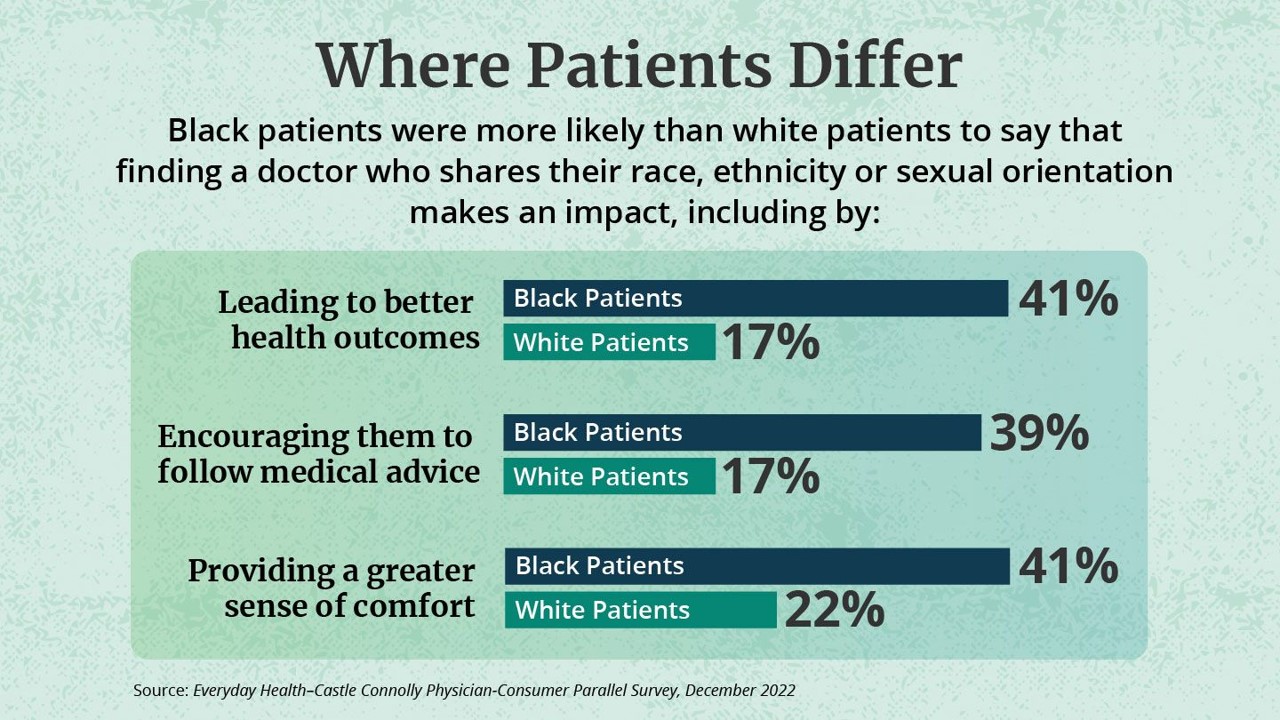
While the same proportion of Black and White patients say they are looking for a doctor with empathy and compassion, there are relatively large differences between patients based on their race, found in the Everyday Health-Castle Connolly Physician-Consumer study. The survey was conducted in December 2022 among a group of 1,001 U.S. consumers and 277 Castle Connolly health care professionals. As the first bar chart illustrates “where patients differ, “Black people were nearly twice as likely as white people (41 percent versus 22 percent) to completely agree that they would be more comfortable and
The Polarization of Trust in 2023 – What It Means for Health, via Edelman at Davos WEF 23
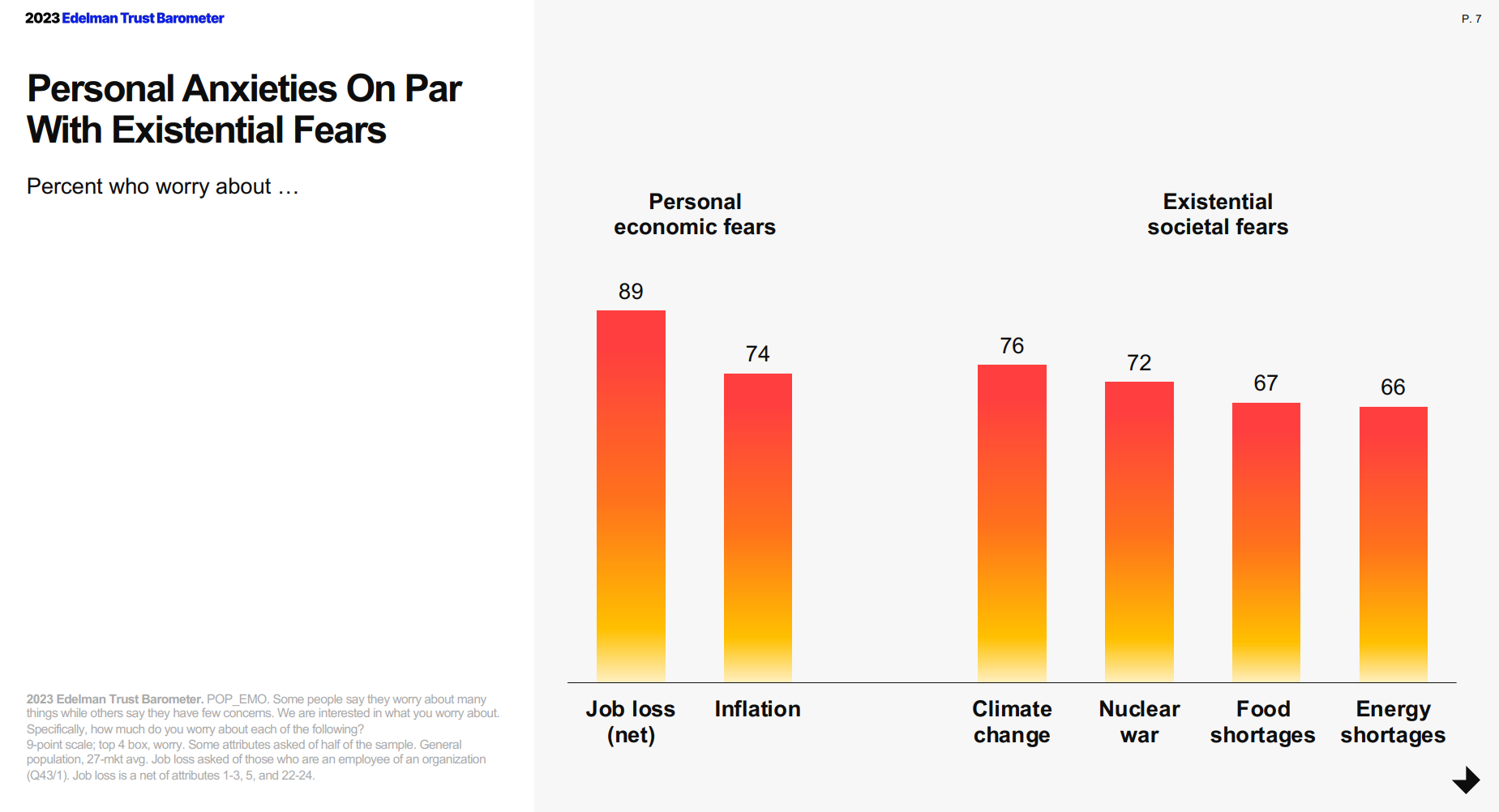
For the third year in a row, citizens in most of the world see business as the most-trusted institution, above government, media, and NGOs, found in the 2023 Edelman Trust Barometer, unveiled this week at the annual World Economic Forum in Davos, Switzerland. The Edelman team conducted this 23rd annual study in November 2022 in 28 countries, among over 32,000 people — some 1,150 residents per country polled. (Note that Russia, studied in the surveys between 2007 and 2022, was not included in the 2023 research). The first chart arrays
Of All Forms of Inequality, Injustice in Health Care is the Most Shocking and Inhumane: Listening to Martin Luther King, Jr.

Today as we appreciate the legacy of Martin Luther King, Jr., I post a photo of him in my hometown of Detroit in 1963, giving a preliminary version of the “I Have a Dream” speech he would deliver two months later in Washington, DC. Wisdom from the speech: “But now more than ever before, America is forced to grapple with this problem, for the shape of the world today does not afford us the luxury of an anemic democracy. The price that this nation must pay for the continued oppression and exploitation of the
The Heart Health Continuum at #CES2023 – From Prevention and Monitoring to Healthy Eating and Sleep
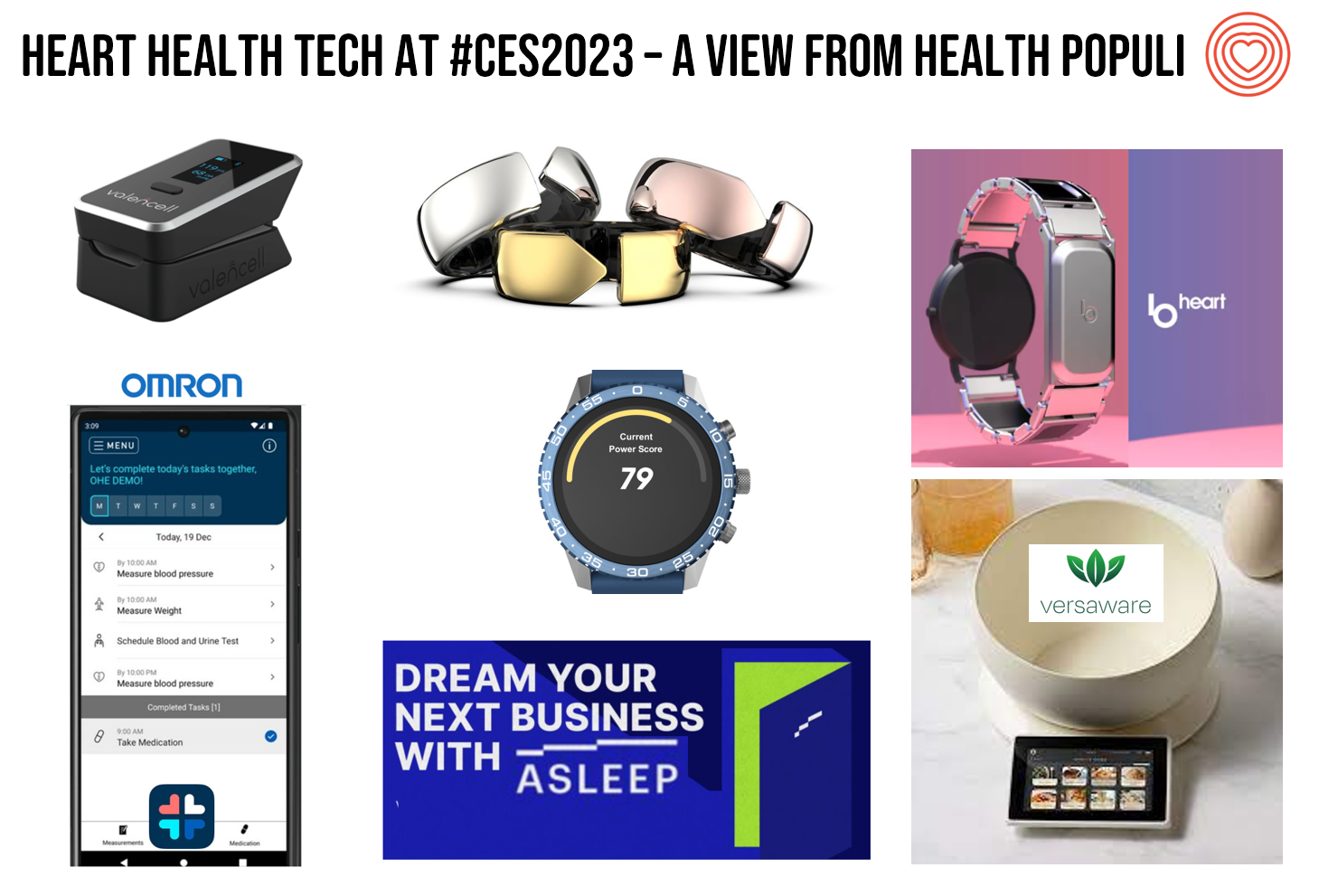
“Are we losing the battle against heart disease?” asks the lead article featured in the January 2023 issue of the AARP Bulletin. “Despite breathtaking medical advancements since President Harry Truman declared war on heart disease 75 years ago, researchers have observed a disturbing trend that started in 2009: America’s death rate from heart-related conditions is climbing again,” the detailed essay explains. AARP is in fact a very visible stakeholder in the 2023 CES, collaborating on the AgeTech content track at the tech conference. The track covers all aspects of aging well, from financial health to entertainment,
Can Consumer Electronics Help Stem the Decline of U.S. Life-Years? A Preface for #CES2023
Life expectancy in the U.S. dropped nearly three years between 2019 and 2021, from close to 79 years down to 76. We ended 2022 with this new, sobering statistic from the Centers tor Disease Control (CDC). We begin 2023 with the opening of CES 2023, the world’s largest annual meet-up of consumer electronics innovators, companies, and retailers. How can digital health and other consumer-facing technologies help our health? First, consider the stark data point(s), and then we can better respond to the question’s answer in the Hot Points, below. In case you
When Household Economics Blur with Health, Technology and Trust – Health Populi’s 2023 TrendCast
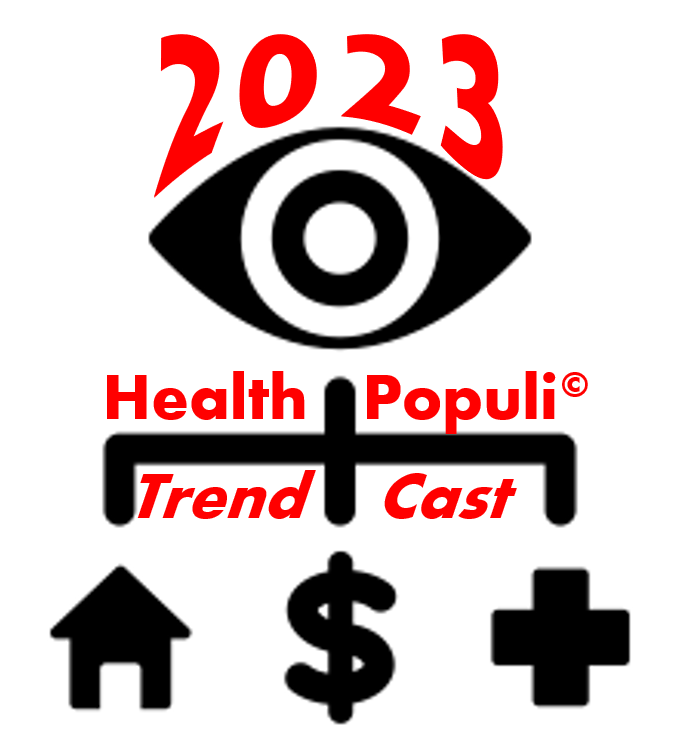
People are sick of being sick, the New York Times tells us. “Which virus is it?” the title of the article updating the winter 2022-23 sick-season asked. Entering 2023, U.S. health citizens face physical, financial, and mental health challenges of a syndemic, inflation, and stress – all of which will shape peoples’ demand side for health care and digital technology, and a supply side of providers challenged by tech-enabled organizations with design and data chops. Start with pandemic ennui The universal state of well-being among us mere humans is pandemic ennui: call it languishing (as opposed to flourishing), burnout, or
Dollar General & CHPA Collaborate to Bolster Health Consumers’ Literacy and Access for OTC Pain Meds and Self-Care
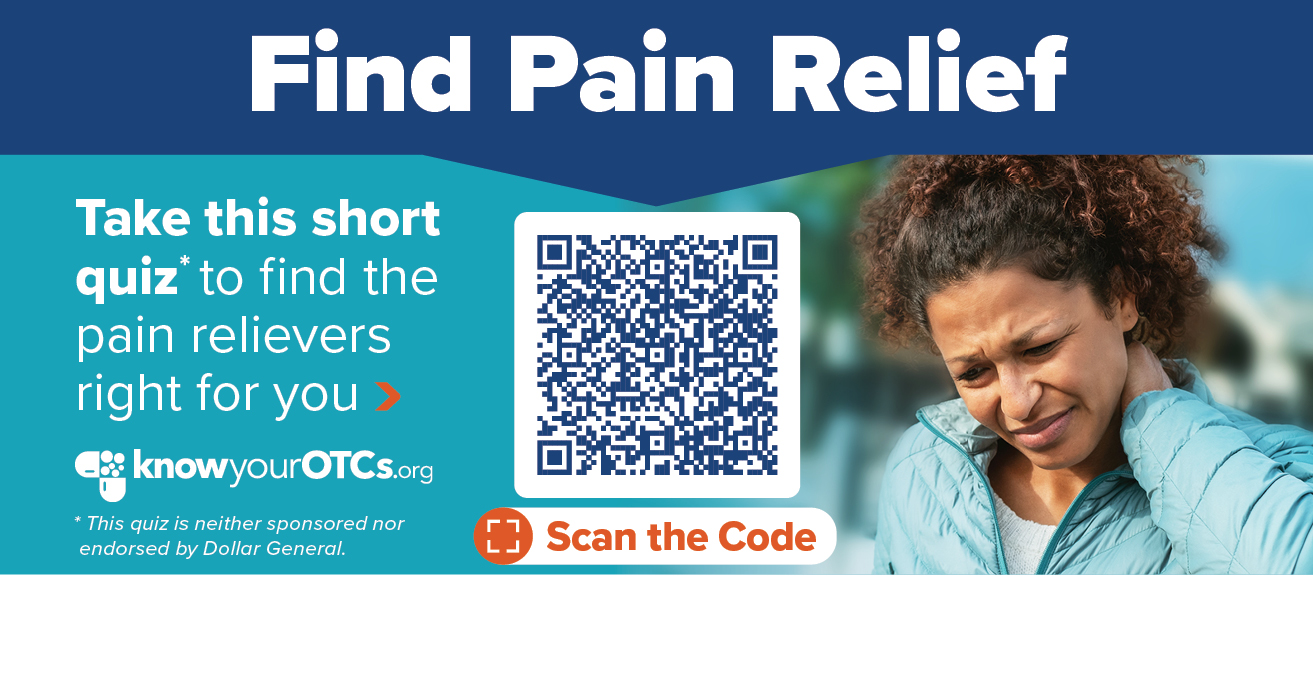
Health is “made” where we live, work, play, pray, learn….and shop. I spend a lot of time these days in the growing health/care ecosystem where retail health is broadening to address social determinants and drivers of health – namely food, transportation, broadband access, education, environment, and financial wellness – all opportunities for self-care and health engagement. For many years, I have followed the activities of CHPA, the Consumer Healthcare Products Association, and have participated in some of their conferences. Their recent announcement of a collaboration with Dollar General speaks to the growing role of self-care for all people.
The Tik Tok’ing of Medical Mis-Information: Doctors’ and Patients’ Roles in Curating Healthy Advice
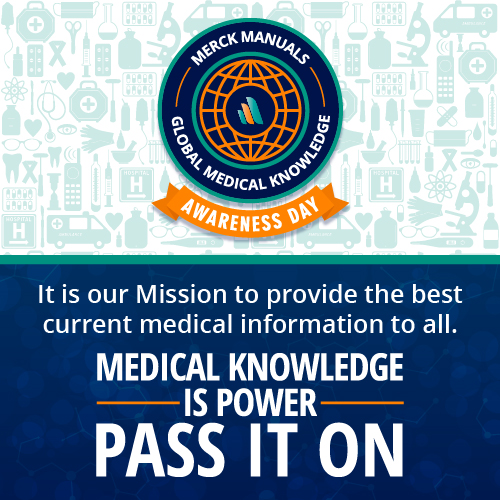
Doctors in the U.S. believe that the medical mis-information problem is worsening, learned in survey research from Merck Manuals. Doctors and patients, both, have roles to play in addressing medical misinformation online. Less than half of consumers, 44%, said that that there is more medical mis-information online than previously. That’s less than half of the percentage of doctors saying so — 98%, virtually all U.S. physicians, citing the problem. There were several disconnects noted in the Merck Manuals study showing starkly different perceptions of health information online between doctors and patients:
In Search of Clinical Effectiveness, But “Investment Exuberance?” Not So Much. Insights From FINN Partners and Galen Growth at HLTH 2022
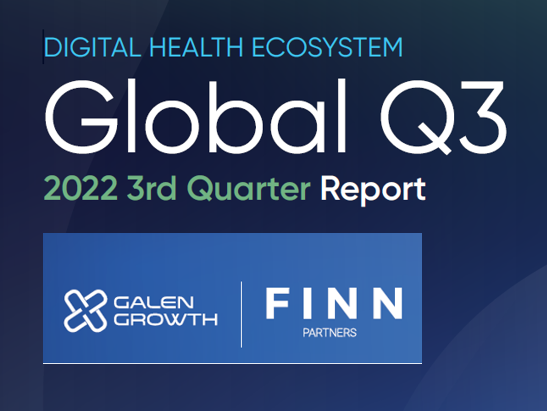
While venture funding for digital health technology declined globally by 35% in the first three quarters of 2022 compared with 2021, this marks a “return to normal” based on the assessment in the Global State of Digital Health Report from FINN Partners and Galen Growth, published today and launched during the HLTH 2022 conference. The report analyzes data from over 12,000 digital health ventures tracked by Galen Growth’s HealthTech Alpha platform. The first chart illustrates the change in venture funding by therapeutic area, showing downturns in four of the five areas called
Black Panther: Wakanda Forever Inspires an NHS Blood Donor Campaign
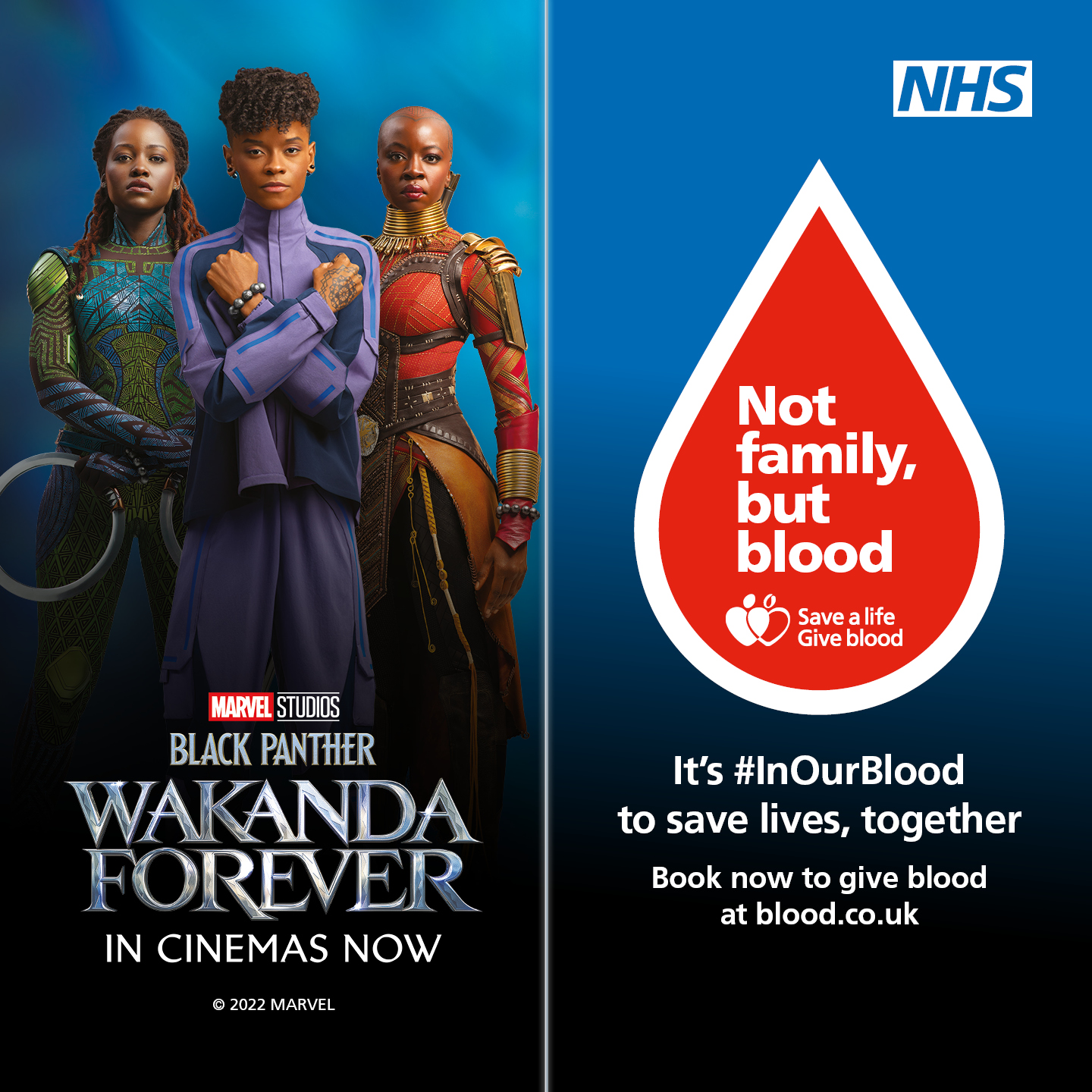
Lately we’ve been talking a lot in THINK-Health’s workflows with clients about trust and health citizenship: how inspiring positive individual health behaviors can initiate a flywheel of public health goodness. The UK’s National Health Service is acting on this concept through a new campaign to inspire people in the Black community to give blood. The NHS is linking the campaign to Marvel’s Black Panther: Wakanda Forever movie launch, which drops in UK cinemas on 11 November. Here’s the NHS video so you can get a sense of the public health message… The call-to-action: It’s #InOurBlood to save lives, together.
Health Is Social, With More People Using Apps for Physical and Emotional Wellbeing
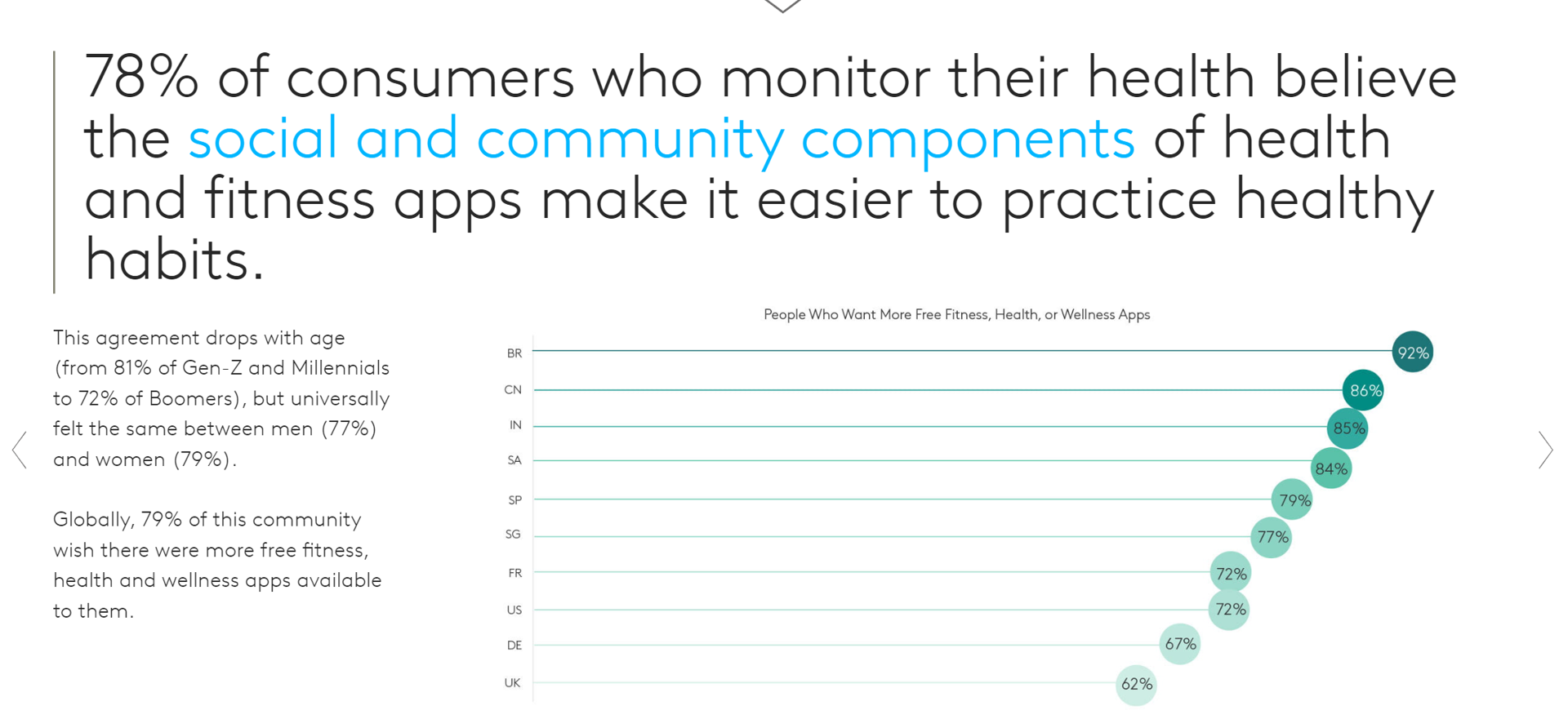
People who need people aren’t just the luckiest people in the world: they derive greater benefits through monitoring their health via apps that make it easier to make healthy choices. Channeling Barbra Streisand here to call out a key finding in new consumer research from Kantar on Connecting with the Health & Wellness Community. Kantar polled 10,000 online consumers in ten countries to gain perspectives on health citizens’ physical and emotional health and the role of technology to bolster (or diminish) well-being. The nations surveyed included Brazil, China, France, Germany, India, Singapore, South Africa, Spain,
Wearable Tech for Health Tracking, Online Dating and Banking: Exploring the “Fluidity” of Peoples’ Data Privacy Views
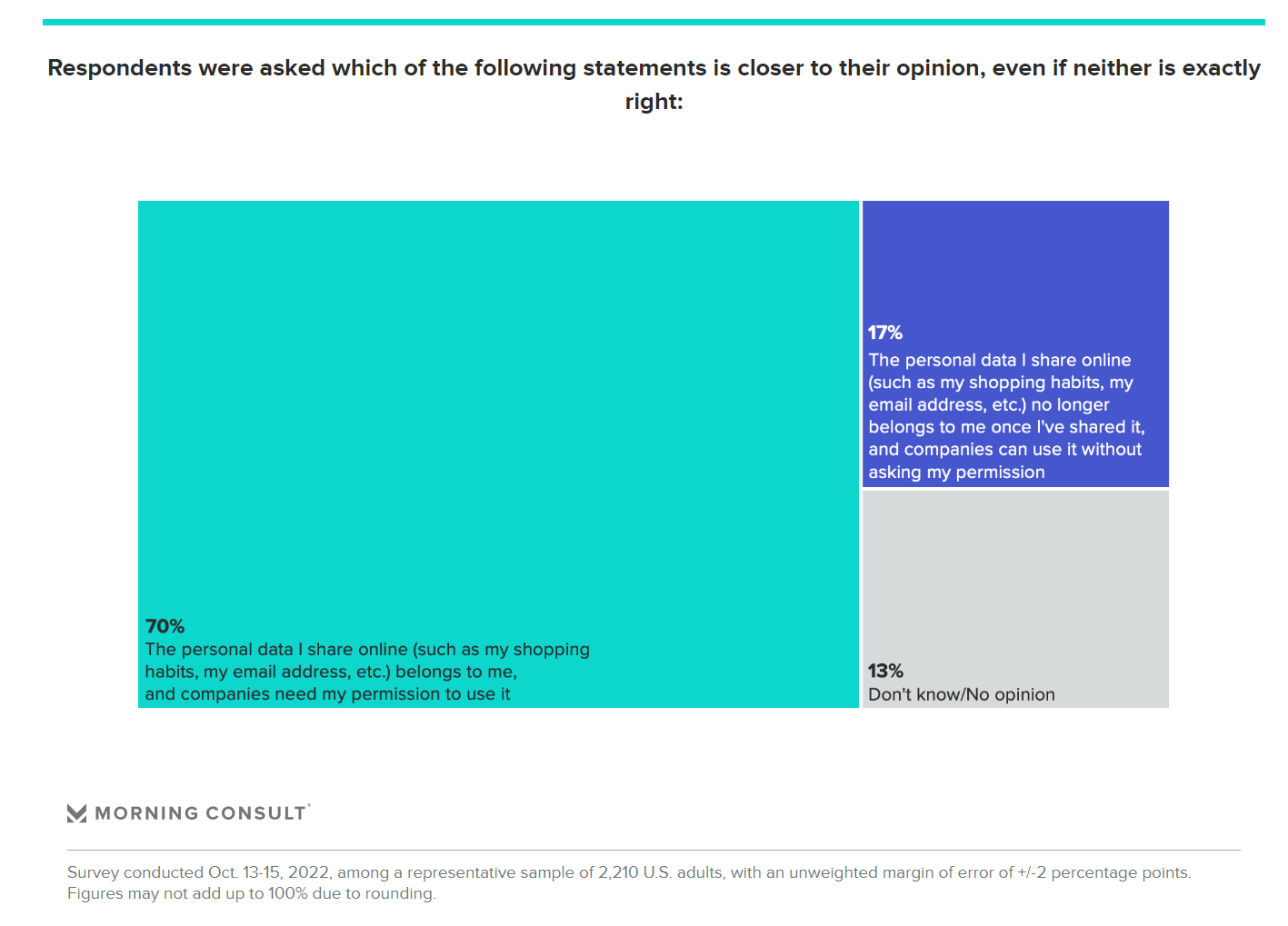
“The security of online data is the top consideration for consumers across many forms of online activities including email, search, social media, banking, shopping and dating”….and using health apps. A new poll from Morning Consult, explained on their website, explains that For Consumers, Data Privacy Has a Fluid Definition. Those privacy nuances and concerns vary by activity, shown in the first chart here from the study. For online banking, the most important consideration among most consumers (55%) is the privacy and security of their online data. Privacy and security of personal data was
It’s Mental Illness Awareness Week: “What I Wish I Had Known” About Mental Health
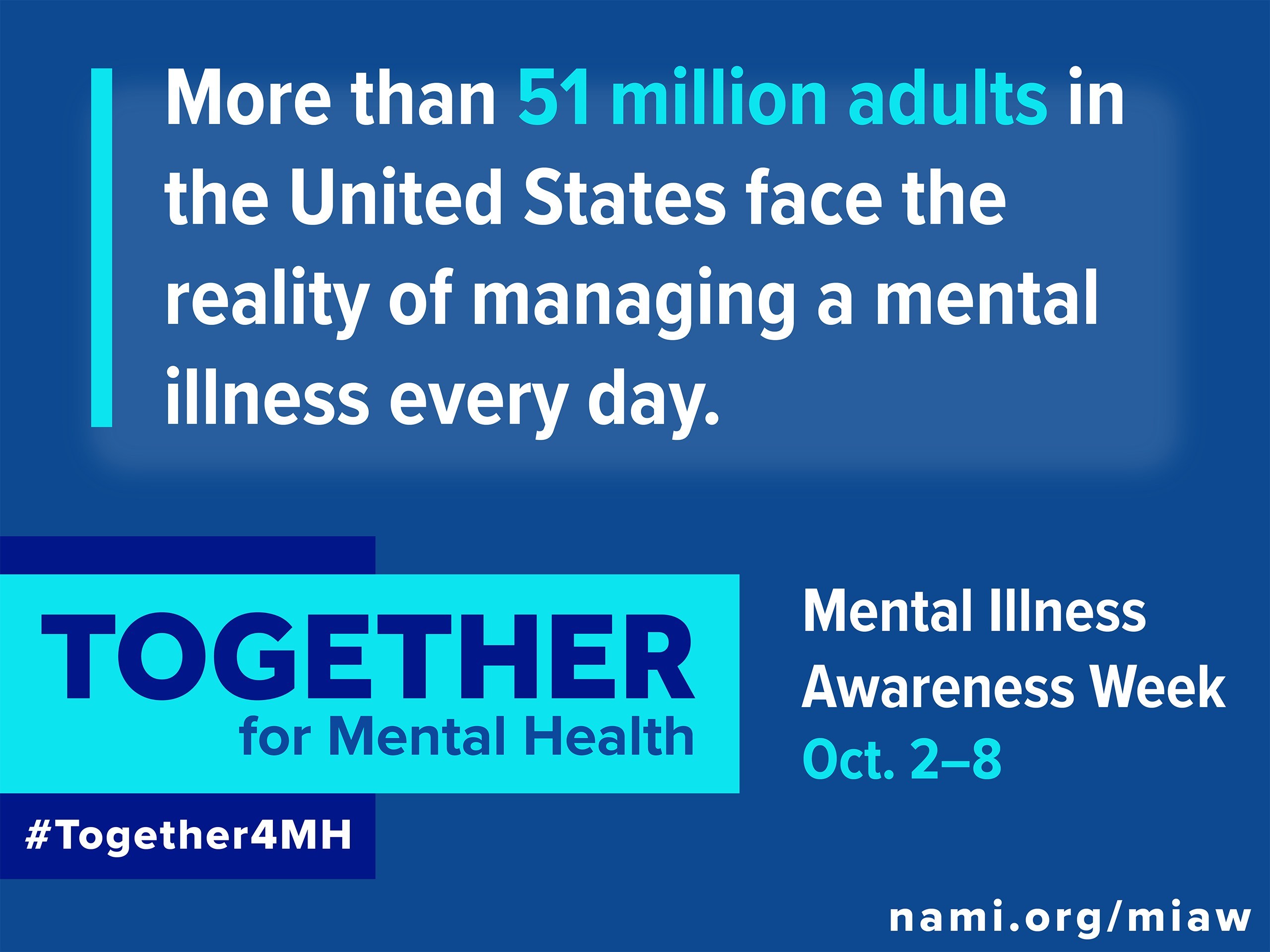
It’s Mental Illness Awareness Week: annually NAMI, the National Alliance on Mental Illness, devotes the first week of October to advocate for people facing managing a mental illness every day and to raise public consciousness on the pervasiveness of mental illness in America. This year, NAMI’s key themes address the over-arching message of “What I wish I had known,” each day looking into: Monday Oct. 3: Stigma Tuesday Oct. 4: Medication [National Day of Prayer for Mental Illness Recovery and Understanding] Wednesday Oct. 5: Therapy Thursday Oct. 6: Disclosing [National Depression Screening Day], and, Friday Oct. 7: Caregiving. To track
Remember the Social Determinants of Health When Prescribing Drugs
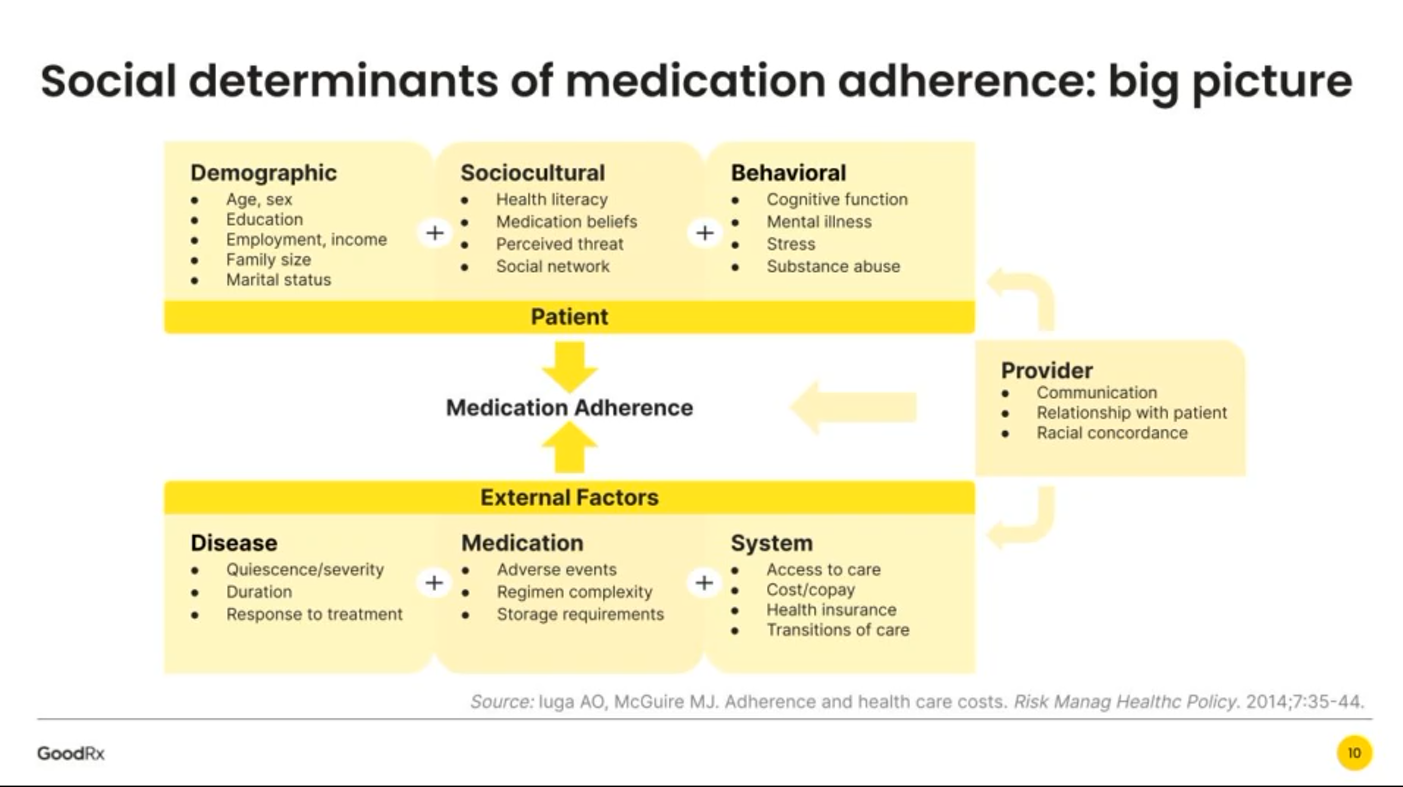
Thinking about the social determinants of prescription drugs, how people take medicines in real life in my latest post in Medecision’s Liberate Health blog. I had one of those special lightbulb moments when listening to Mauricio Gonzalez-Arias, M.D. of NYC Health + Hospitals and Suvida Healthcare discussing medication adherence and what prevents us from taking our meds as prescribed. His discussion on social determinants’ role in shaping our relationship with prescriptions was powerful, and the jumping off point for this essay. Medication adherence is a challenge that fiscally costs the
Consumers’ and the White House’s Growing Focus on Food and Nutrition
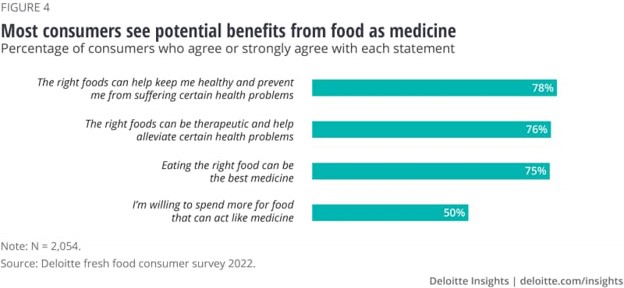
Today, the White House is convening a Conference on Hunger, Nutrition and Health. So it’s a propitious time to weave together some of the latest research and insights into food-as-medicine and a key determinant of health and well-being. This is the first White House conference focused on nutrition and food in over 50 years. The National Strategy was released today, and covers a range of programs that bake health and nutrition into Federal policies going beyond “food” itself: we see various determinants of health embedded into the Strategy, such as supporting physical activity,
Vaccinations, Art and Labor Day: Learning from Diego Rivera and Edsel Ford
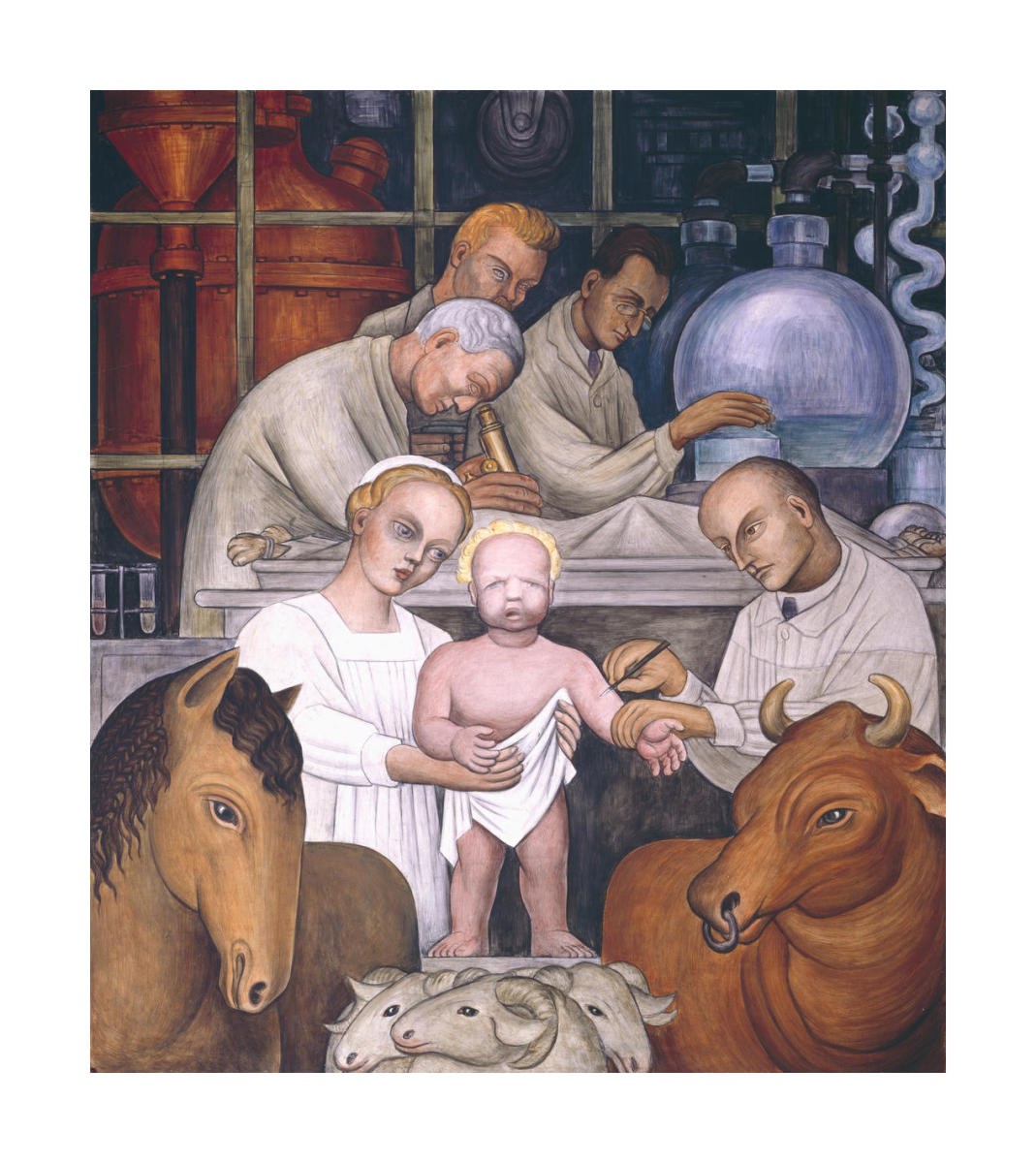
For Labor Day 2022, I’m thinking about health, vaccines, work (especially returning-to-work), and art. Let’s start with the vaccine news. Called the “first updated COVID-19 booster,” on September 1st the CDC announced the availability and approval for health citizens to get new vaccines which have added Omicron BA.4 and BA.5 spike protein components to the original vaccine formulation. The booster shots will be administered using vaccines from Pfizer-BioNTech for people ages 12 years and older, and from Moderna for people ages 18 years and older. Walgreens announced appointment scheduling for the boosters, and CVS Health discussed the plans for the
Life Expectancy Falls in the U.S., the Largest 2-Year Decline in 100 Years
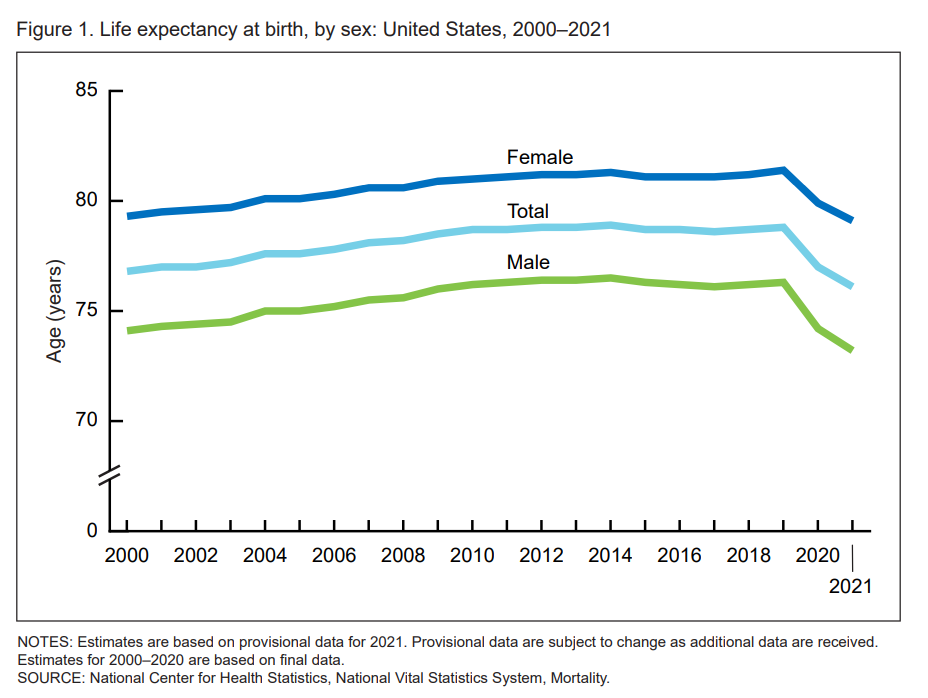
Life expectancy at birth in 2021 in the United States fell to 76.1 years, the lowest level since 1996. Men fared much worse than women, with 73,2 years of life expectancy versus 79.1 years for women, the latest research from the CDC’s National Center for Health Statistics revealed. In their Provisional Life Expectancy Estimates for 2021, the CDC kicks off a demographically detailed analysis with this simple line chart which graphs the dramatic decline in life expectancy at birth. The overall decline across gender and all race/ethnic groups was 2.7 years: 3.1 years
Hacking Health Care, Your Top Health-Tech Summer Read
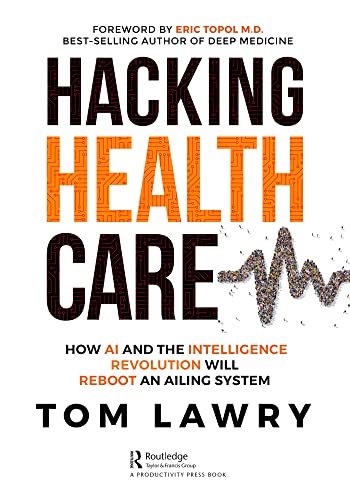
“Tom Lawry reminds us that the health care industry can shift from glacial to warp speed when it needs to. Given the right tools, we can evolve from health systems to systems of health, baked with Responsible Intelligence to do good while embedded with respect, inclusion, and transparency. Health citizens deserve Tom’s vision to emerge,” I wrote in a quote on the back of Tom’s new book, Hacking Health Care: How AI and the Intelligence Revolution Will Reboot an Ailing System. Tom knows whereof he speaks and writes and opines: he has
Climate Change Is Not Good for Health and Living Things
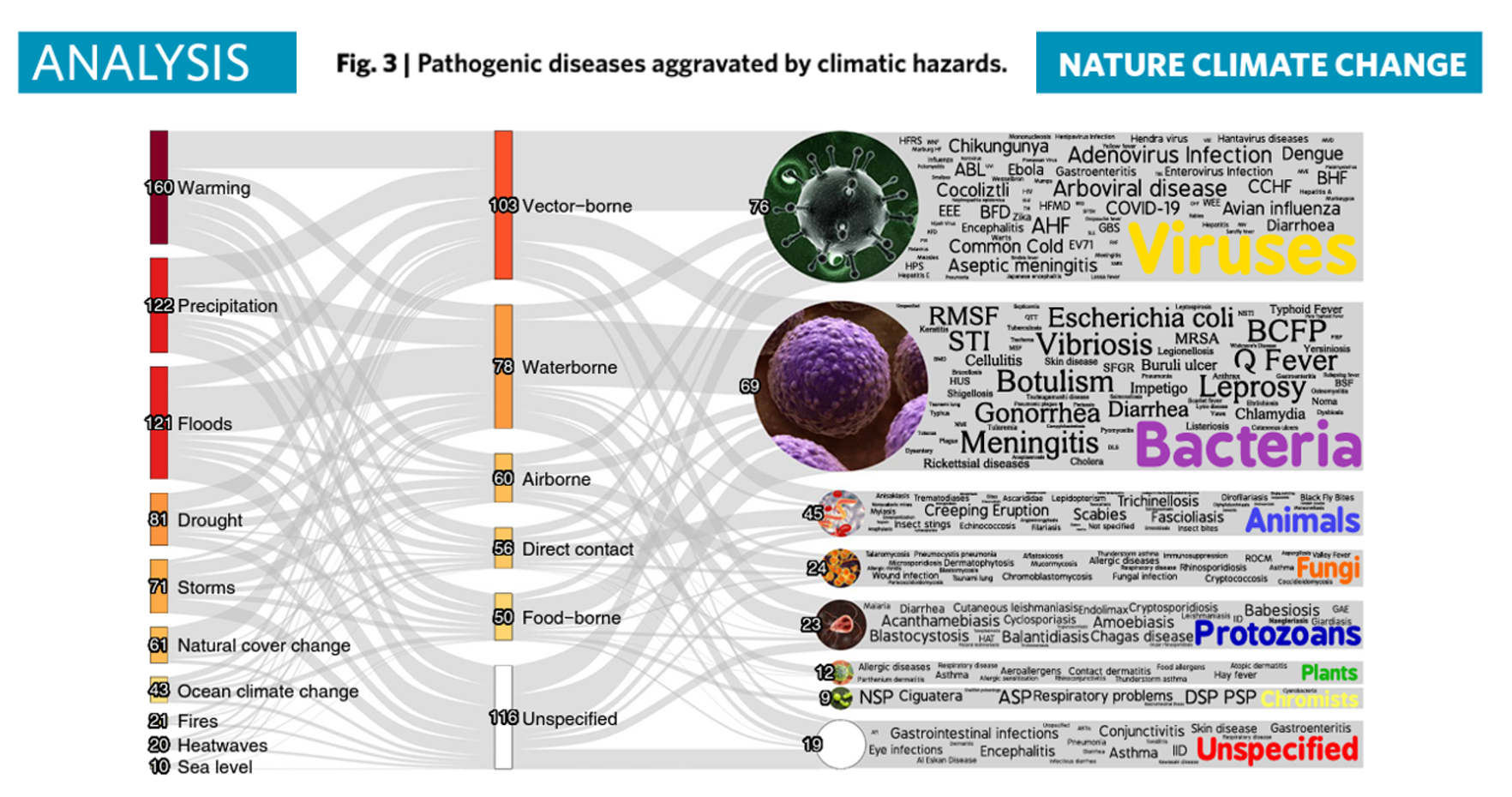
There is an image from my childhood, drawn by Lorraine Schneider, which reads “War is not healthy for children and other living things.” As I read through a paper published this week on climate change’s contribution to the burden of chronic disease, I couldn’t help but conjure up Lorraine’s observation from my little girl memory bank. One of the largest meta-analyses mashing up research evidence on the impact of climate change on human health was featured in the journal Nature Climate Change this week. Lorraine could replace the word “war” with “climate change” and be clinically sound in the eyes
Health, Politics, Inflation and Women: Health Engagement at the Voting Booth
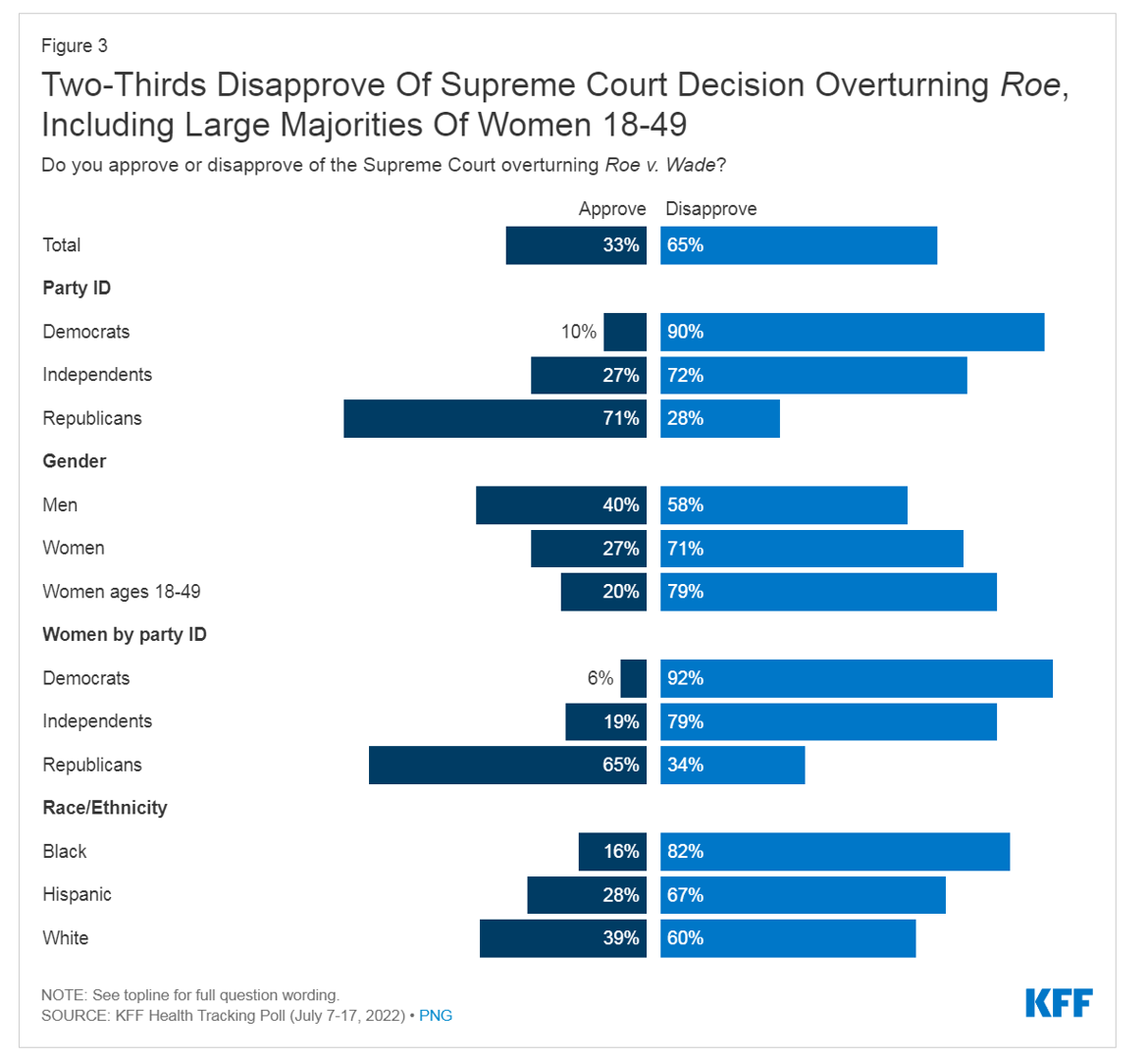
Two in three Americans disapproved of the Supreme Court’s decision to overturn the Roe v. Wade decision (aka the Dobbs case), the latest Kaiser Family Foundation Health Tracking Poll found. While inflation tops voters’ priorities, abortion access resonates for key voting blocs. KFF conducted this survey among 1,847 U.S. adults 18 and over between July 7 and 17, 2022. KFF published the study findings this week on August 2, a day of political primaries and ballot considerations in several U.S. states. Consider Kansas: a majority of Kansans voted on Tuesday to protect abortion rights
The Retail Health Battle Royale in the U.S. – A Week-Long Brainstorm, Day 3 of 5 – Apple as “Intelligent Health Guardian”
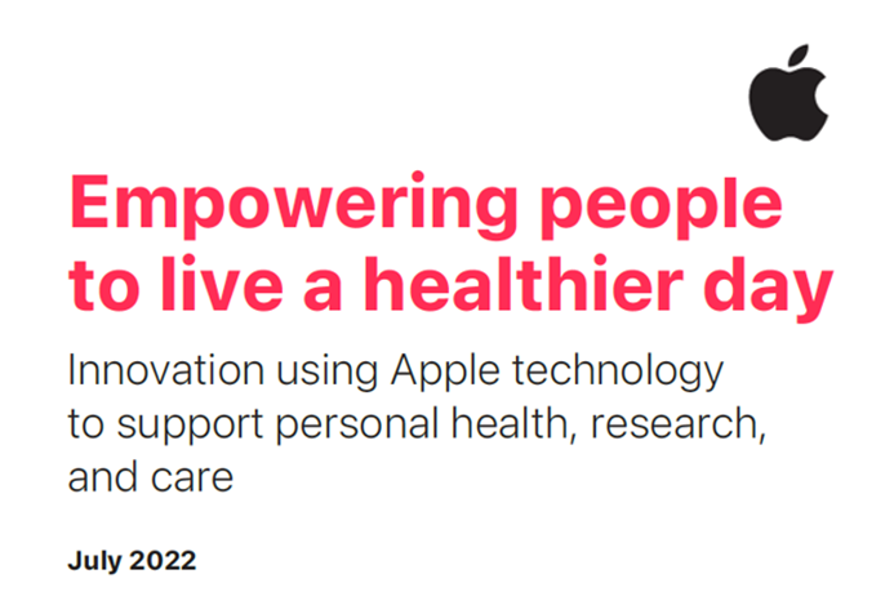
Apple wants to be your “intelligent guardian for health,” based on a 60-page paper shepherded by Jeff Williams, the company’s Chief Operating Officer. Published last week, the paper is one of the big signals trumpeted this U.S. summer marked by the BA.5 omicron subvariant of SARS-CoV-2, inflation pressures on our household budgets, social/political tensions, and hot-hot weather. I’m folding the report into my coverage this week on the Retail Health Battle Royale today, Day 3 of my week-long series updating us on the health/care ecosystem. For the previous two days’ posts, see… Day 1
The Old Gays Working with Walgreens on TikTok: Breaking Down Stereotypes and Having Fun with Health

How much do I love this media campaign from Walgreens, collaborating with the foursome The Old Gays who have a growing multi-million person fan base on TikTok? How much? A whole lot! Kudos to Walgreens for creating engaging, informative, and fun! content to learn about how people can benefit from using the company’s app ….for, Ordering prescriptions (90-day supply) Receiving delivery same-day 24/7 pharmacy chat on pricing, prescription drug information, and medications. The plotline kicks off with 3 of the 4 quartet (Jessay Martin, Robert Reeves and Mick Peterson) looking for their friend Bill Lyons, who is missing from their
Your State as a Determinant of Health: Sharecare’s 2021 Community Well-Being Index
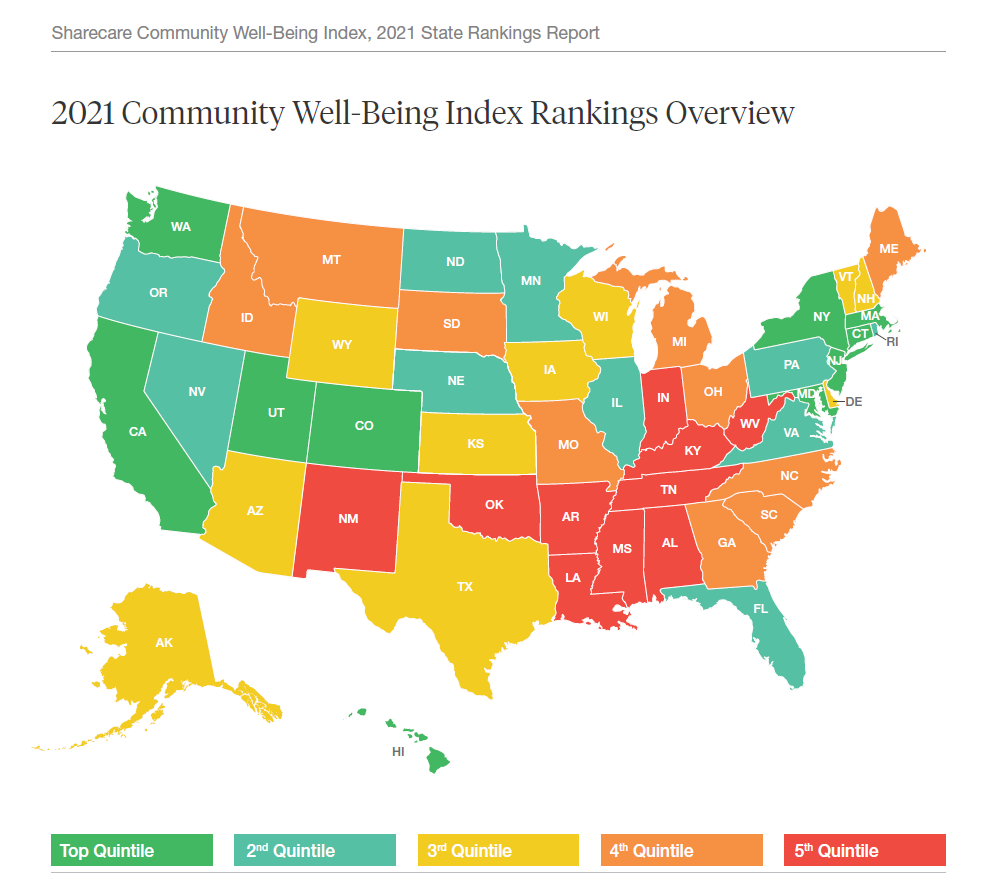
People whose sense of well-being shifted positively in the past two years are finding greater personal purpose and financial health, we see in Sharecare’s Community Well-Being Index – 2021 State Rankings Report. Sharecare has been annually tracking well-being across the 50 U.S. states since 2008. When the study launched, Well-Being Index evaluated five domains: physical, social, community, purpose, and financial. In 2020, Sharecare began a collaboration with the Boston University School of Public Health to expand the Index, including drivers of health such as, Healthcare access (like physician supply per 1,000
Money and Guns Are the Top Two Sources of Anxiety in America This Summer
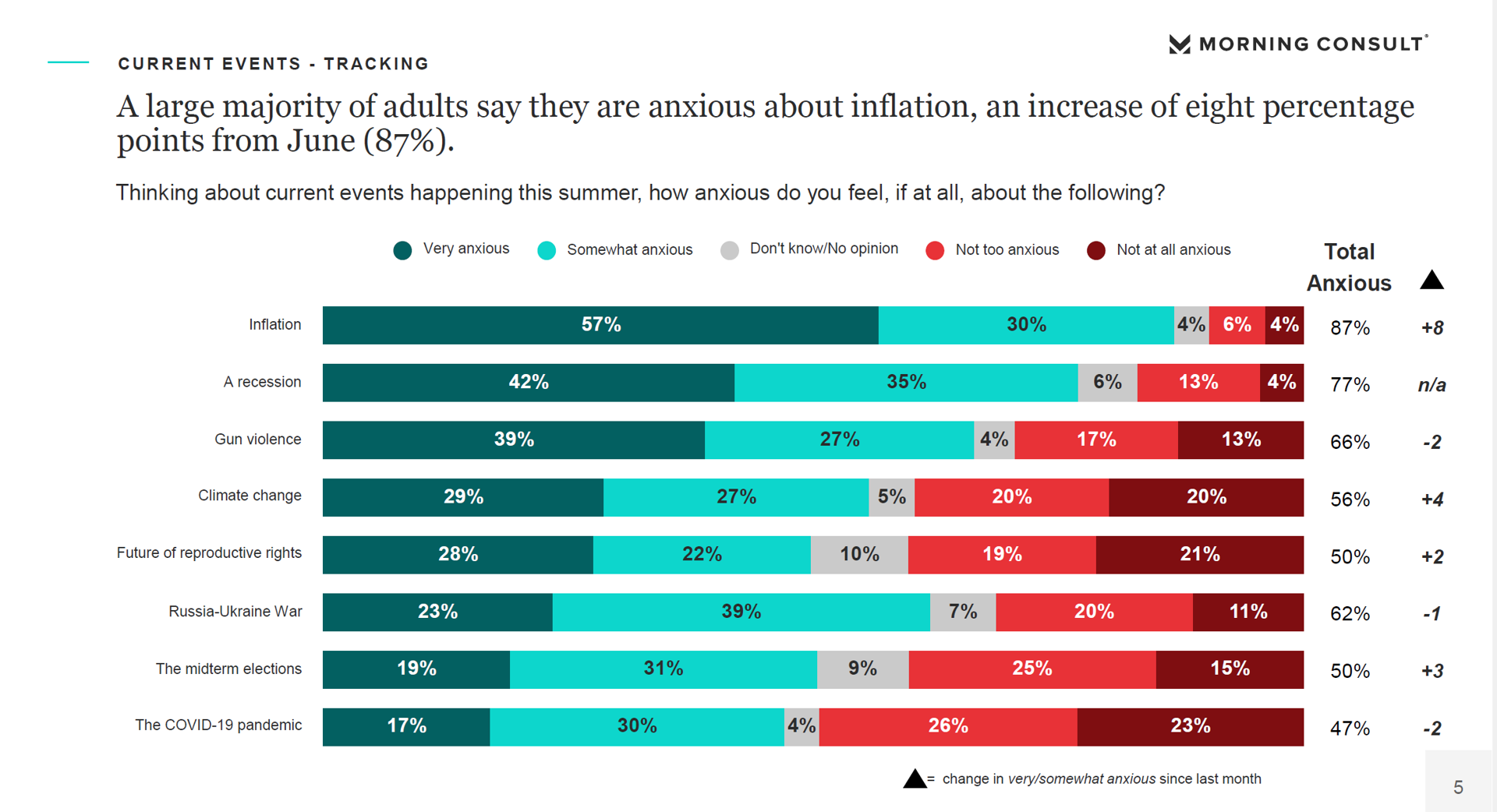
Inflation and the fear of economic recession were the top two causes of anxiety in America, followed by gun violence, in June 2022. Moms and Hispanic adults, in particular, were worried about losing income and of gun violence, discovered in the Healthy Minds Monthly Poll for July 2022 from the American Psychiatric Association (APA) and Morning Consult. For some context about these findings, note that this survey was fielded between June 18 and 20, 2022; that was, 24 days after the Robb Elementary School shooting in Uvalde, Texas Four days before the Supreme Court
Living La Vida Hybrid, for Work, Shopping, Entertainment and Healthcare – Emerging from the Pandemic
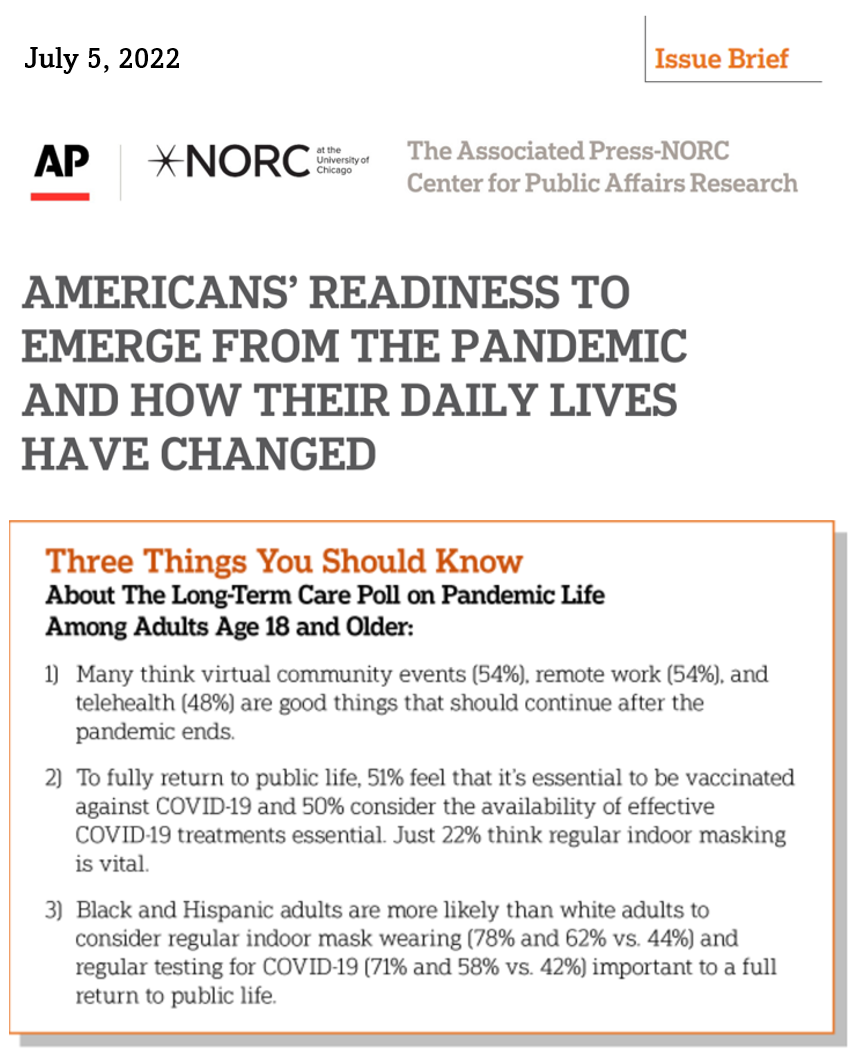
With only 1 in 10 people in the U.S. thinking their lives are the same as they were before the COVID-19 pandemic, about one-half of Americans believe that remote work, virtual community events, and telehealth should continue “once the pandemic ends.” As of mid-May 2022, most people in the U.S. have resumed activities like socializing with friends and neighbors in person, going to restaurants and bars, traveling, meeting with older relatives face-to-face, and returning to exercising in gyms. But a return-to-nearly-normal isn’t a universal phenomenon across all people in America:
More Americans Trust Small Biz and the Military than the Medical System, Gallup Finds
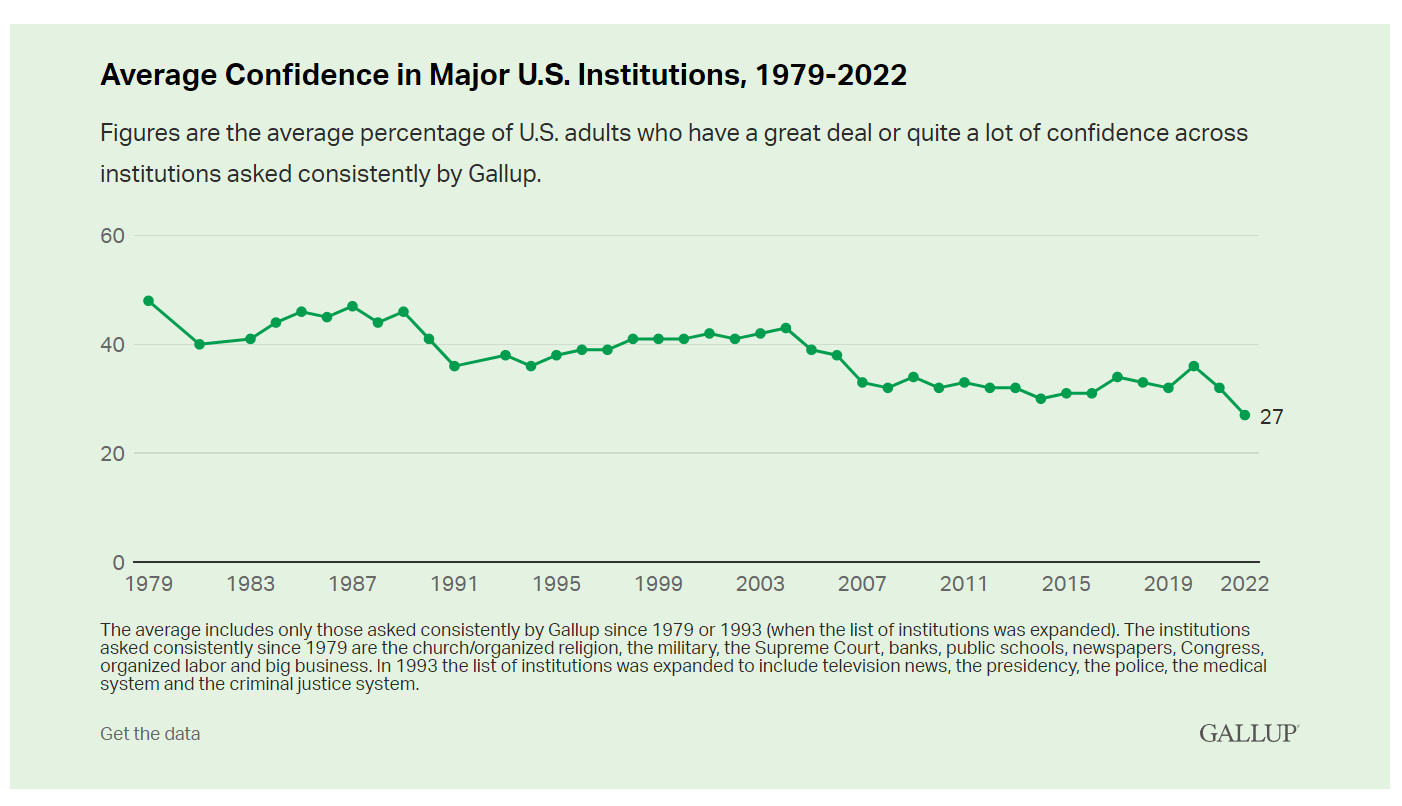
The most trusted institutions in the U.S. are small business and the military, the only two sectors in which a majority of Americans have confidence. Americans’ trust in institutions hit new historic lows in 2022, Gallup found in its latest poll of U.S. sentiment across all major sectors. Today, more Americans have faith in the police than in the medical system, according to a Gallup poll finding that Confidence in U.S. Institutions Down; Average at New Low. published this week of Independence Day 2022. Confidence runs from a higher of 68% for
Consumers’ Dilemma: Health and Wealth, Smartwatches and Transparency
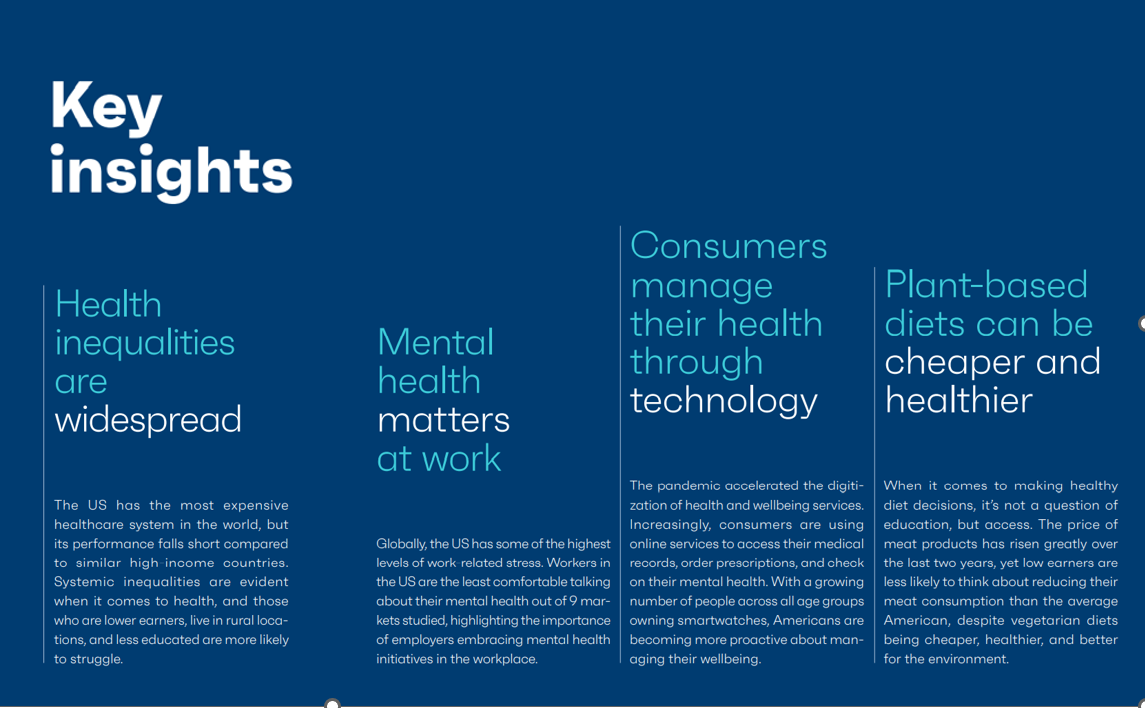
Even as spending on healthcare per person in the United States is twice as much as other wealthy countries in the world, Americans’ health status ranks rock bottom versus those other rich nations. The U.S. health system continues to be marred by health inequalities and access challenges for man health citizens. Furthermore, American workers’ rank top in the world for feeling burnout from and overworked on the job. Welcome to The Consumer Dilemma: Health and Wellness,, a report from GWI based on the firm’s ongoing consumer research on peoples’ perspectives in the wake of
Use of Preventive Health Services Declined Among Commercially Insured People – With Big Differences in Telehealth for Non-White People, Castlight Finds
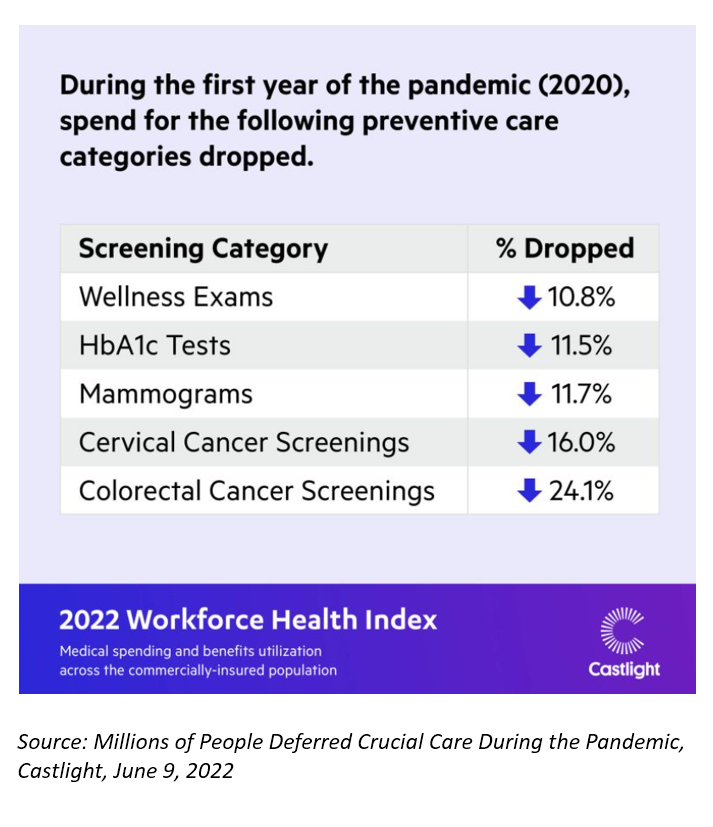
Declines in preventive care services like cancer screenings and blood glucose testing concern employers, whose continued to cover health insurance for employees during the pandemic. “As we enter the third year of the COVID-19 pandemic, employers continue to battle escalating clinical issues, including delayed care for chronic conditions, postponed preventive screenings, and the exponential increase in demand for behavioral health services,” the Chief Medical Officer for Castlight Health notes in an analysis of medical claims titled Millions of People Deferred Crucial Care During the Pandemic, published in June. The
The 2022 US Health System Report Card: Pretty Terrific If You Live in Hawaii or Massachusetts
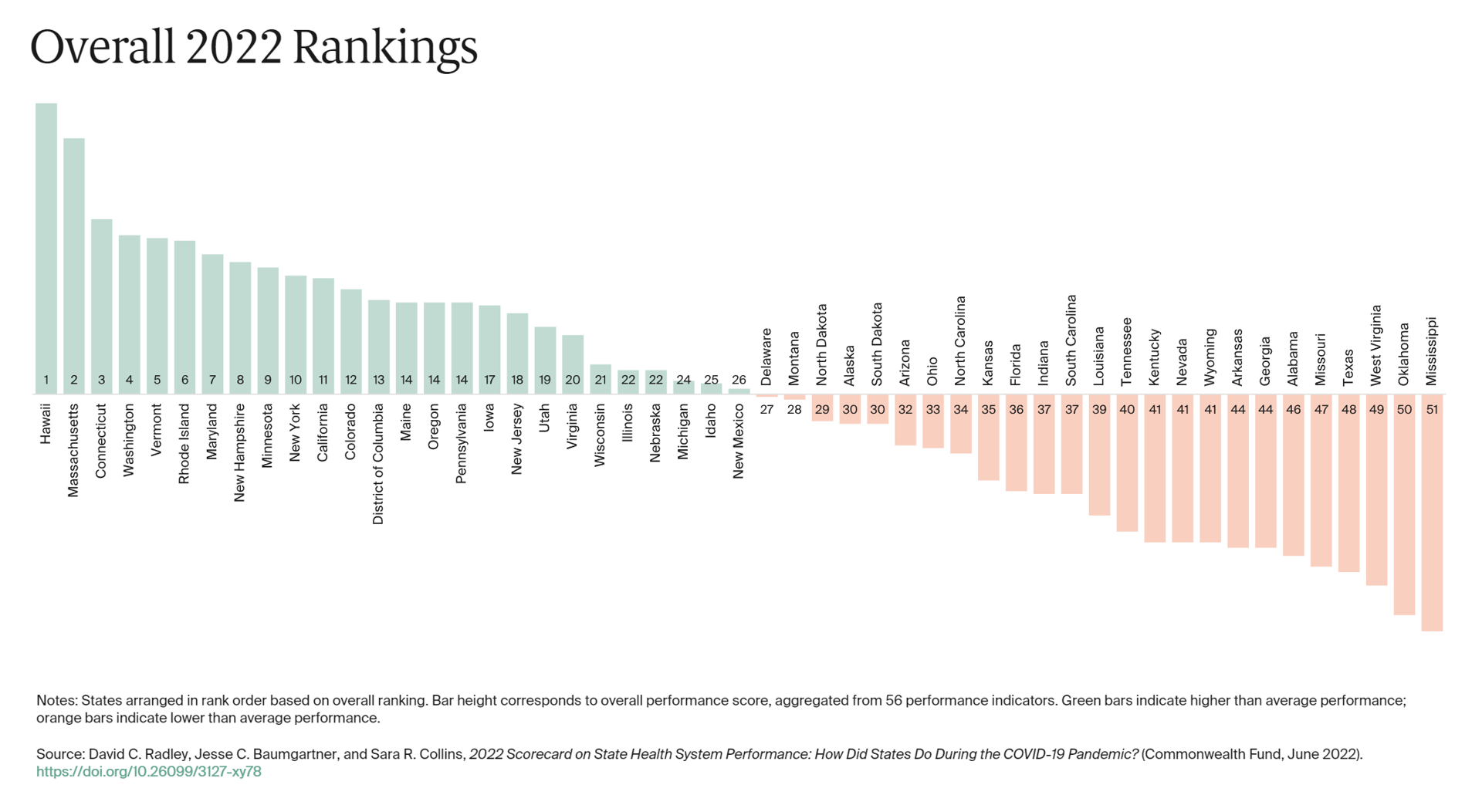
The best U.S. states to live in for health and health care are Hawaii, Massachusetts, Connecticut, Washington, Vermont, Rhode Island, and Maryland… Those are the top health system rankings in the new 2022 Scorecard on State Health System Performance annual report from the Commonwealth Fund. If you live in Mississippi, Oklahoma, West Virginia, Texas, Missouri, Alabama, Georgia, or Arkansas, your health care and outcomes are less likely to be top-notch, the Fund’s research concluded. The Commonwealth Fund has conducted this study since 2006, assessing a range
Consumers Intend to Invest in Technology — With Budget and Value in Mind
Consumers continued to invest in and use several technologies that supported self-care at home in 2021, with plans to purchase connected health devices, sports and fitness equipment in the next year. But these purchases will be made with greater attention to budget and value consumer mindsets firmly focused on (and stressed by) inflation. The 24th Annual Technology Ownership & Market Potential Study from the Consumer Technology Association (CTA) tells us that Americans in 2022 will have to manage challenging economic headwinds, shopping for technology is preparing people for their new normal —
Healthcare access, racial disparities, guns and climate – U.S. doctors are worried about some big social issues
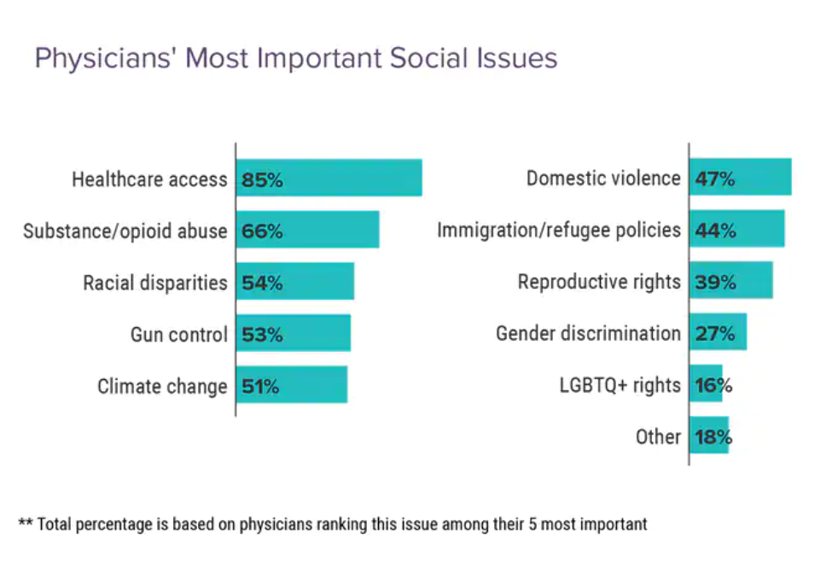
Doctors heads and hearts are jammed with concerns beyond curing patients’ medical conditions: U.S. physicians are worried about big social issues, according to a Medscape survey report, Physicians’ Views on Today’s Divisive Social Issues 2022. Topping physicians’ list of their top-five most important social issues, far above all others ranked healthcare access. Underneath that top-line statistic, it’s important to note that: 52% of doctors are “very concerned” about healthcare access, 28% are “concerned,” and 13% are “somewhat concerned.” Medscape underscores that in 2020, 31 million U.S. residents had no health insurance coverage, and
Social Determinants of Health Risks Challenge the Promise of Hospital-to-Home
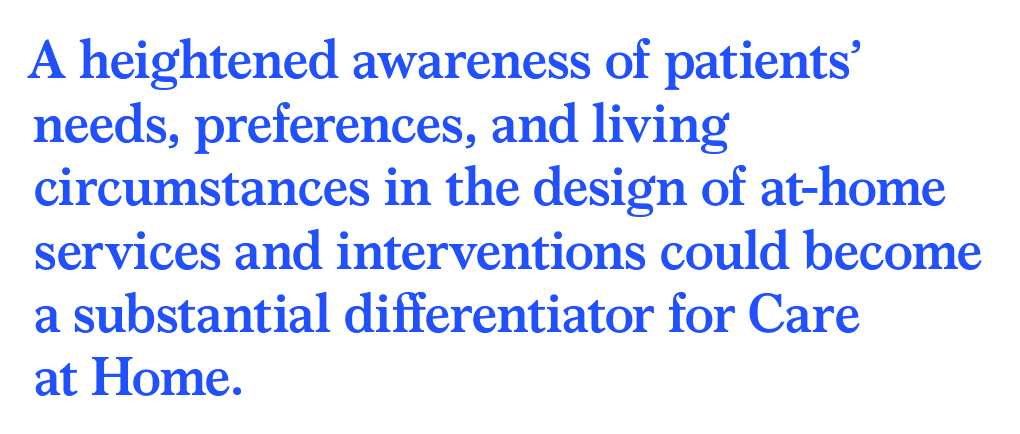
In the wake of the pandemic and growing consumer preferences, the hospital-to-home movement is gaining traction among health systems. Amidst bullish forecasts for the promise of hospital-to-home discharges, the ability for many patients to make this migration would be a difficult bridge to cross. On the promising front, recent studies reviewed through a meta-analysis published in JAMA found that hospital-to-home programs can be clinically and cost-effective for inpatients discharged from hospital. Earlier this year, McKinsey addressed how “Care at Home” ecosystems can reshape the way health systems — and people — envision patient care. This
Mental Health Risks in Mid-2022 Related More to Global Anxieties and Safety, Not-So-Much COVID
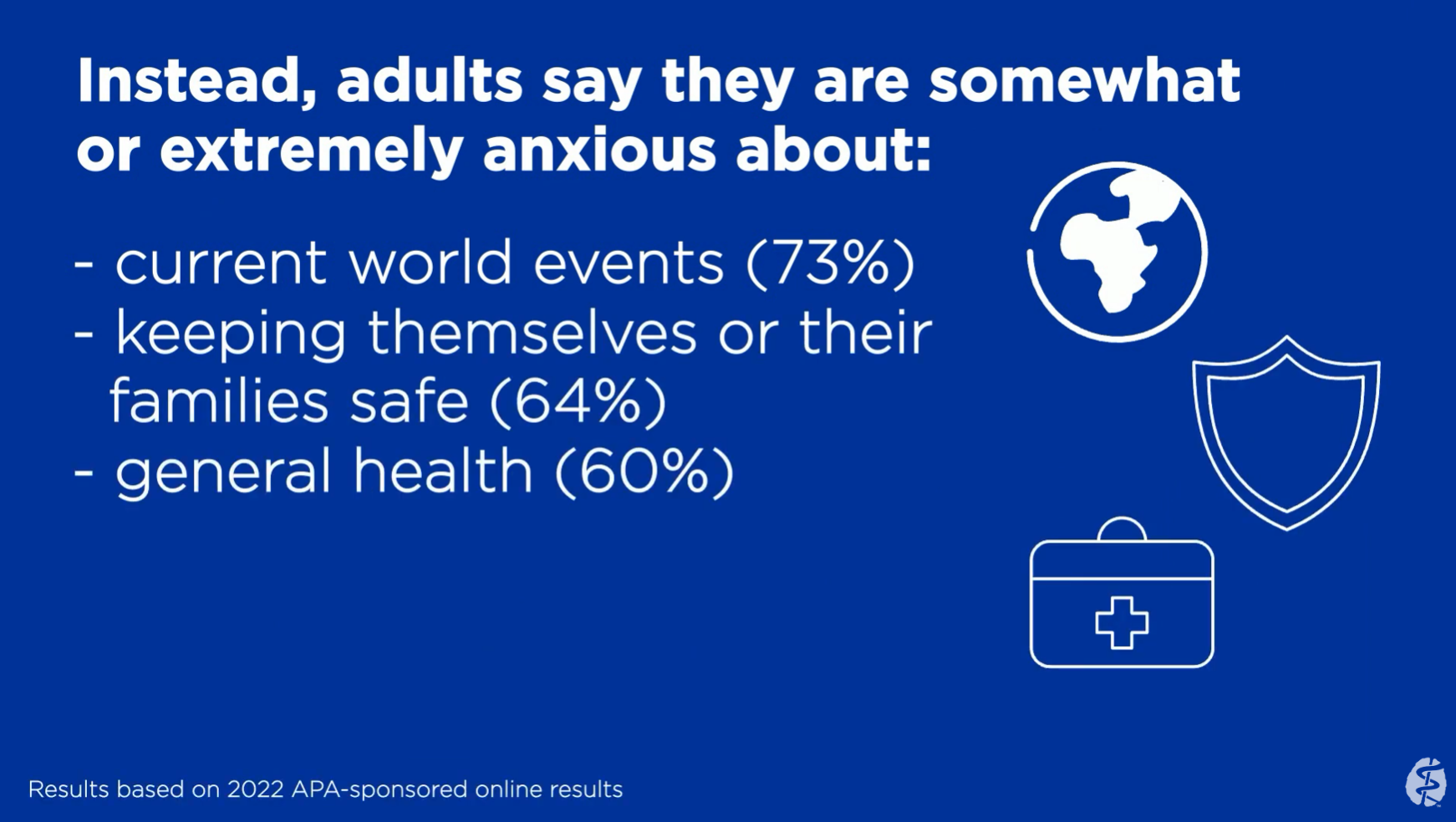
With peoples’ anxiety about COVID-19 at its lowest point since 2020, folks are most anxious in spring 2022 about current global events and the safety of their families, based on the latest Healthy Minds study from the American Psychiatric Association (APA). Morning Consult conducted the poll for the APA in March and April 2022 among 2,210 U.S. adults. The survey covered peoples’ perspectives on mental health care, anxiety, COVID-19, children’s mental health, and the workplace. The results were published May 22, 2022. The key findings of the study were that, 3 in 4 people are
How Trust and Geopolitics Will Impact Health and Business – Edelman 2022 Trust Barometer at the World Economic Forum in Davos
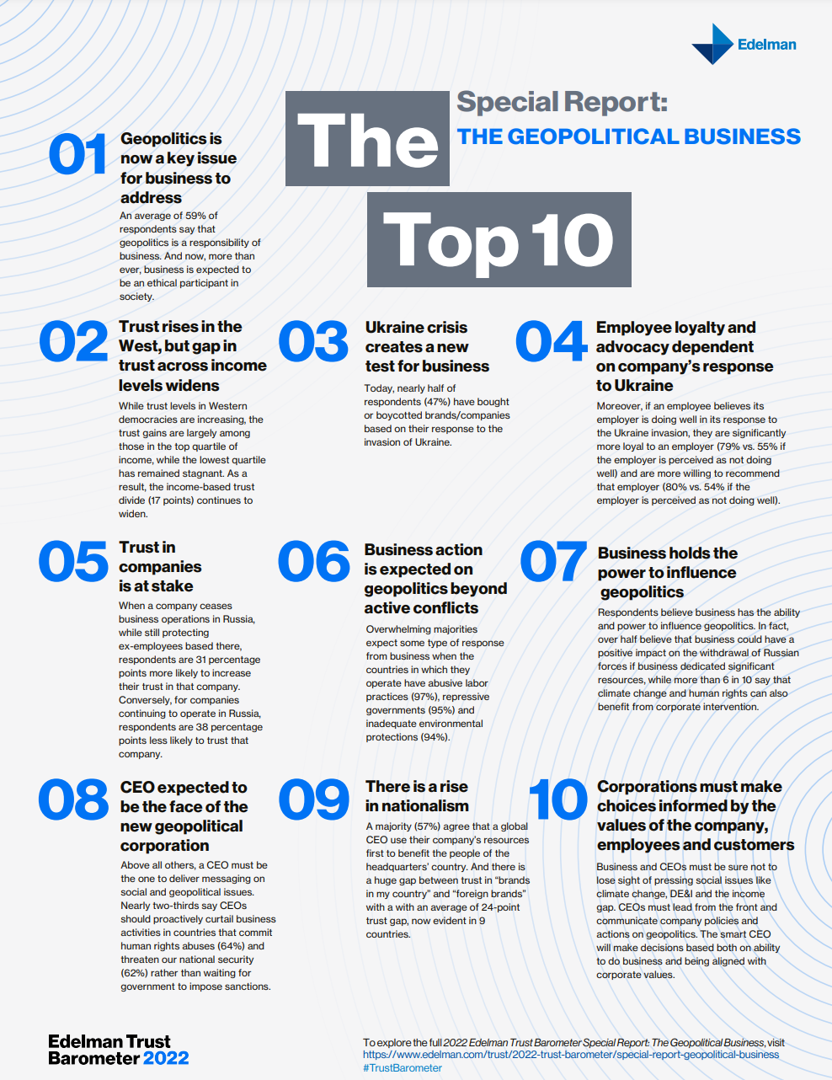
When we think about the state of Trust in in mid-2022, there is some good news: Trust is rising (at least in democratic countries, while falling in autocratic ones). The bad news: the gap in Trust has dramatically widened between higher-income people compared with those earning lower-incomes, globally. And that gap is “tinder” that can be quickly sparked into a socio-political fire in countries around the world, Richard Edelman cautioned today when introducing the latest look at the 2022 Edelman Trust Barometer, focusing on geopolitics and business. We have never seen numbers like this
Stress Is Playing A Big Role in Consumers’ Food Habits: Food-As-Medicine Update from IFIC
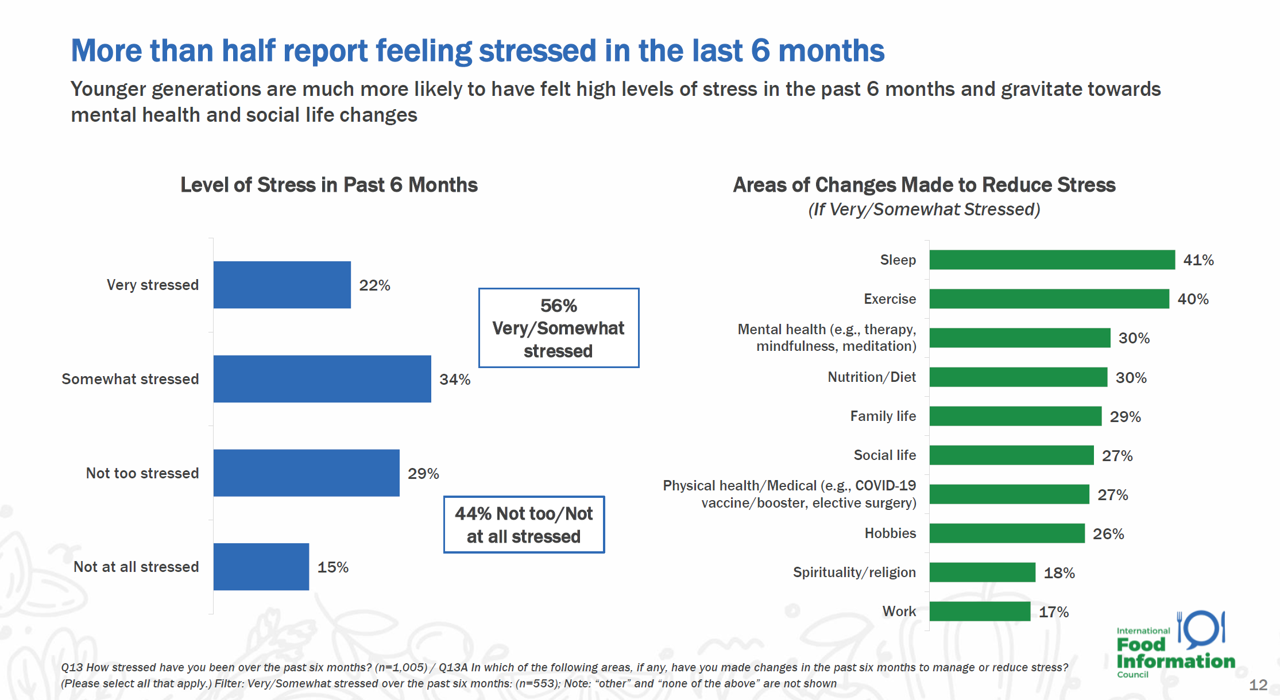
The COVID-19 pandemic accelerated consumers, globally, to take on more DIY roles as well as self-care for health and well-being. In addition, anxiety and stress are mainstream across demographics and have impacted the way people select and consume food, based on findings in the 2022 Food and Health Survey from the International Food Information Council (IFIC). In this 17th annual consumer survey, IFIC points to two underlying macro trends that are re-shaping peoples’ relationship with food and health: the pandemic’s impact, and “significant” generational shifts in taste, consumption, and values about nutrition and sustainability.
Health is Our Most Important Relationship: Inconvenient Truths from MRM/McCann Truth Central

We’ve hit a great “healthcare trust” recession around the world, translating into lower multiple points of medical ‘facts’ and pseudoscience, lower adherence to therapeutic regimens, and clinician burnout that has compromised medicine as the team sport it ideally should be. And that’s just one of five inconvenient truths unearthed in The Truth About Our Relationships with Health, the first in a series of papers that MRM is developing to, in their words, “look at the truths pr7eventing us from achieving a better relationship with our own health and with those along our health journey.” This report from MRM analyzes research
Three in Five People 50+ in the US Will Likely Use Telehealth In the Future – An Update from AARP
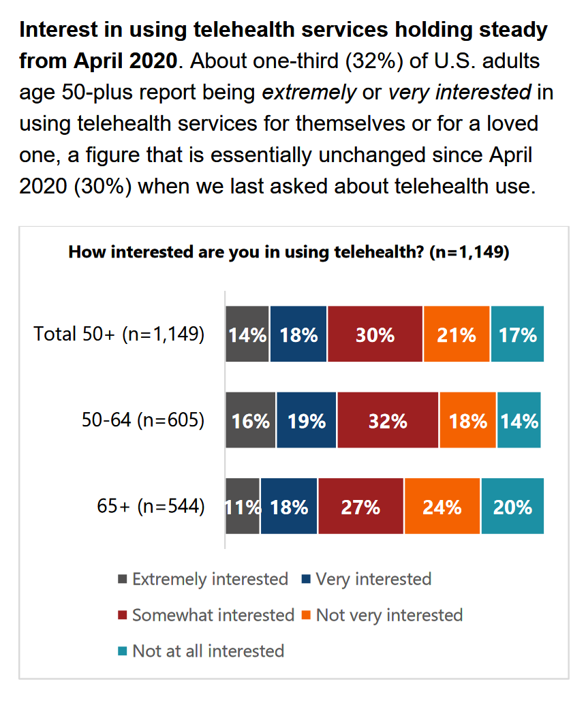
“Telehealth certainly appears to be here to stay,” the AARP forecasts in An Updated Look at Telehealth Use Among U.S. Adults 50-Plus from AARP. Two years after the emergence of the COVID-19 pandemic, one-half of U.S. adults over 50 said they or someone in their family had used telehealth. In early 2022, over half of those over 50 (the AARP core membership base) told the Association they would likely use telehealth in the future. This future expectation varies by race, the implications of which I discuss below in
How Health Gets Built – The Building H Index Thinking Health-By-Design
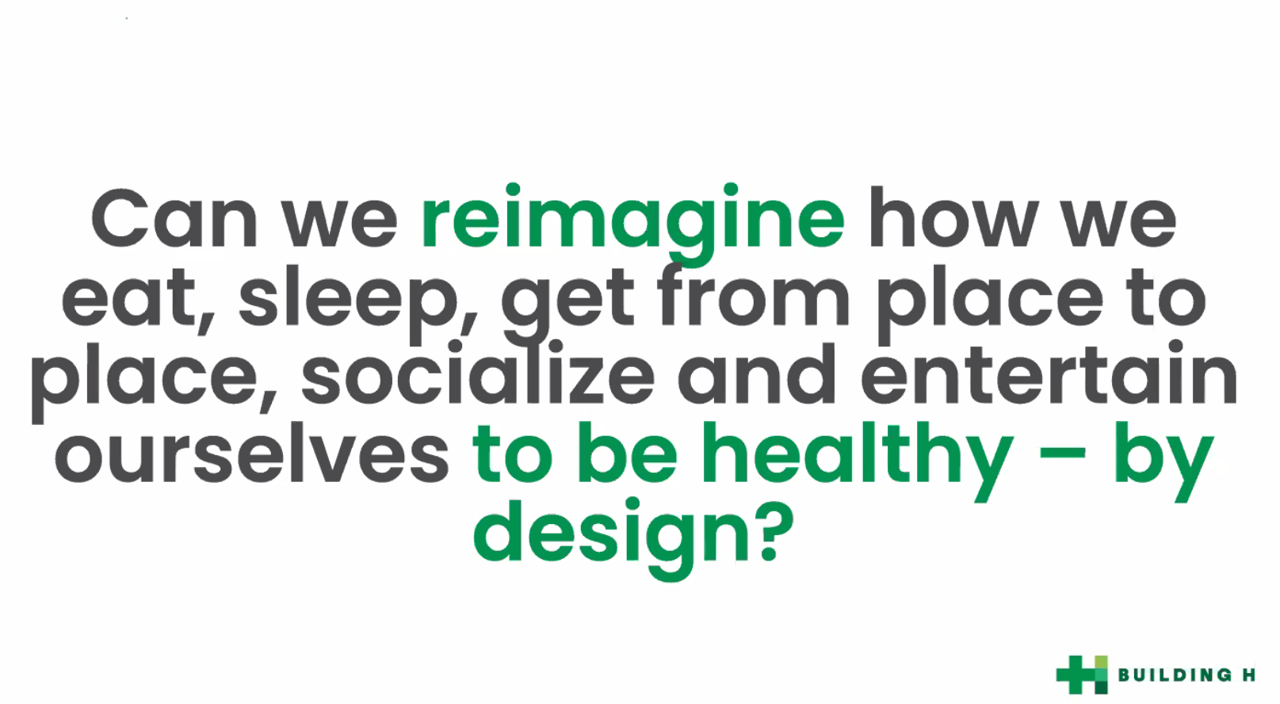
“It’s hard to be healthy in the U.S. today.” That is the underlying premise and reason for The Building H Index. Health happens outside of doctors’ offices and hospital operating rooms. Health is made in our homes, in our communities, in our daily lives as we go about working, playing, learning, and praying. Too often, in those daily life-flows, making a healthy decision is harder than defaulting to a less-healthy one. Sometimes, it’s pretty impossible given the state of, say, air quality that we breathe, lack of fresh produce and whole foods at the corner market, or seductively designed automobiles
Health Care and ESG on Earth Day 2022
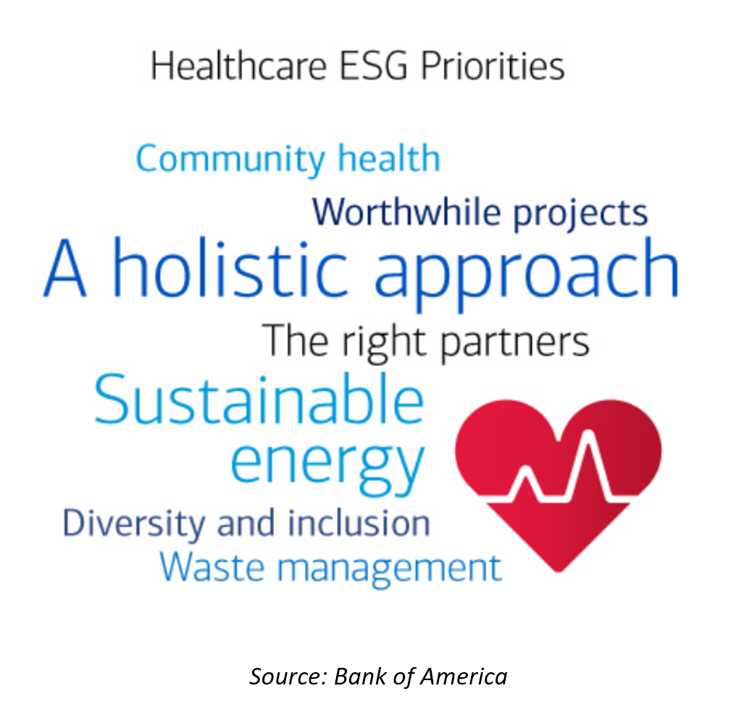
As health care industry stakeholders and policymakers have begun to recognize and address the underlying drivers of peoples’ health, there’s another acronym that is taking hold in health care beyond SDoH: that is ESG, standing for Environment Social, and Governance pillars of responsibility and activity. To mark this Earth Day 2022, I’ve written a brief primer on ESG for the health care community published today in the Medecision Liberate Health blog. Here in Health Populi, I’ll give you a few highlights with graphics you won’t see in that essay to illustrate some key
The Color of Care – Oprah and The Smithsonian Channel Partner on Health Equity
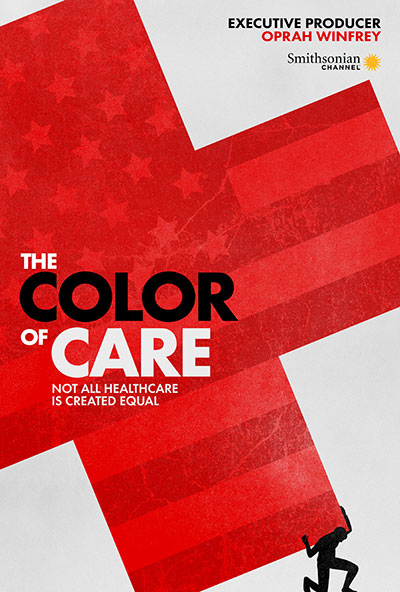
A new documentary and educational campaign on health equity will be launched on May 1st, 2022, from Oprah’s Harpo Productions studio partnering with The Smithsonian Channel. The Color of Care documents stories of people who have lost loved ones in the COVID-19 pandemic as well as expert interviews with frontline workers and public health experts and researchers sharing data on systemic racism in health care that has underpinned racial health disparities since slavery was instituted in America. Oprah’s website talked about the project, quoting her saying, “At the height of the pandemic, I read something that stopped me in
How Business Can Bolster Determinants of Health: The Marmot Review for Industry
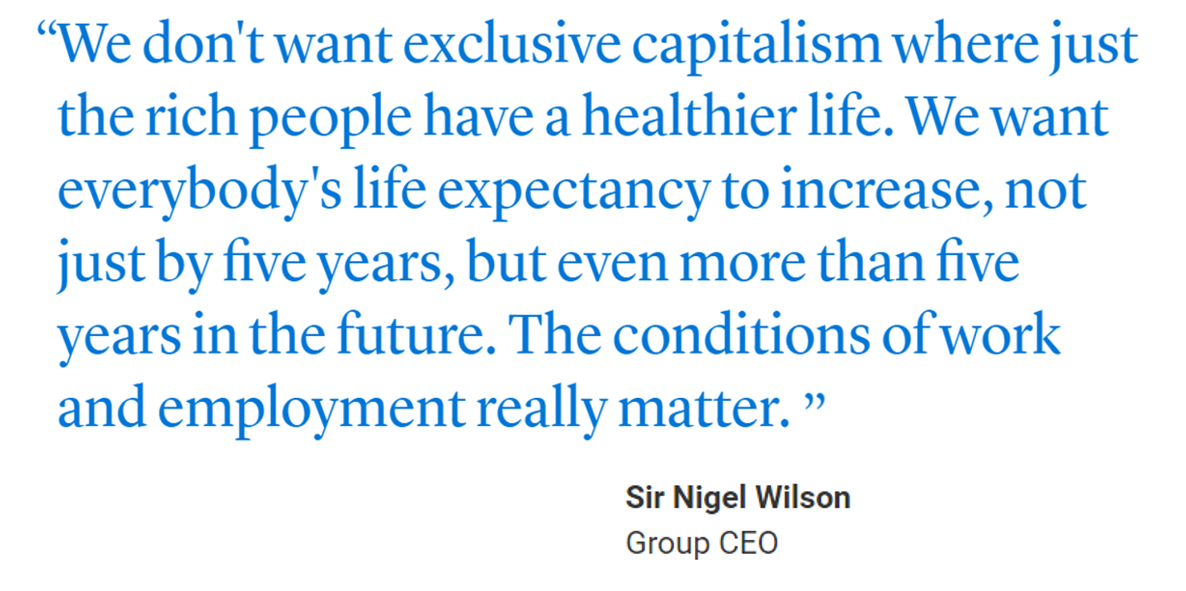
“Until now, focus on….the social determinants of health has been for government and civil society. The private sector has not been involved in the discussion or, worse, has been seen as part of the problem. It is time this changed,” asserts the report, The Business of Health Equity: The Marmot Review for Industry, sponsored by Legal & General in collaboration with University College London (UCL) Institute of Health Equity, led by Sir Michael Marmot. Sir Michael has been researching and writing about social determinants of health and health equity for decades, culminating publications
People in the U.S. Without the Internet Were More Likely To Die in the Pandemic
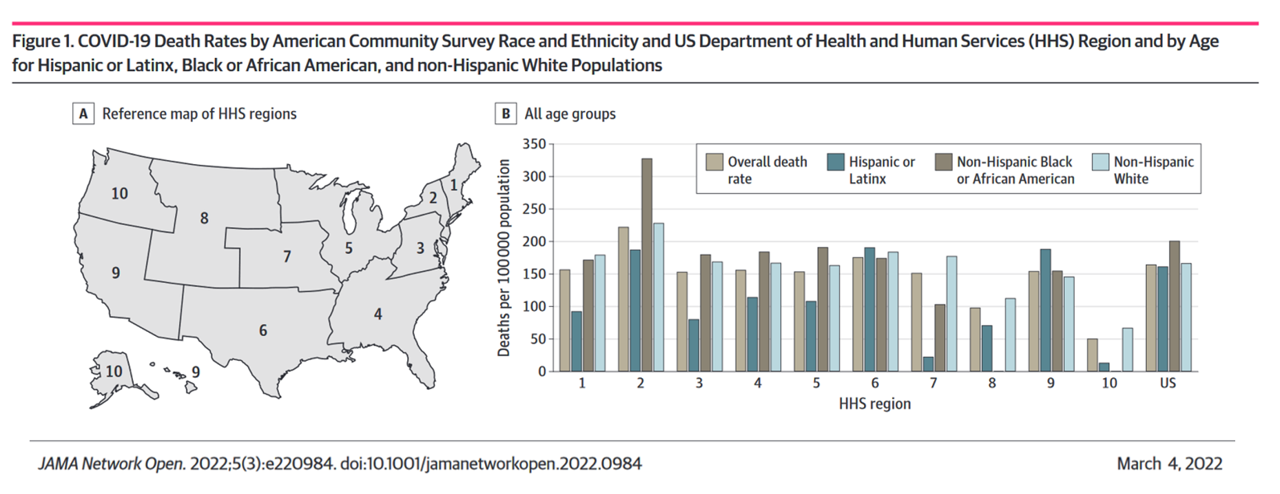
Access to the Internet has been a key determinant of health — or more aptly, death — during the COVID-19 pandemic. Americans lacked Internet access were more likely to die due to complications from the coronavirus, according to a study published in JAMA Network Open this month. The study’s key finding was that for every additional 1% of people living in a county who have access to the Internet, between 2.4 and 6.0 COVID-19 deaths per 100,000 were preventable. The paper asserts that, “More awareness is needed about the essential asset of technological access to reliable information, remote work, schooling
Stress in America on the Pandemic’s 2nd Anniversary: Money, Inflation, and War Add to Consumers’ Anxiety
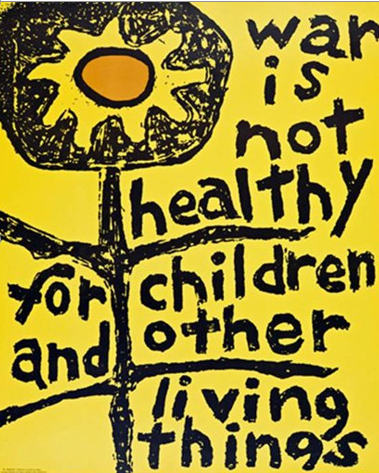
As we mark the second anniversary of the COVID-19 pandemic, the key themes facing health citizens deal with money, inflation, and war — “piled on a nation stuck in COVID-19 survival mode,” according to the latest poll on Stress in America from the American Psychological Association. Financial health is embedded in peoples’ overall sense of well-being and whole health. Many national economies entered the coronavirus pandemic in early 2020 already marked by income inequality. The public health crisis exacerbated that, especially among women who were harder hit financially in the past two years than men were. That situation was even worse
How Social Media Can Get Public Health So Wrong
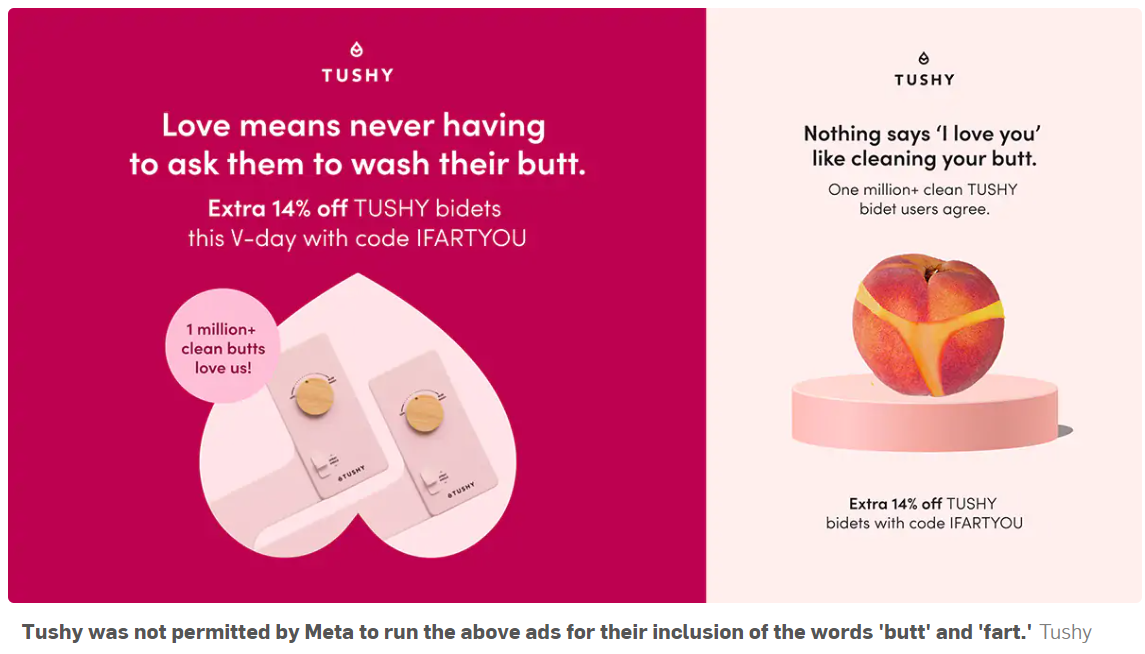
This week, public health truths have collided with social media, the infodemic, and health citizenship. First, I read in Becker’s Health IT on February 16 that the peer-reviewed policy journal Health Affairs was prevented by a social media outlet from promoting its February 2022 issue themed “Racism and Health.” The company said the topic was too controversial to feature in this moment. “Google and Twitter are blocking its paid media ads to promote the content, flagging racism as ‘sensitive content,'” Molly Gamble explained in Becker’s. I myself used the blogging platform you’re on now to promote the February ’22 issue of
Love and Health: The Education of Abner Mason, SameSky Health
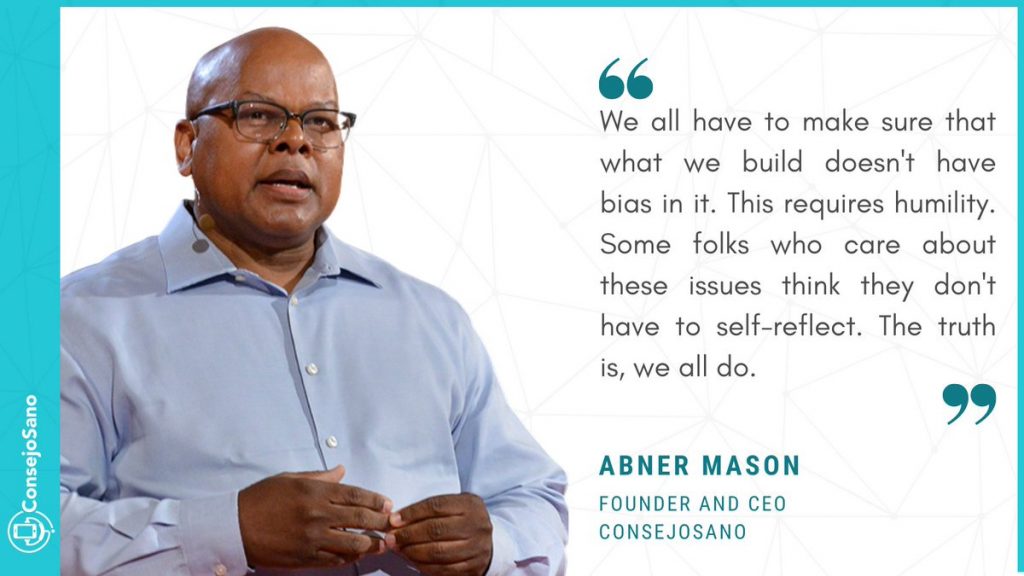
It felt super appropriate that I met up with Abner Mason, Founder of SameSky Health, on Valentine’s Day 2022. While we conversed via Zoom, Abner’s positive energy vibrated over the 5,600 miles between him in LA County and me in Brussels, Belgium – nine hours apart, but in the proverbial same room in the conversation. My initial ask of Abner was to discuss the re-branding of ConsejoSano to SameSky Health, but I first wanted to hear the man’s origin story. And that, you will learn, has everything to do with loving parents, the power of education from a young age,
The Wellness Economy in 2022 Finds Health Consumers Moving from Feel-Good Luxury to Personal Survival Tactics
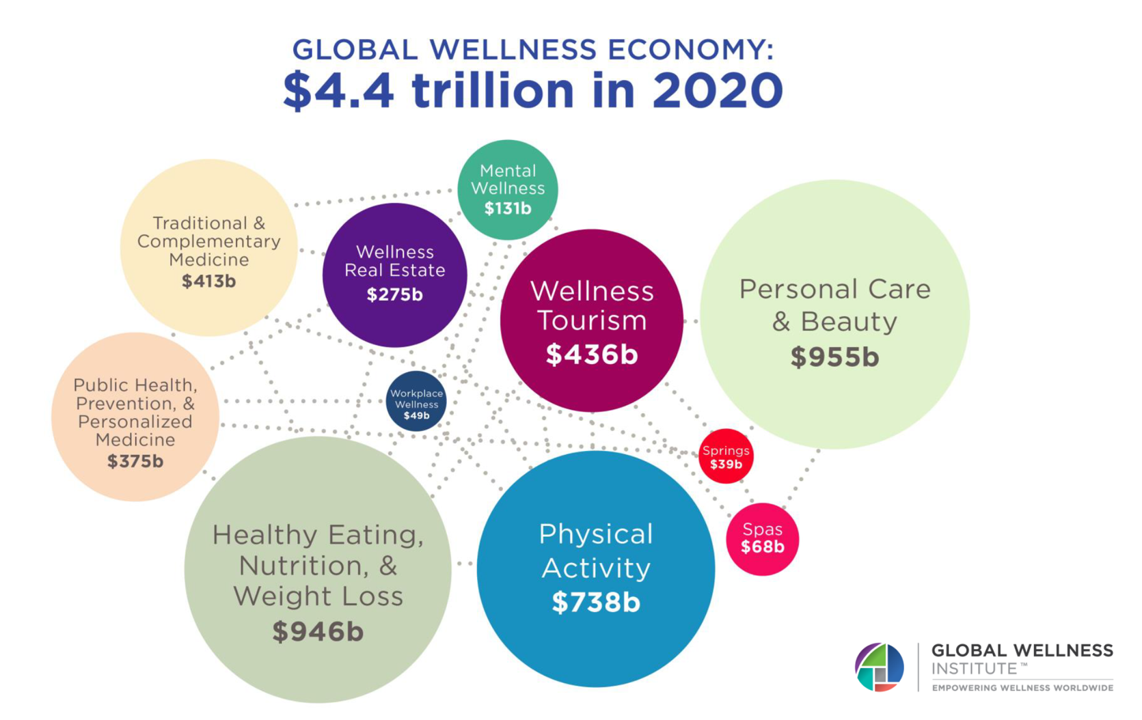
The Future of Wellness in 2022 is, “shifting from a ‘feel-good’ luxury to survivalism as people seek resilience,” based on the Global Wellness Institute’s forecast on this year’s look into self-care and consumer’s spending on health beyond medical care — looking beyond COVID-19. GWI published two research papers this week on The Future of Wellness and The Global Wellness Economy‘s country rankings as of February 2021. I welcomed the opportunity to spend time for a deep dive into the trends and findings with the GWI community yesterday exploring all of the data, listening through my health economics-consumer-technology lens. First, consider
“We’ve normalized a very high death toll in the U.S.” – How A Trust Deficit Has Infected America’s COVID Outcomes

Trust, or really lack thereof, is a killer app for people’s coronavirus health outcomes. That is the through-line found in a very deep dive into 177 countries’ health data published in The Lancet in a research article on pandemic preparedness and COVID-19. The Lancet study, published on 1 February 2022, was funded by the Gates Foundation in partnership with The Bloomberg Philanthropies et al. The study was researched and written up by a team of COVID-19 National Preparedness Collaborators, led by Dr. Joseph Dieleman of the University of Washington’s Institute for Health Metrics and Evaluation, a group that has been long-tracking
Women’s Health, ESG and FootbalI: Why I’m Excited To Tune Into Hologic’s Ad During Super Bowl LVI

One of the best parts of watching the biggest U.S. football game of the year are the ads which can provide great entertainment in-between touchdowns, time-outs, and referees’ video replays. This year, Ad Age provides us with an early inventory of some of the high-expectation commercials, including the usual suspects like Budweiser, Google, TurboTax, and Avocados from Mexico. For the first time, cryptocurrency brands will advertise on the Super Bowl, too. But I’m most looking forward to seeing the 30-second spot from Hologic, the medical technology company. AdWeek wrote, quoting a Hologic press release, “As a leader in women’s health,
Nutella, Wine, and COVID Tests at the Convenience Store – A Weekend Observation From Brussels

Health/care is everywhere….even at the convenience store. Yesterday afternoon, as I was picking up a bottle of milk for this morning’s coffee, I rushed to the local Carrefour Express in my neighborhood in St. Gilles, Brussels, Belgium. Sidebar: Carrefour Express is not your prototypical U.S.-styled C-store — you can find some fine Prosciutto di San Daniele in the cold case, some tasty Camembert cheese, very good wine, and just-picked tomatoes there. Still, it’s a C-store in that the brick-and-mortar model is a smaller footprint than a full grocery store, and convenient in that it’s a block from my apartment. Imagine
The Trust Deficit Is Bad for Health: A Health/Care Lens on the 2022 Edelman Trust Barometer

“Health is the cornerstone to our core needs, thereby the cornerstone to trust.” So wrote Kirsty Graham, Global Leader of Sectors and Global Chair of Health at Edelman, in an essay explaining the 2022 Edelman Trust Barometer. If it’s January, it must be time for the World Economic Forum in Davos, the annual setting for Edelman’s launch of the company’s Trust Barometer. While WEF is mostly virtual this year due to the pandemic, Edelman has released the survey of global citizens’ views on trust in institutions right on-time and in full and sobering detail. I welcome and dig into the
Mental Health at CES 2022 – The Consumer’s Context for Wellbeing in the New Year
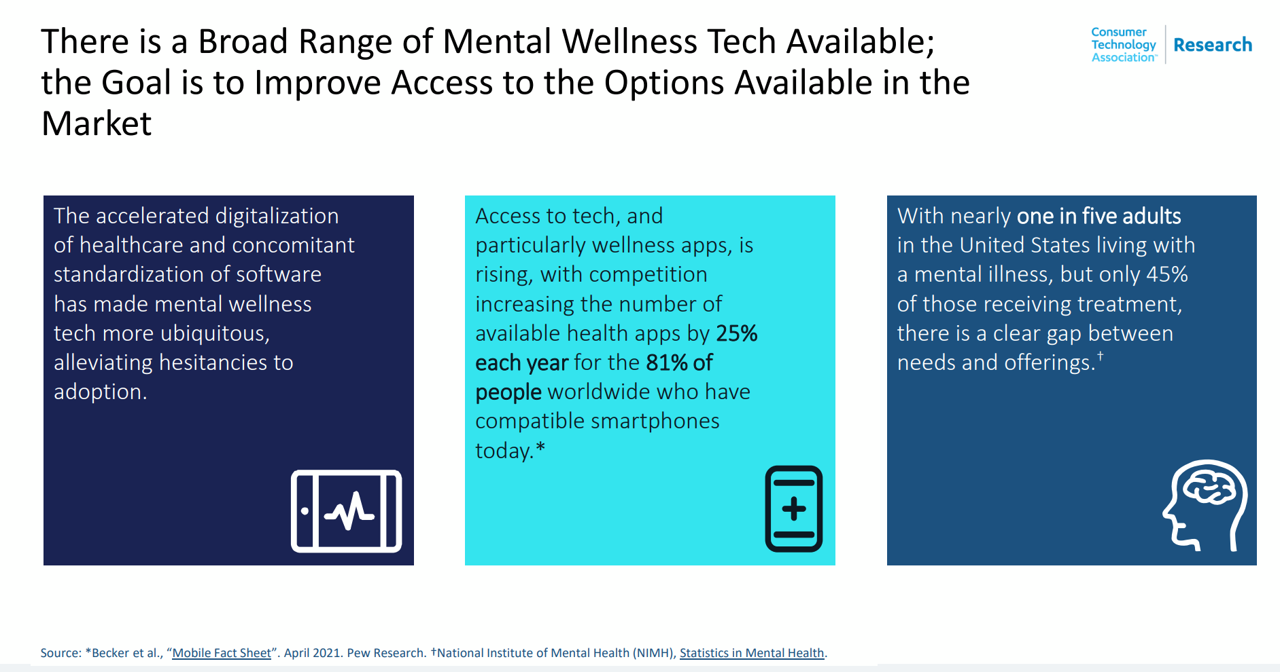
As we enter COVID-19’s “junior year,” one unifying experience shared by most humans are feelings of pandemic fatigue: anxiety, grief, burnout, which together diminish our mental health. There are many signposts pointing to the various flavors of mental and behavioral health challenges, from younger peoples’ greater risk of depression and suicide ideation to increased deaths of despair due to overdose among middle-aged people. And about one-in-three Americans has made a 2022 New Year’s resolution involving some aspect of mental health, the American Psychiatric Association noted approaching the 2021 winter holiday season. Underneath this overall statistic are important differences across various
Health Care Planning for 2022 – Start with a Pandemic, Then Pivot to Health and Happiness
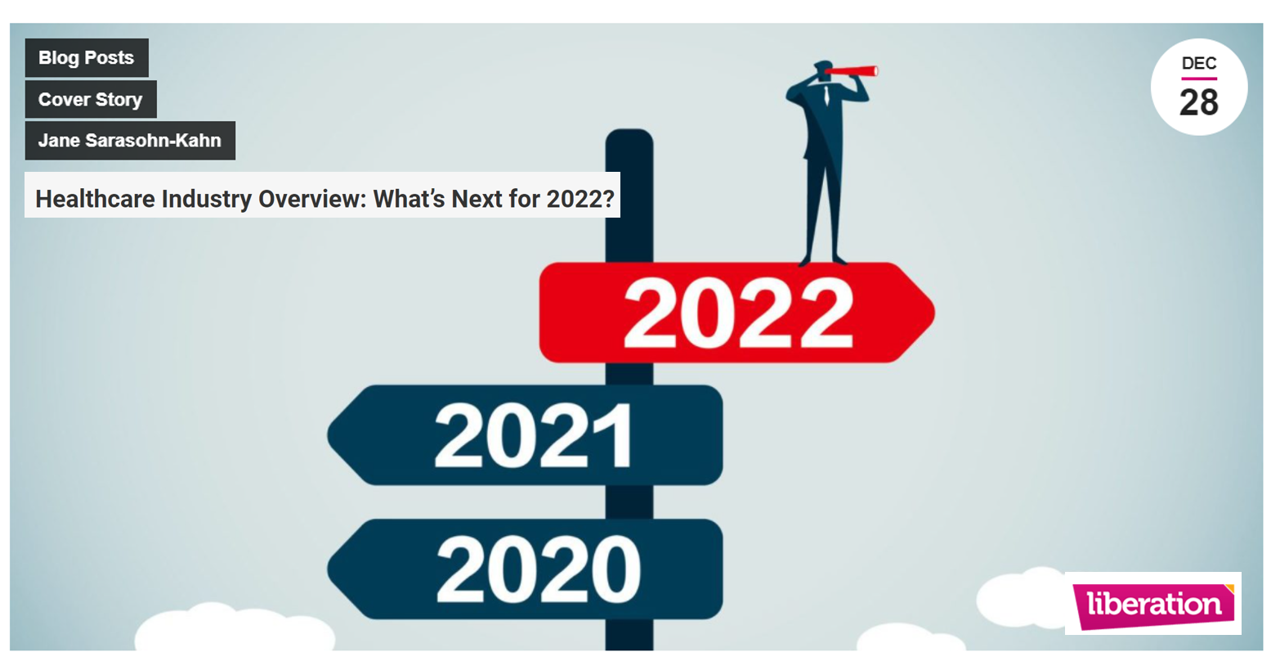
One of my favorite Dr. Seuss characters is the narrator featured in the book, I Had Trouble In Getting to Solla-Sollew. I frequently use this book when conducting futures and scenario planning sessions with clients in health/care. “The story opens with our happy-go-lucky narrator taking a stroll through the Valley of Vung where nothing went wrong,” the Seussblog explains. Then one day, our hero (shown here on the right side of the picture from the book) is not paying attention to where he is walking….thus admitting, “And I learned there are troubles of more than one kind, some come from
Why #CES2022 Will Be Keynoted By A Health Care Innovator for the First Time

In October 2021, the Consumer Technology Association (CTA) announced that Robert Ford, CEO and President of Abbott, would give a keynote speech at CES 2022, the world’s largest annual convention of the technology industry. “This marks the first time in CES history that a healthcare company will take the mainstage for a keynote at the show,” CTA’s press release stated. I covered this announcement in the Health Populi blog at the time, and today want to double-down on the significance of Ford’s leading presence at #CES2022. When announced, the news was a signal that health care and the larger tech-enabled





 I'm in amazing company here with other #digitalhealth innovators, thinkers and doers. Thank you to Cristian Cortez Fernandez and Zallud for this recognition; I'm grateful.
I'm in amazing company here with other #digitalhealth innovators, thinkers and doers. Thank you to Cristian Cortez Fernandez and Zallud for this recognition; I'm grateful. Jane was named as a member of the AHIP 2024 Advisory Board, joining some valued colleagues to prepare for the challenges and opportunities facing health plans, systems, and other industry stakeholders.
Jane was named as a member of the AHIP 2024 Advisory Board, joining some valued colleagues to prepare for the challenges and opportunities facing health plans, systems, and other industry stakeholders.  Join Jane at AHIP's annual meeting in Las Vegas: I'll be speaking, moderating a panel, and providing thought leadership on health consumers and bolstering equity, empowerment, and self-care.
Join Jane at AHIP's annual meeting in Las Vegas: I'll be speaking, moderating a panel, and providing thought leadership on health consumers and bolstering equity, empowerment, and self-care.